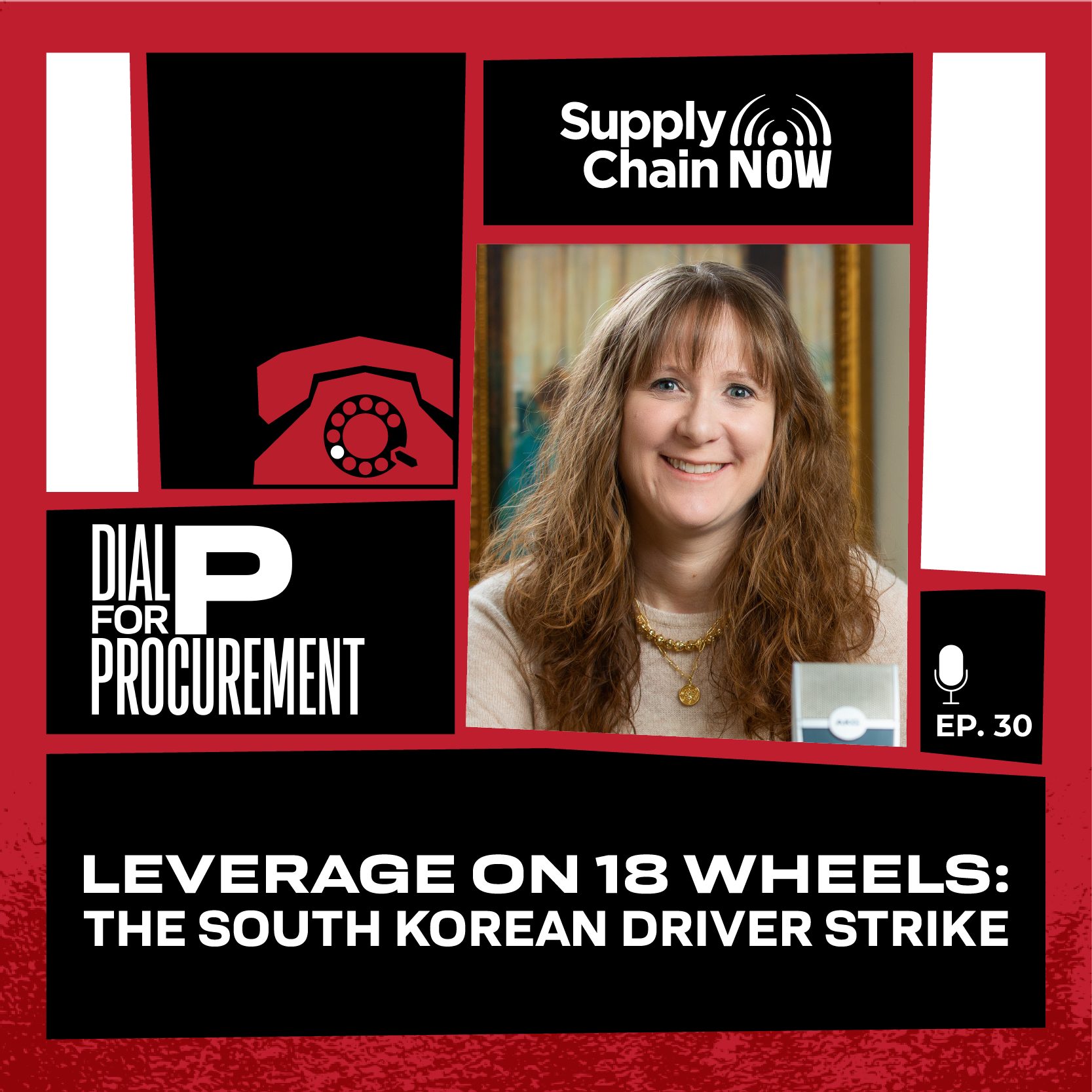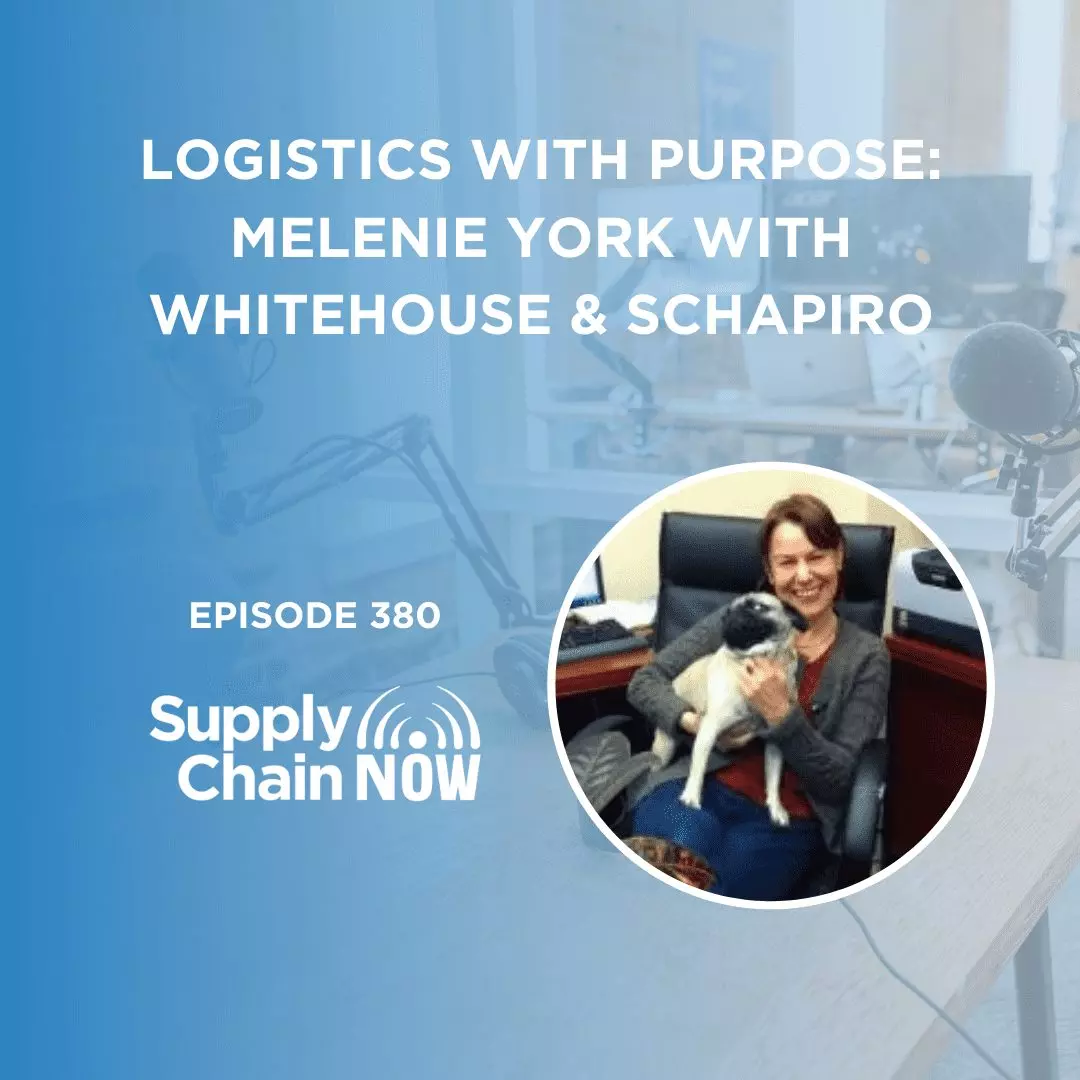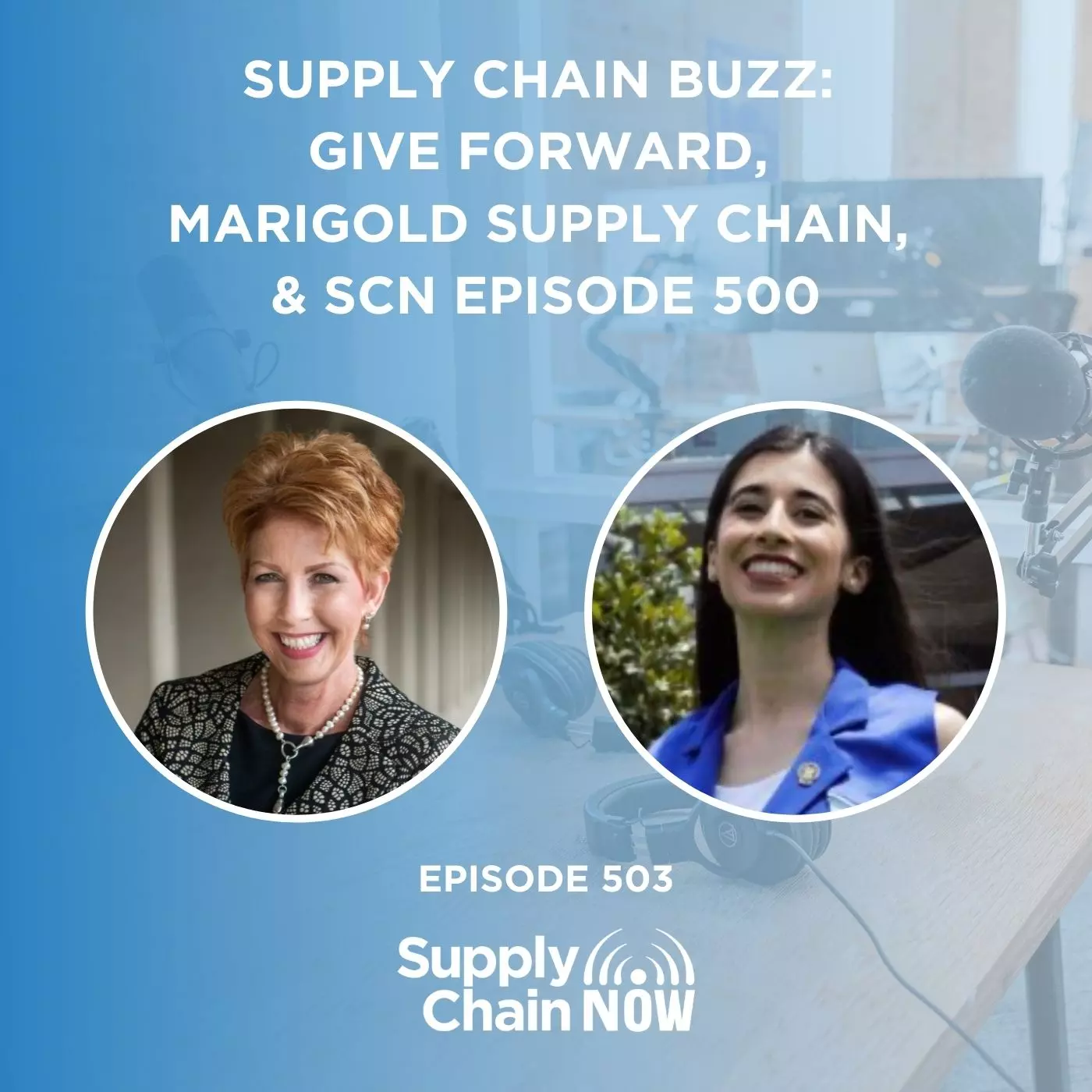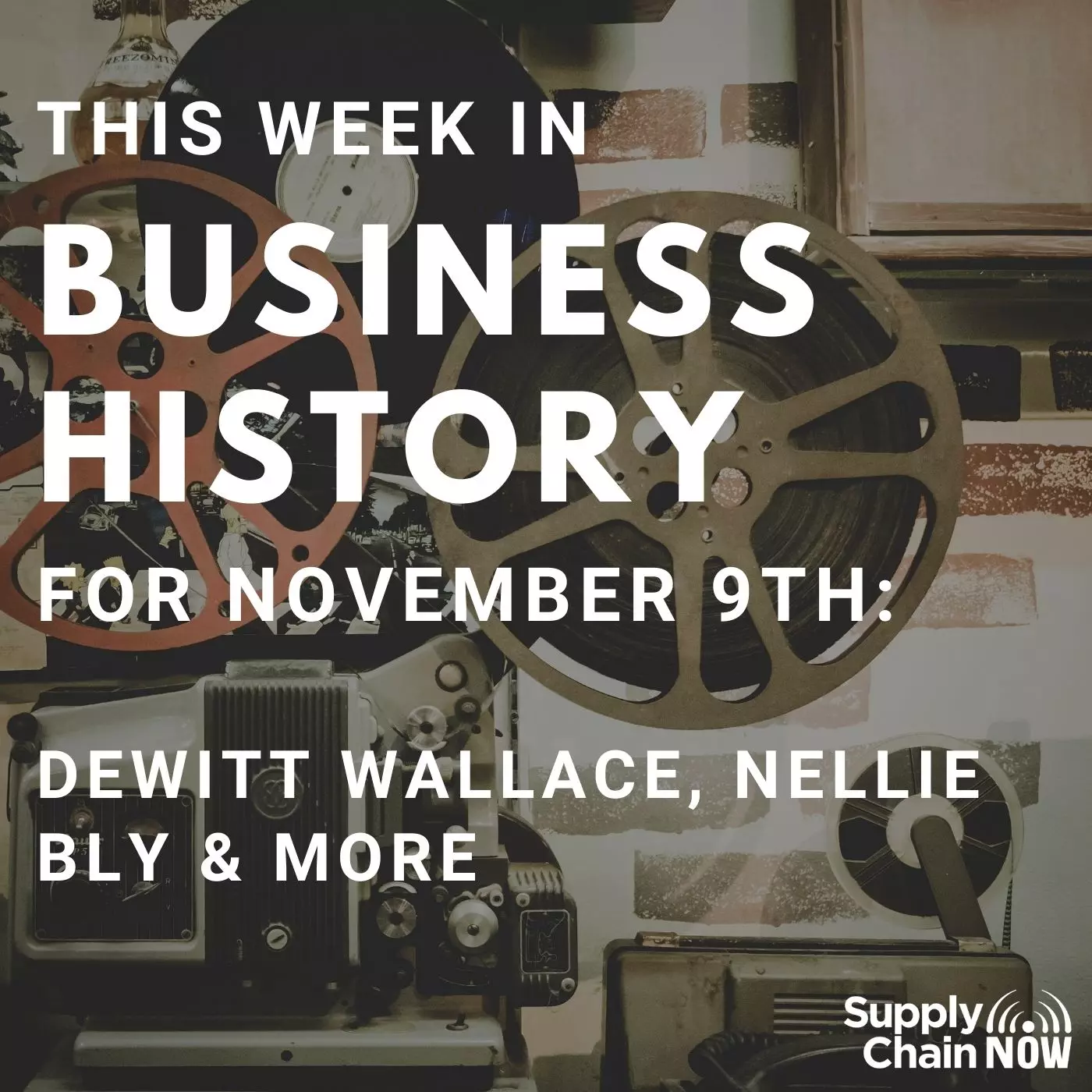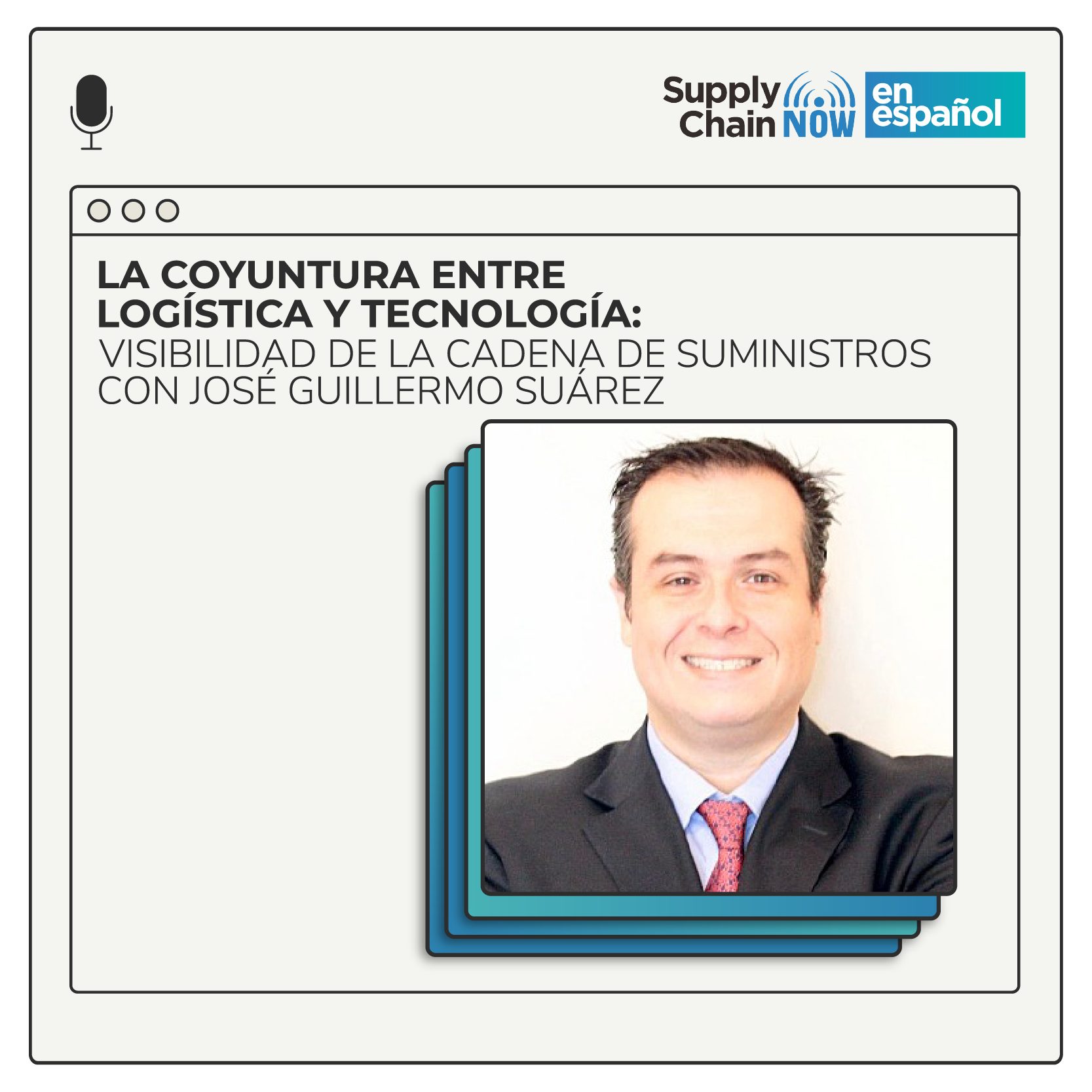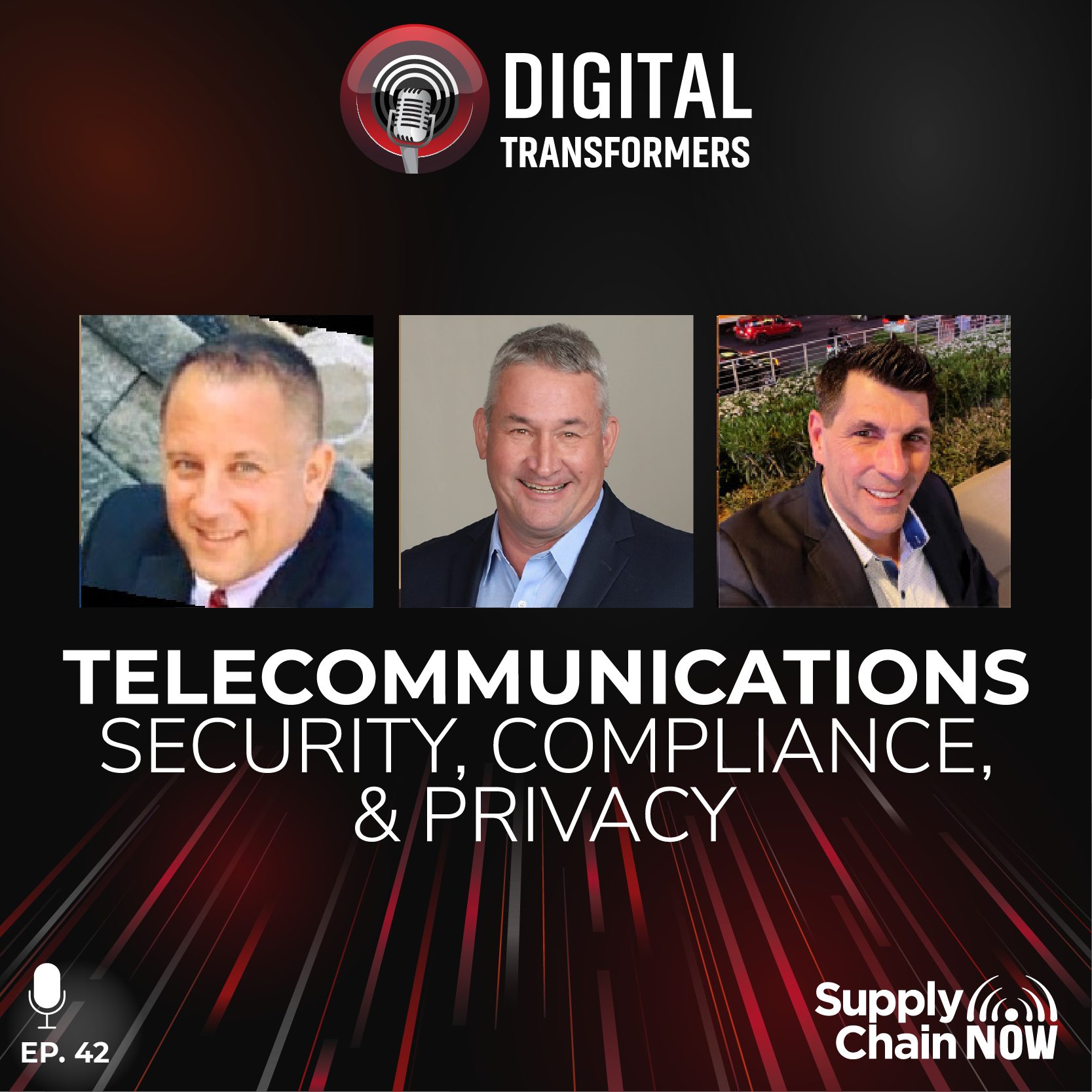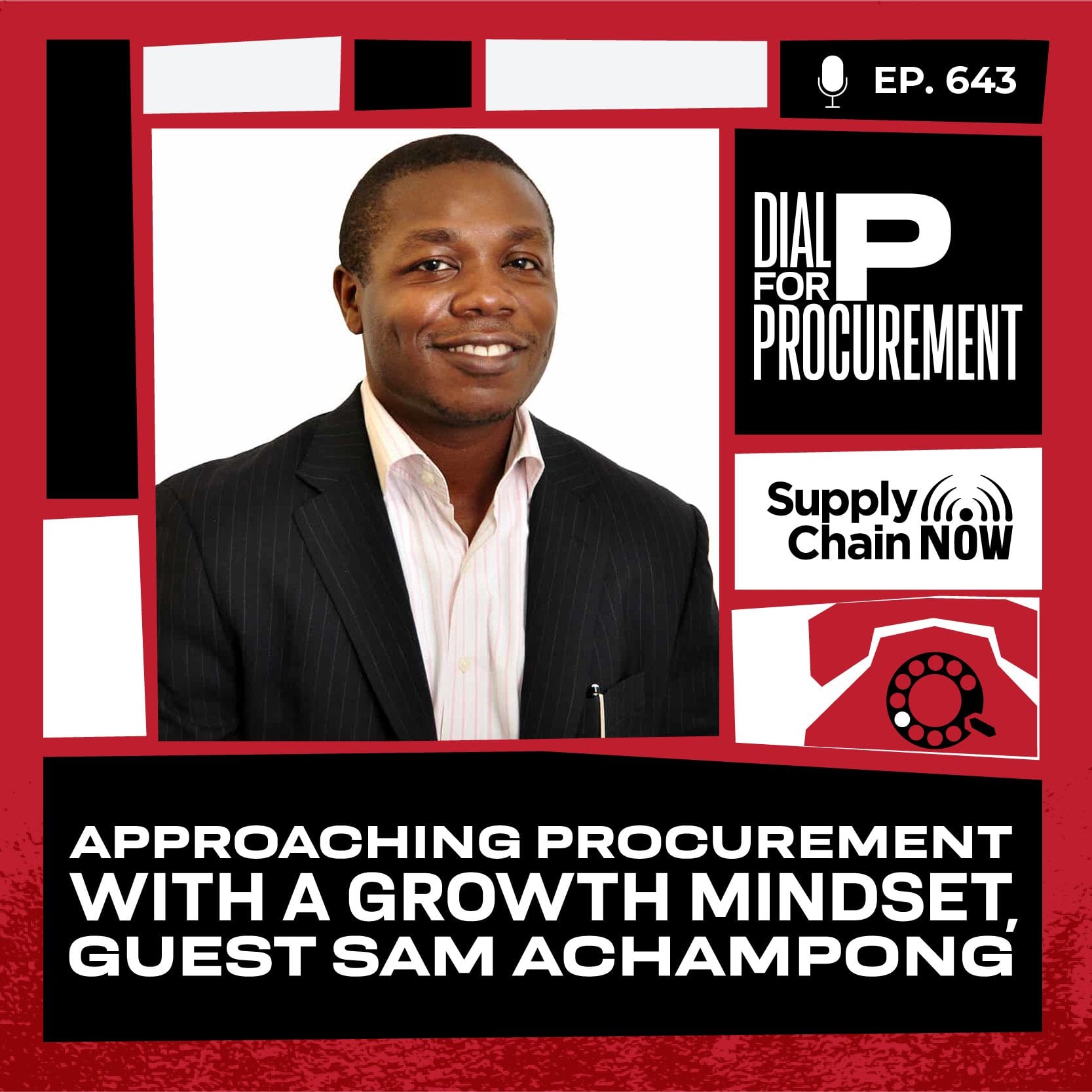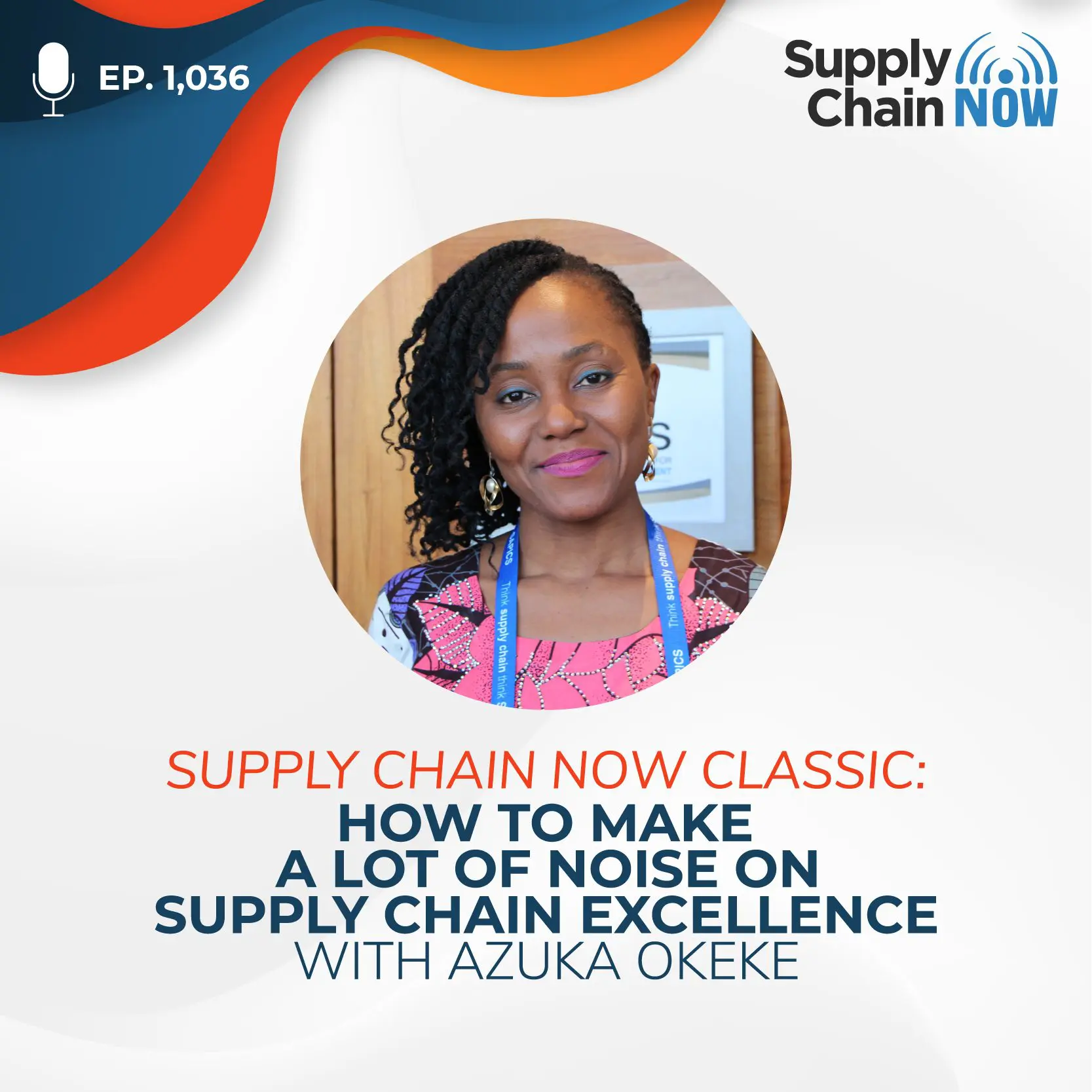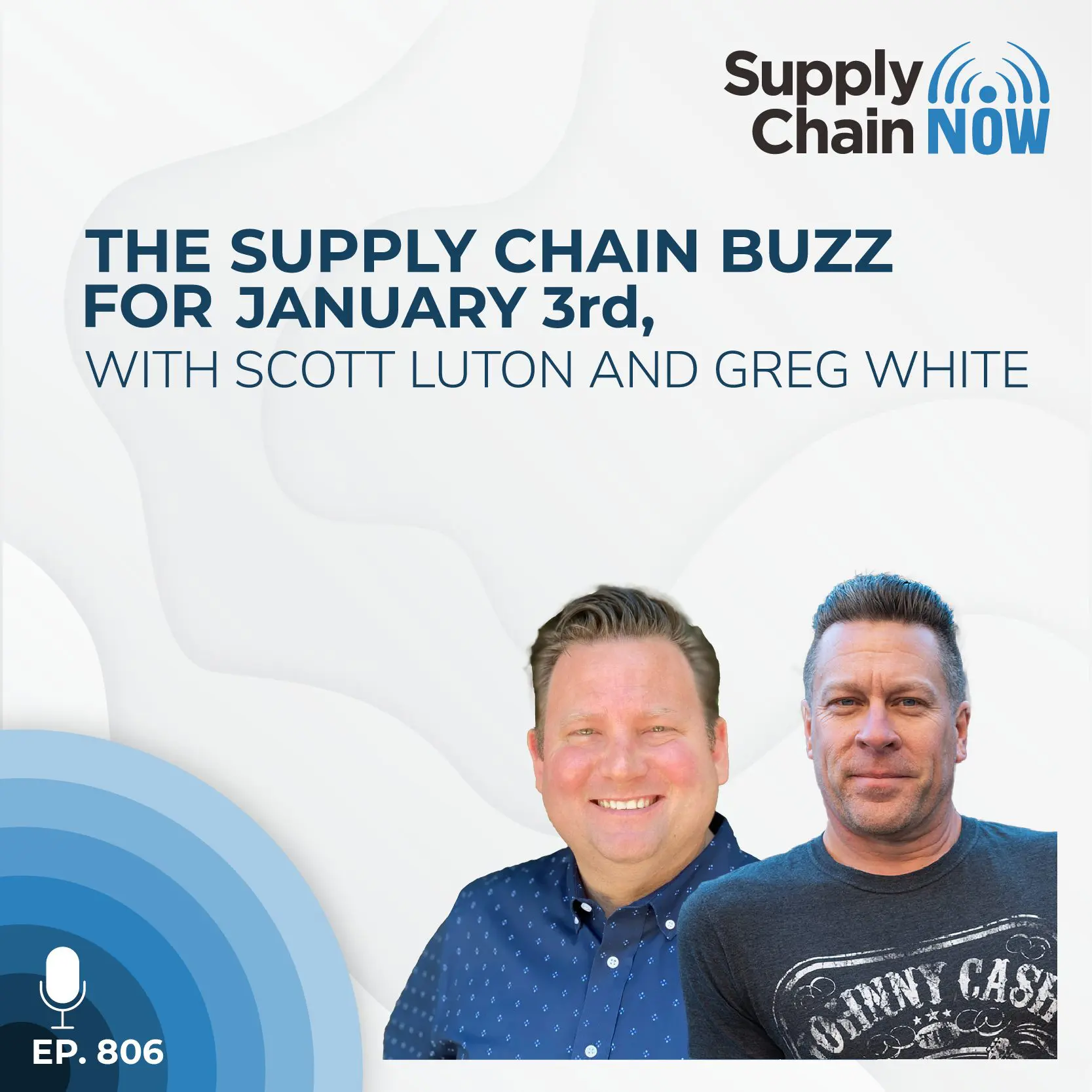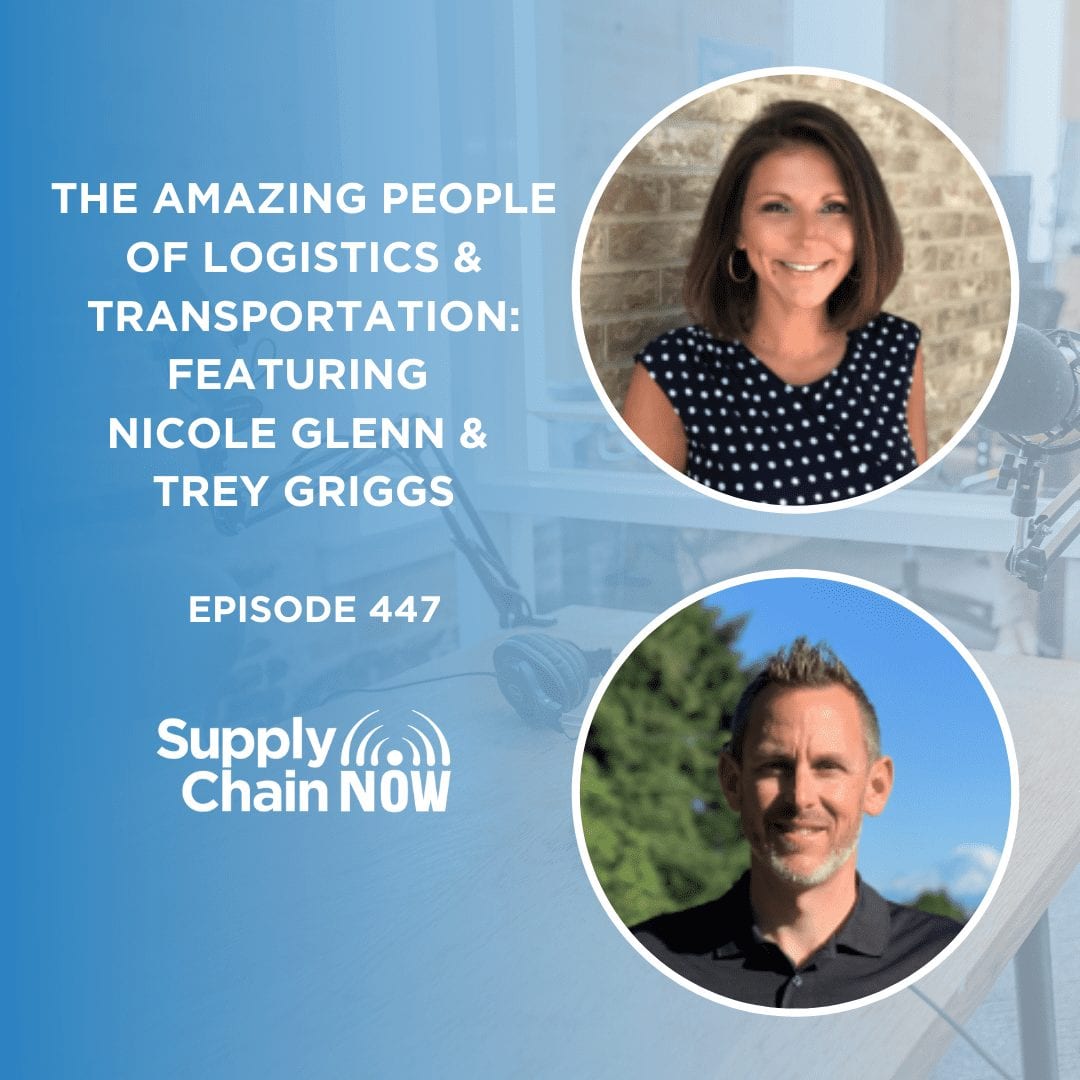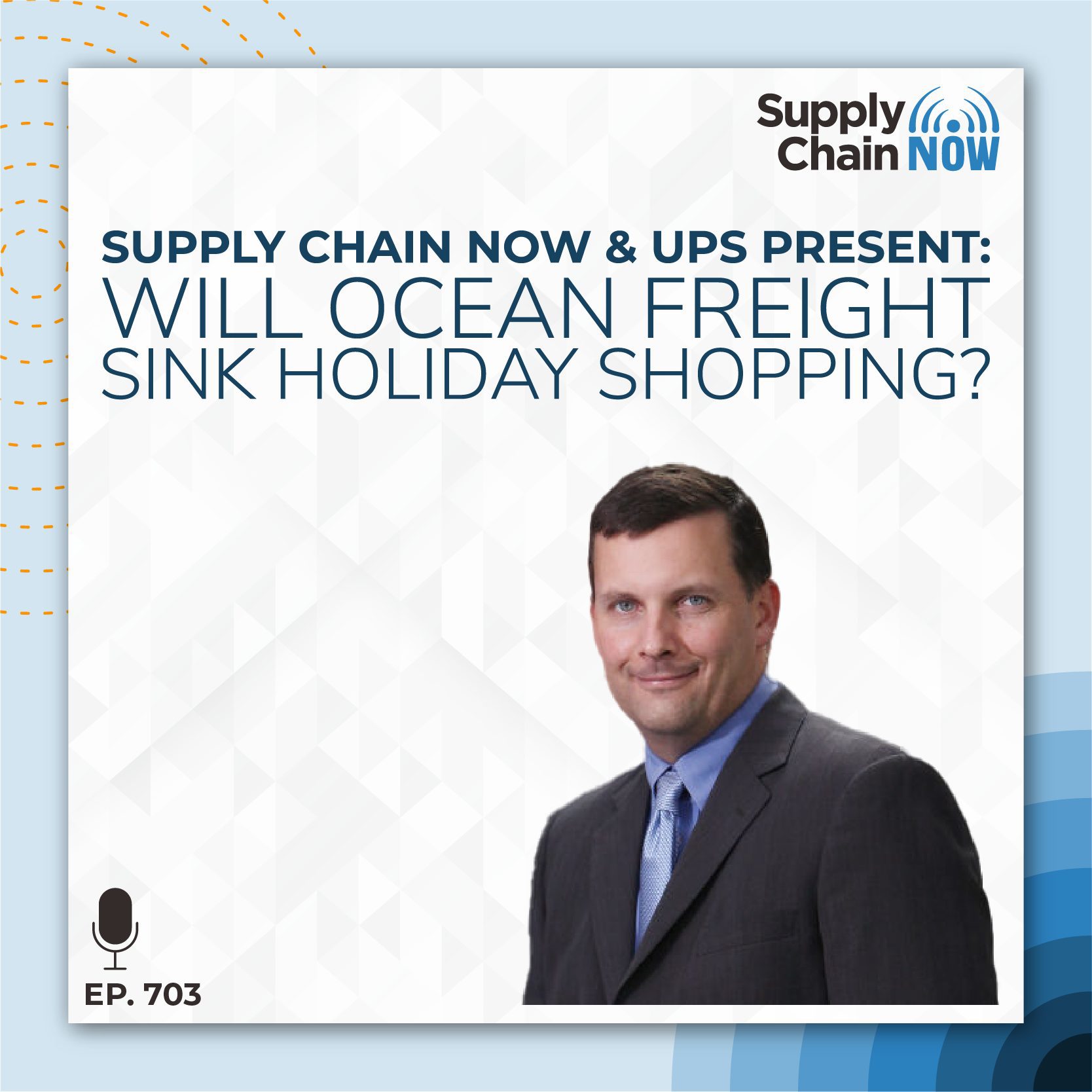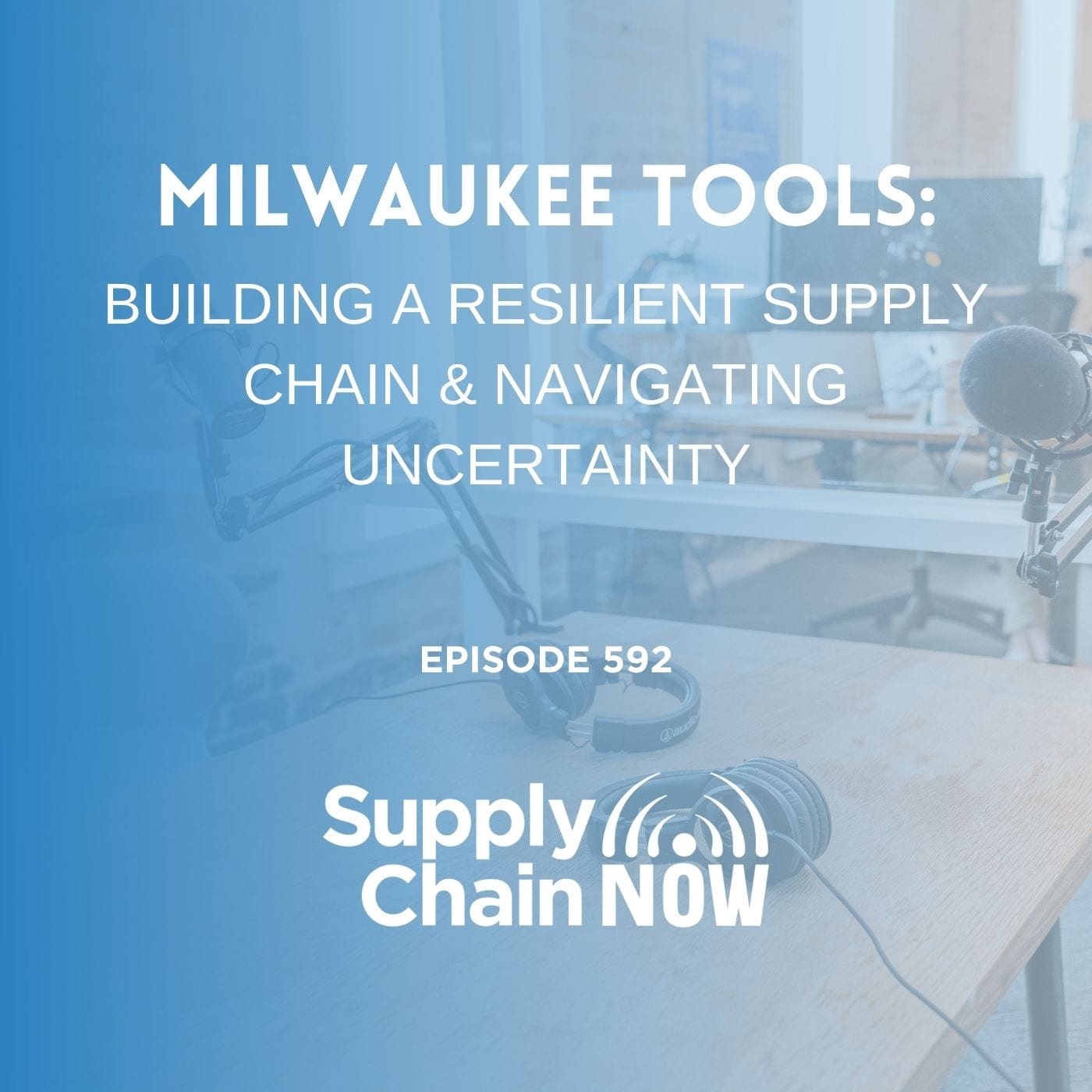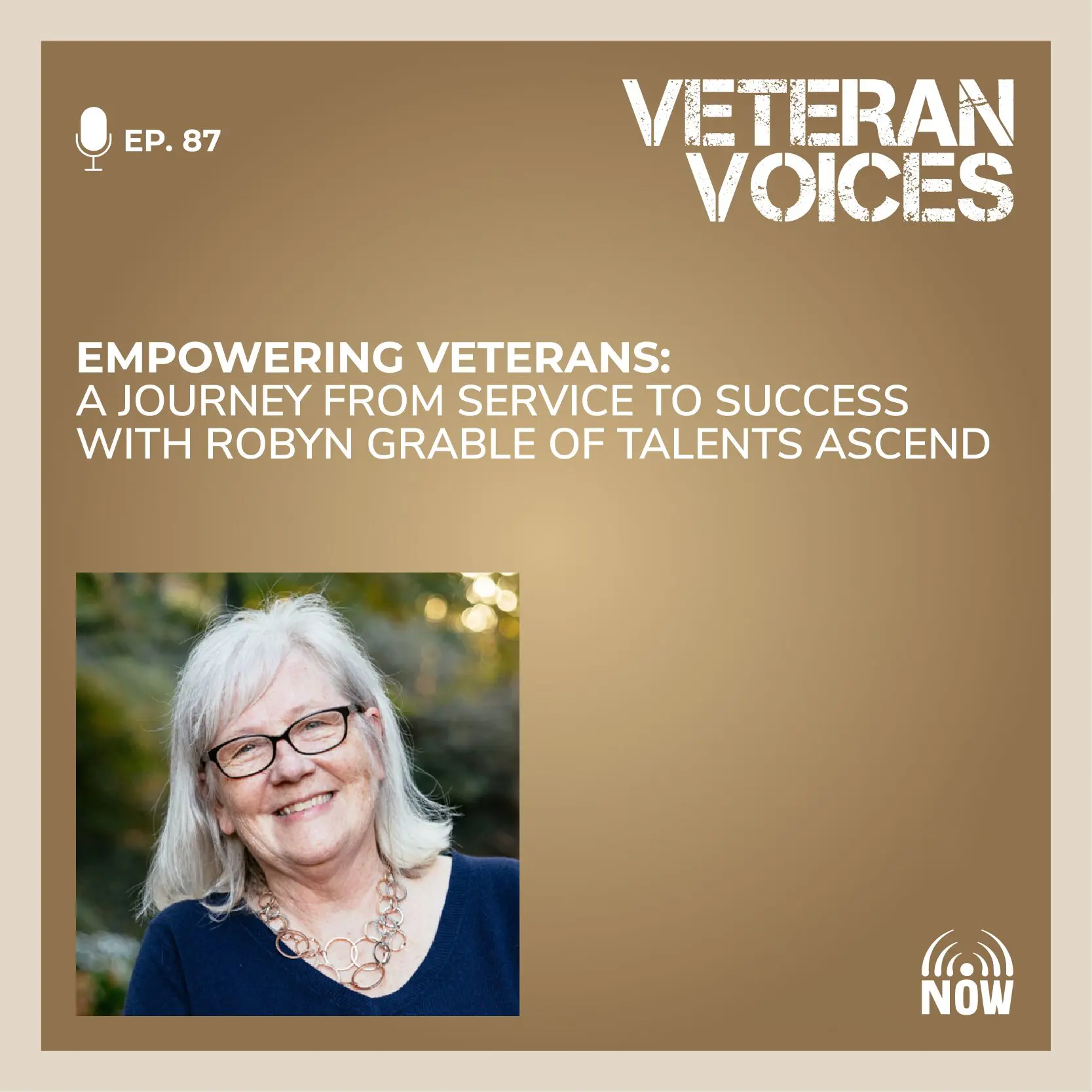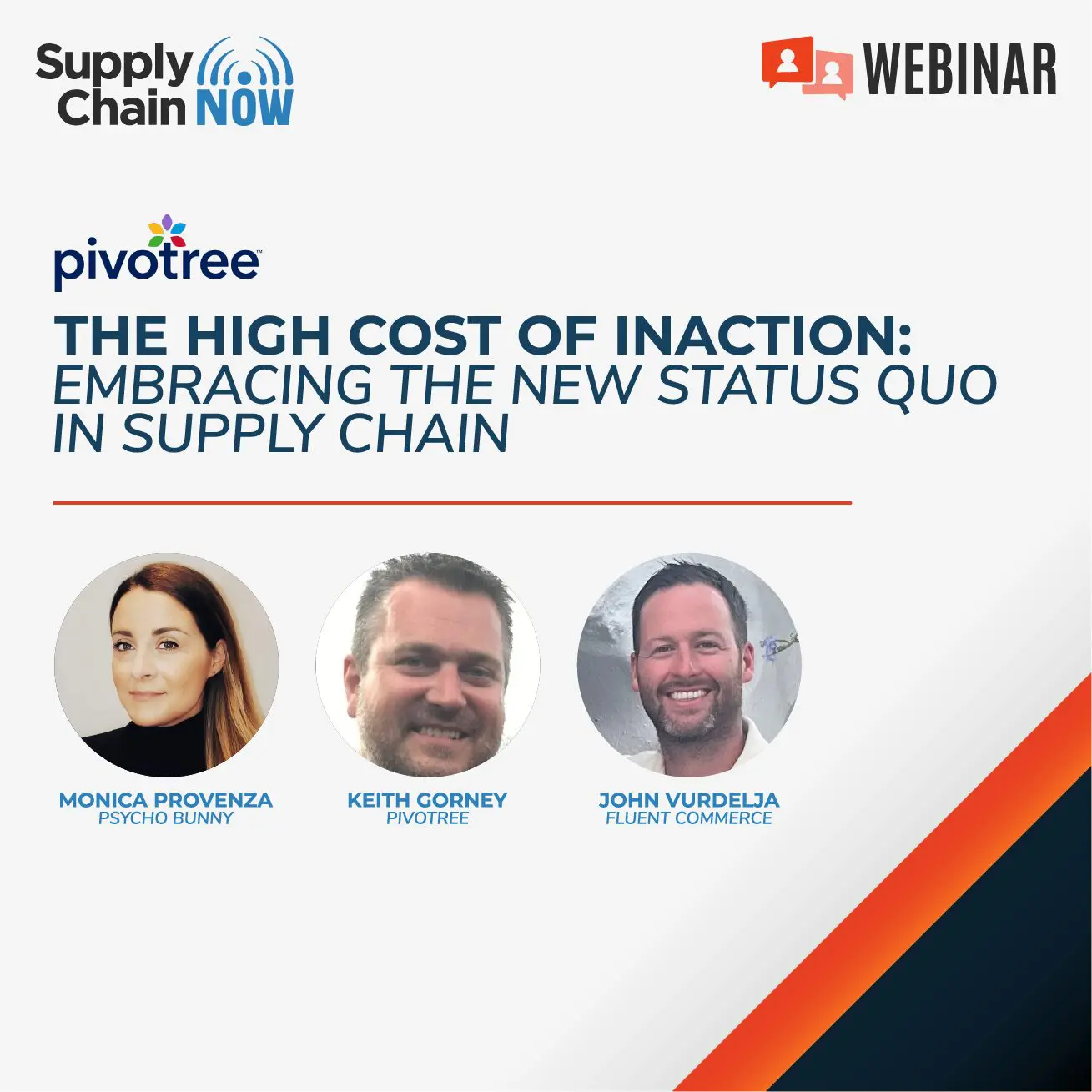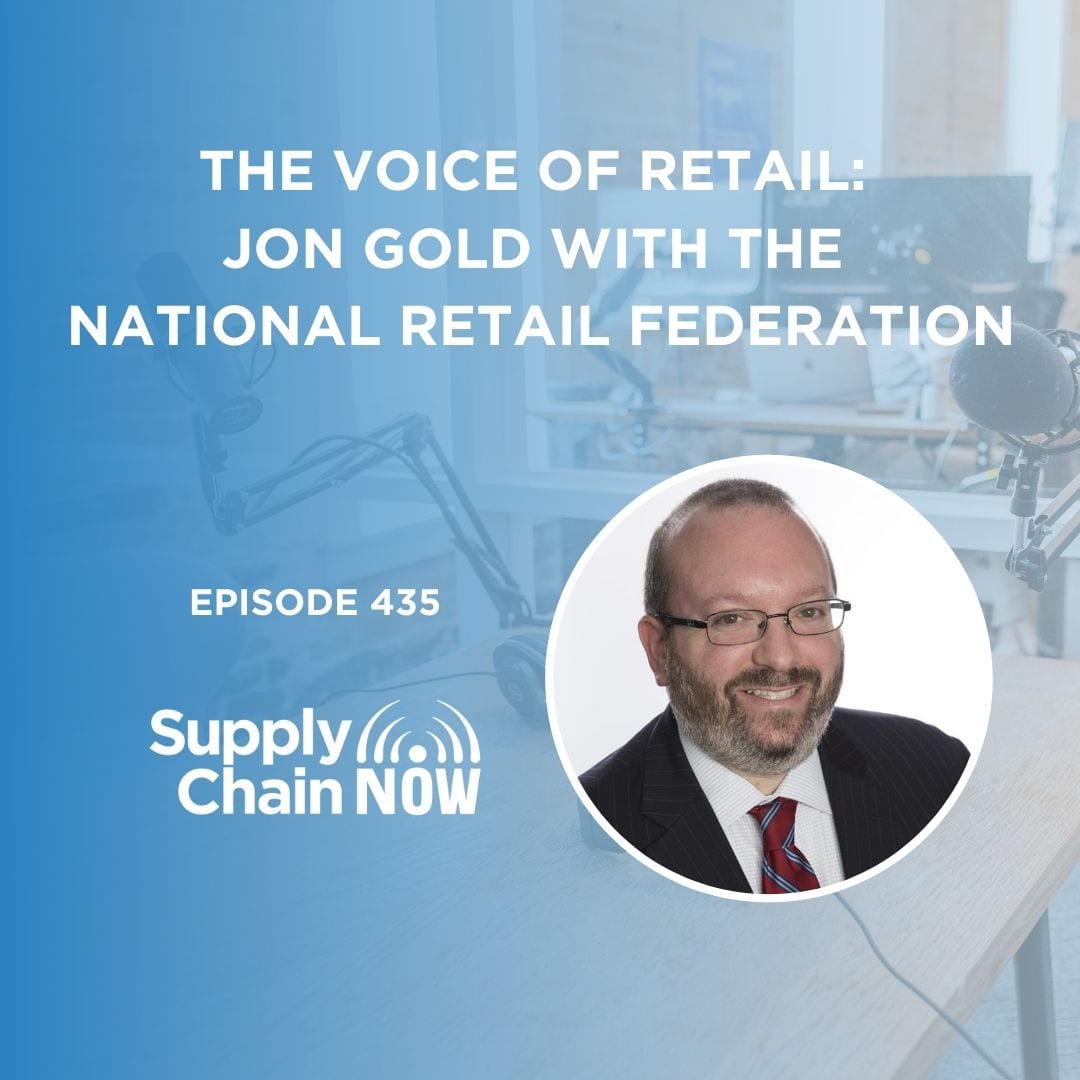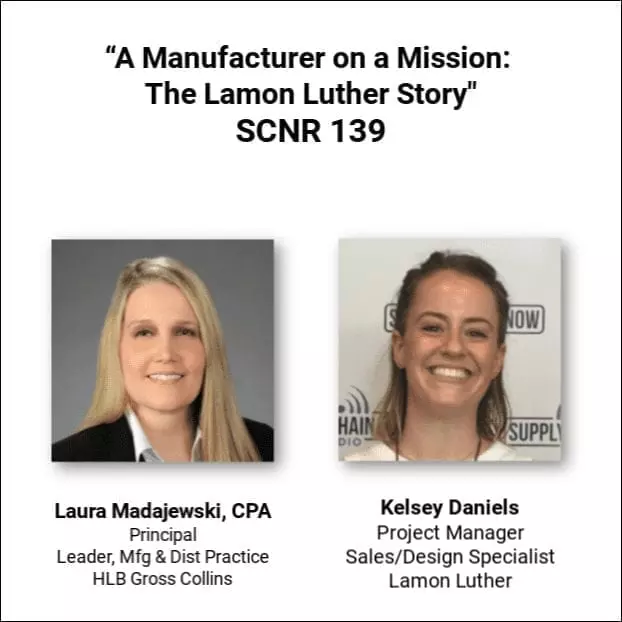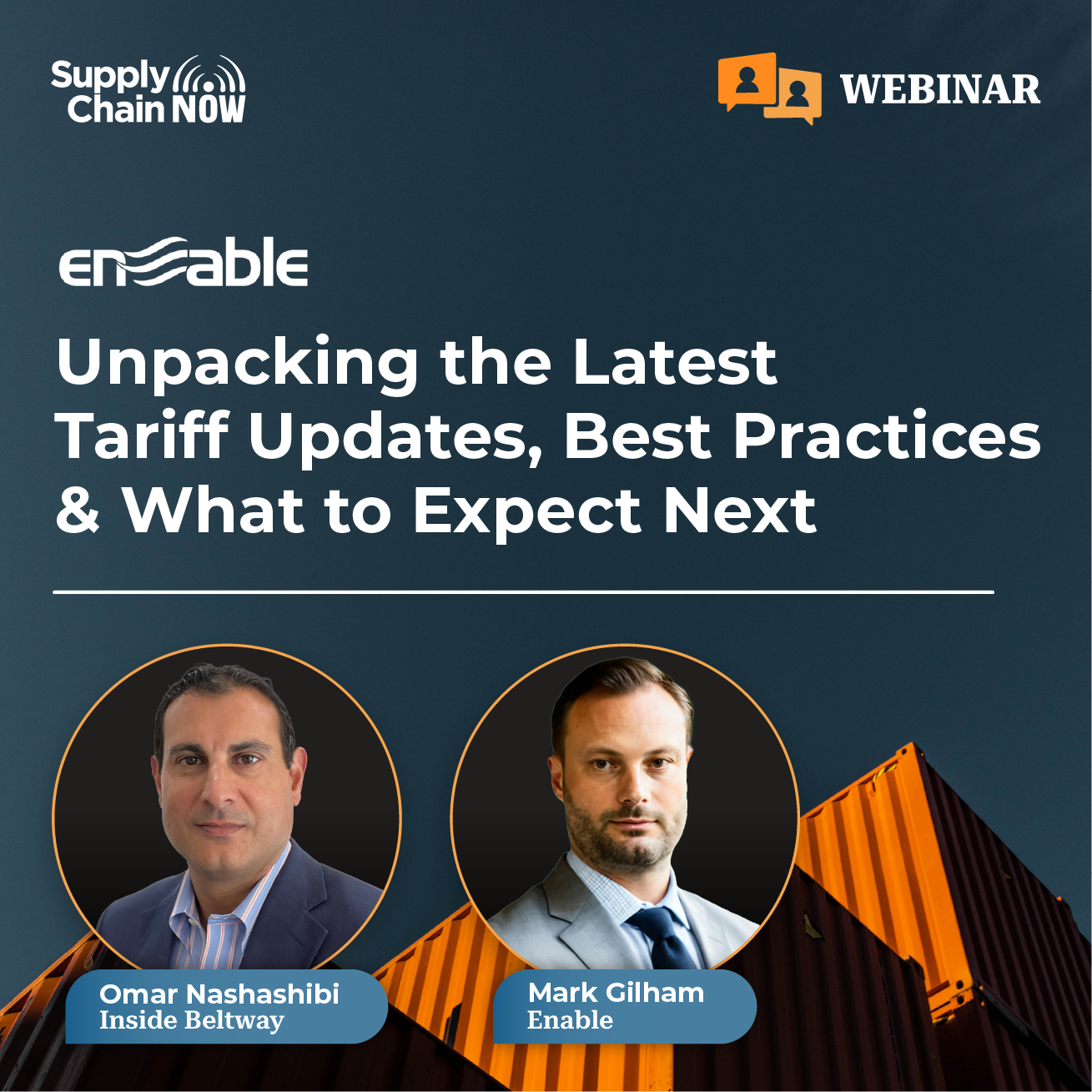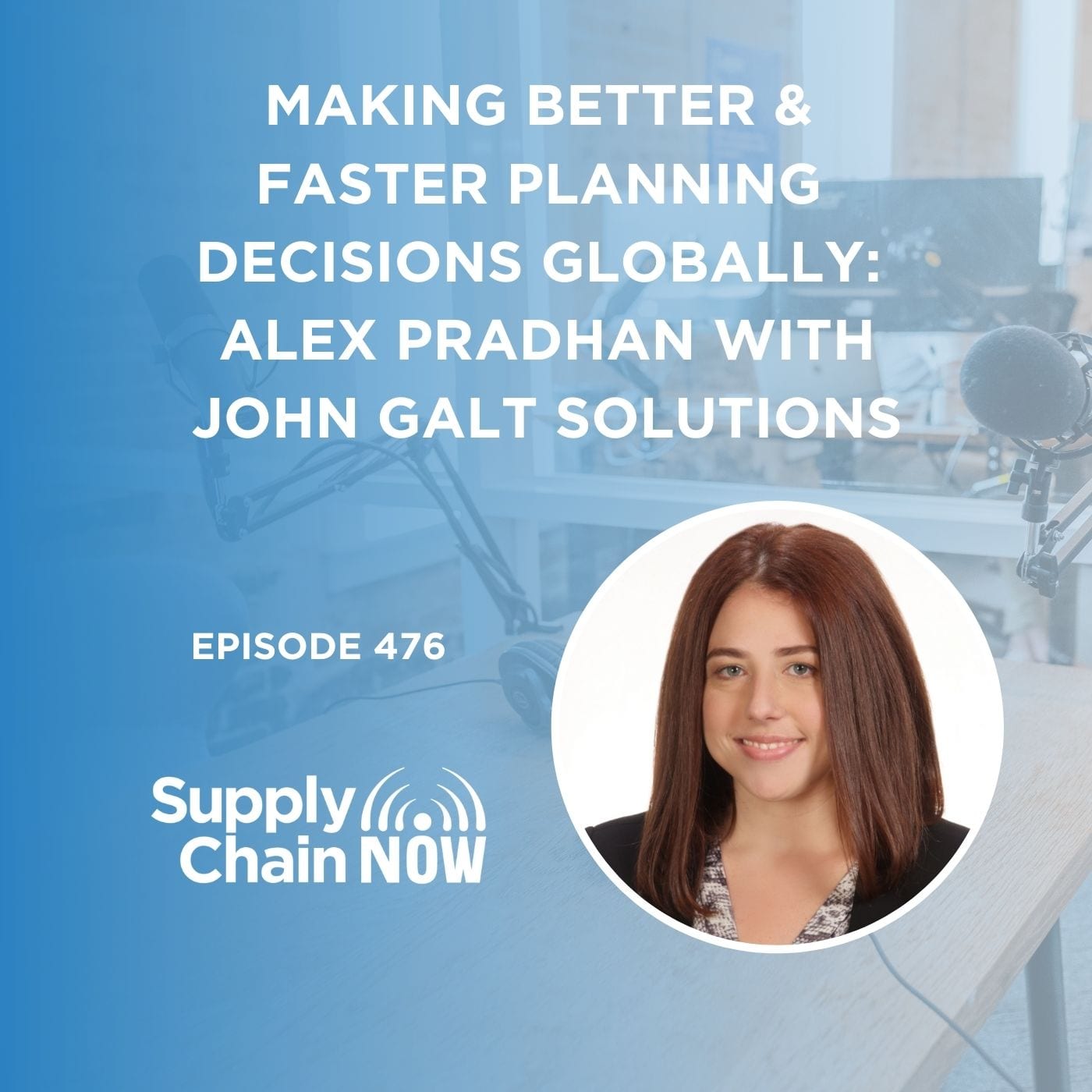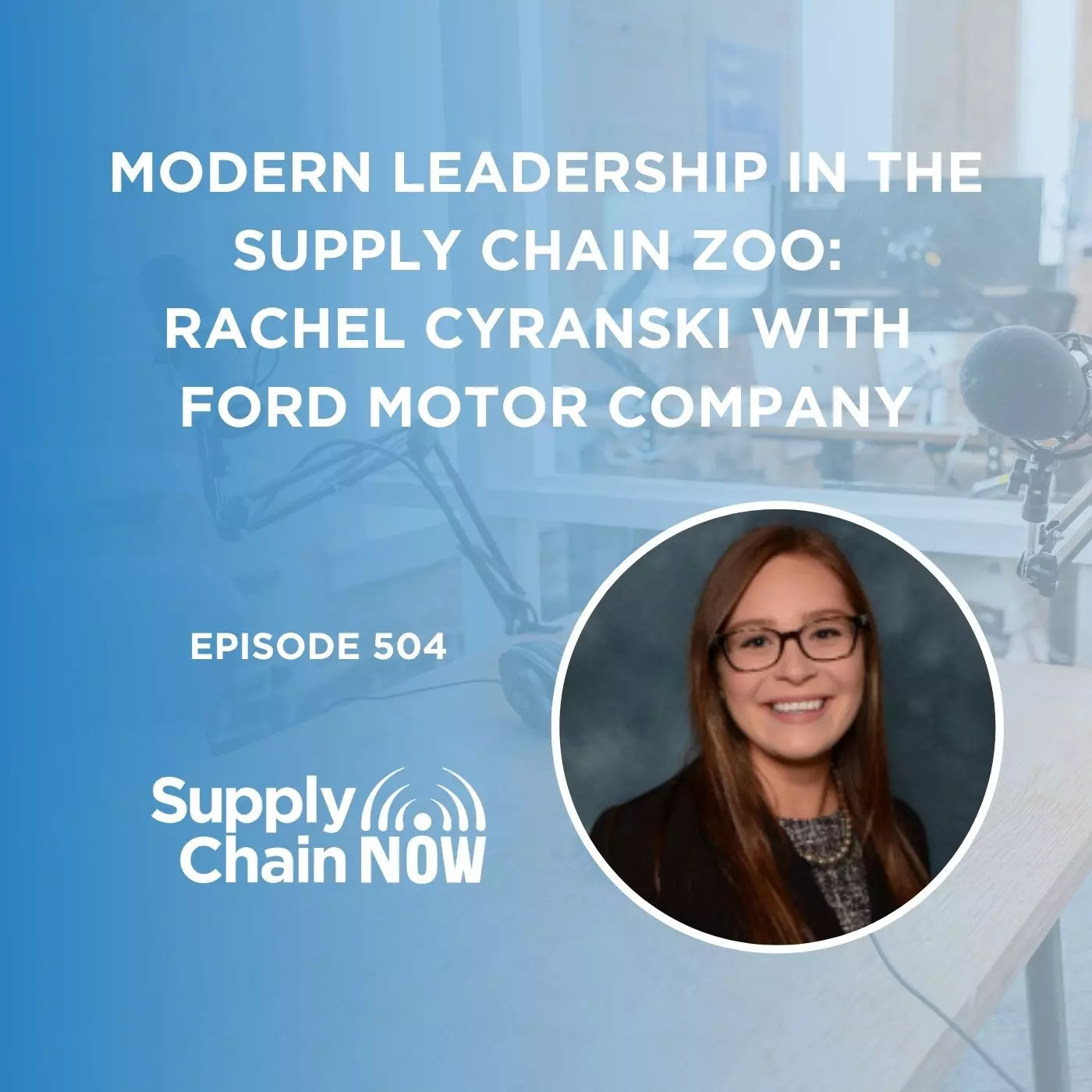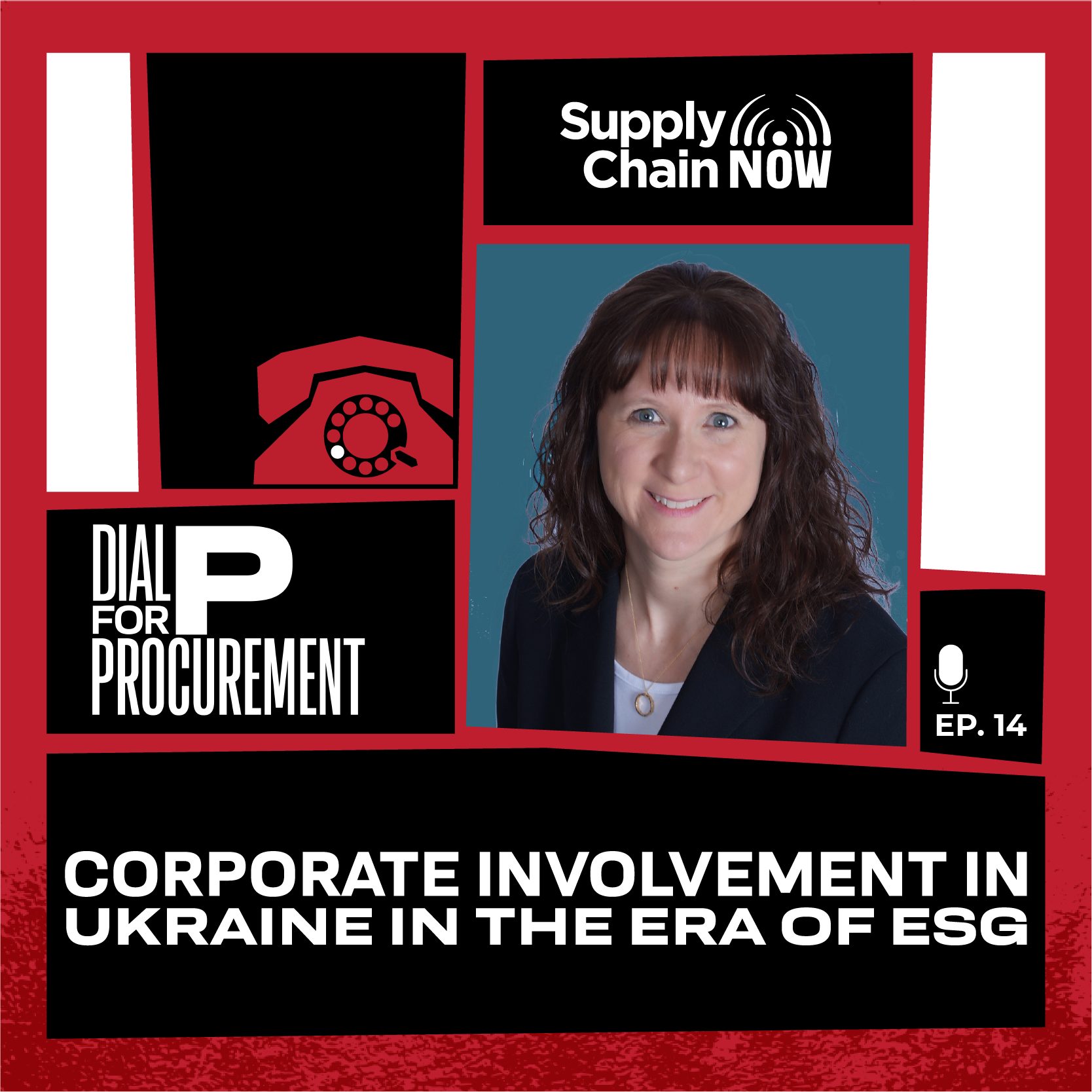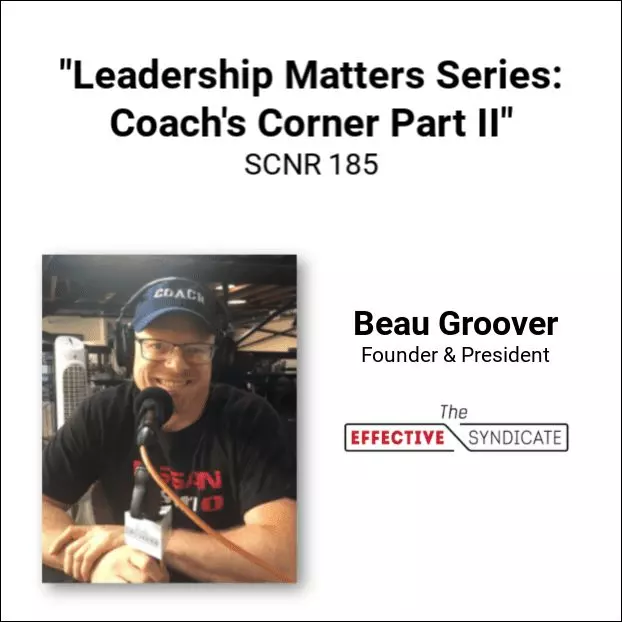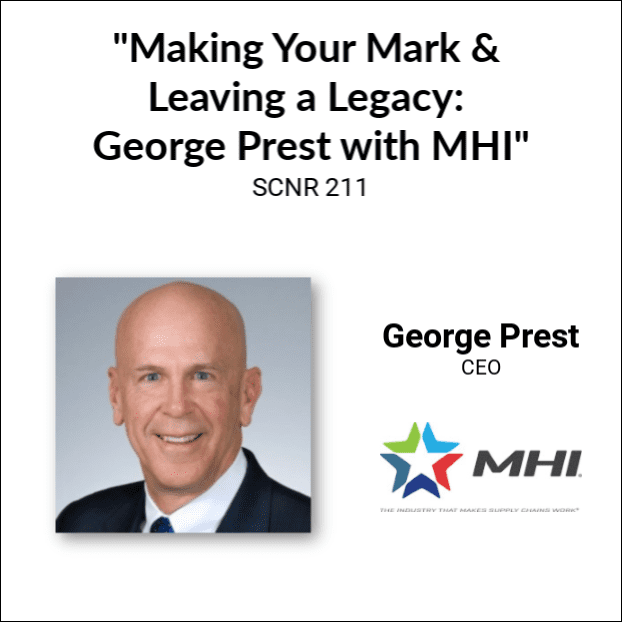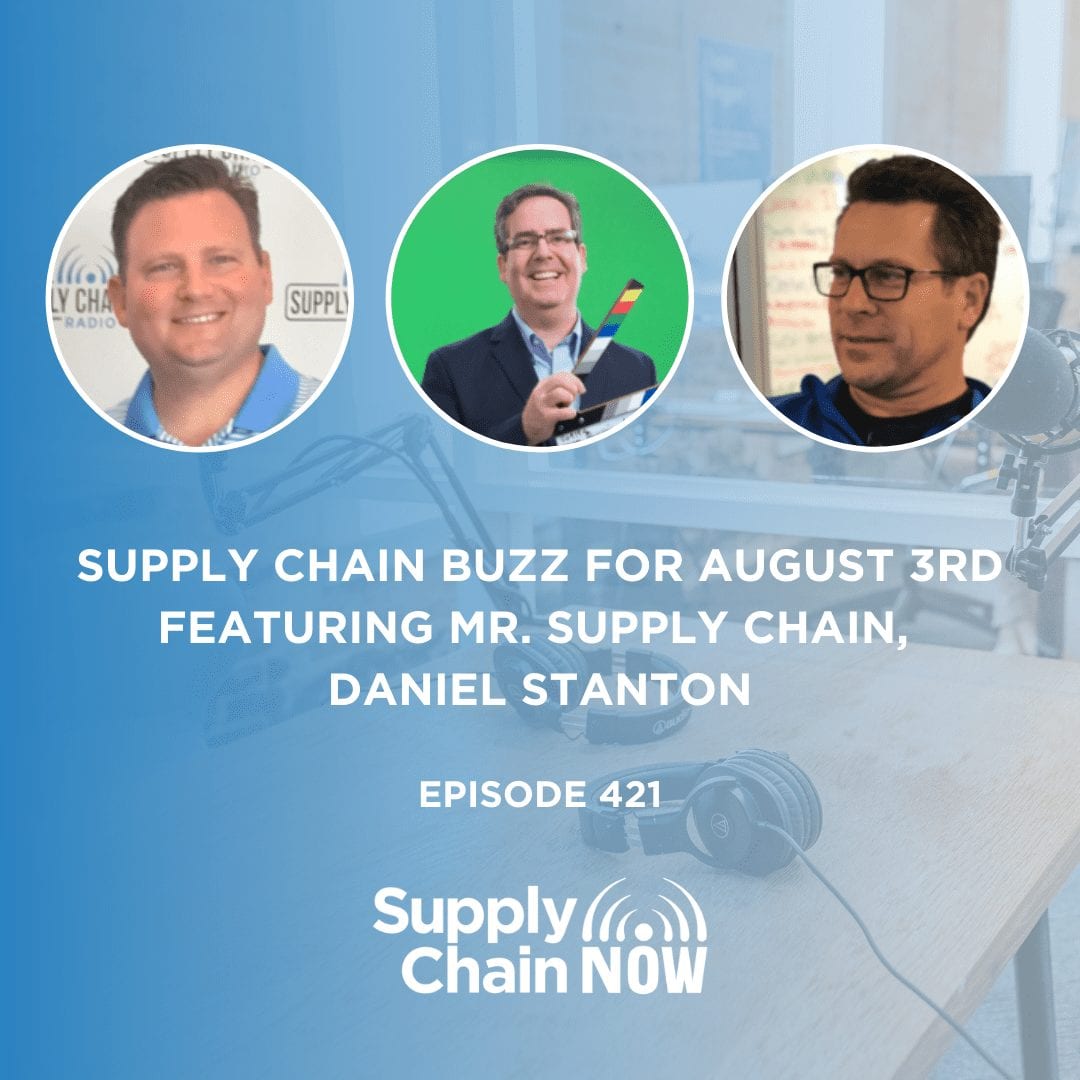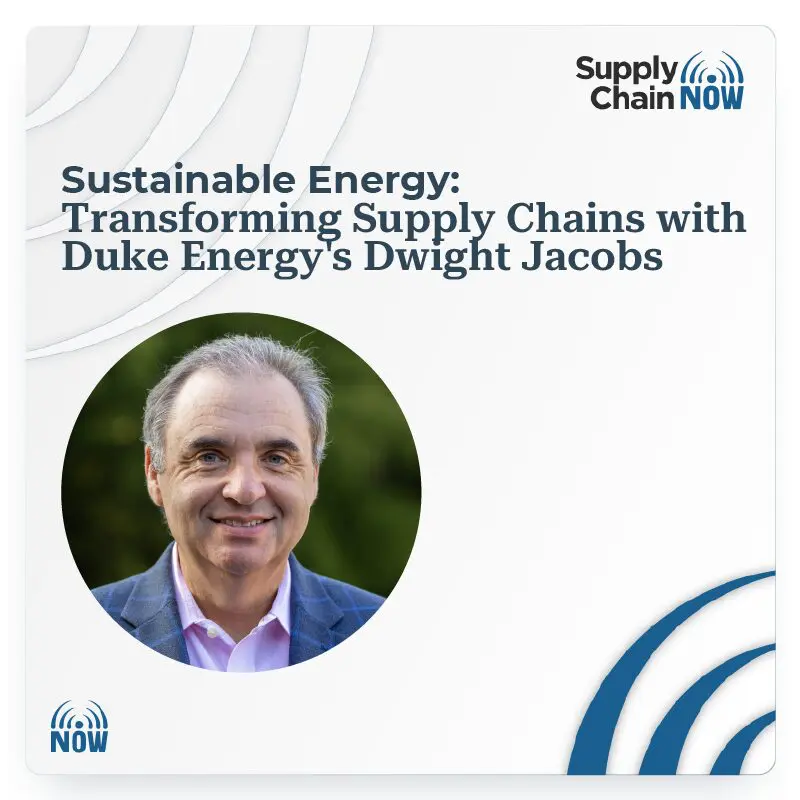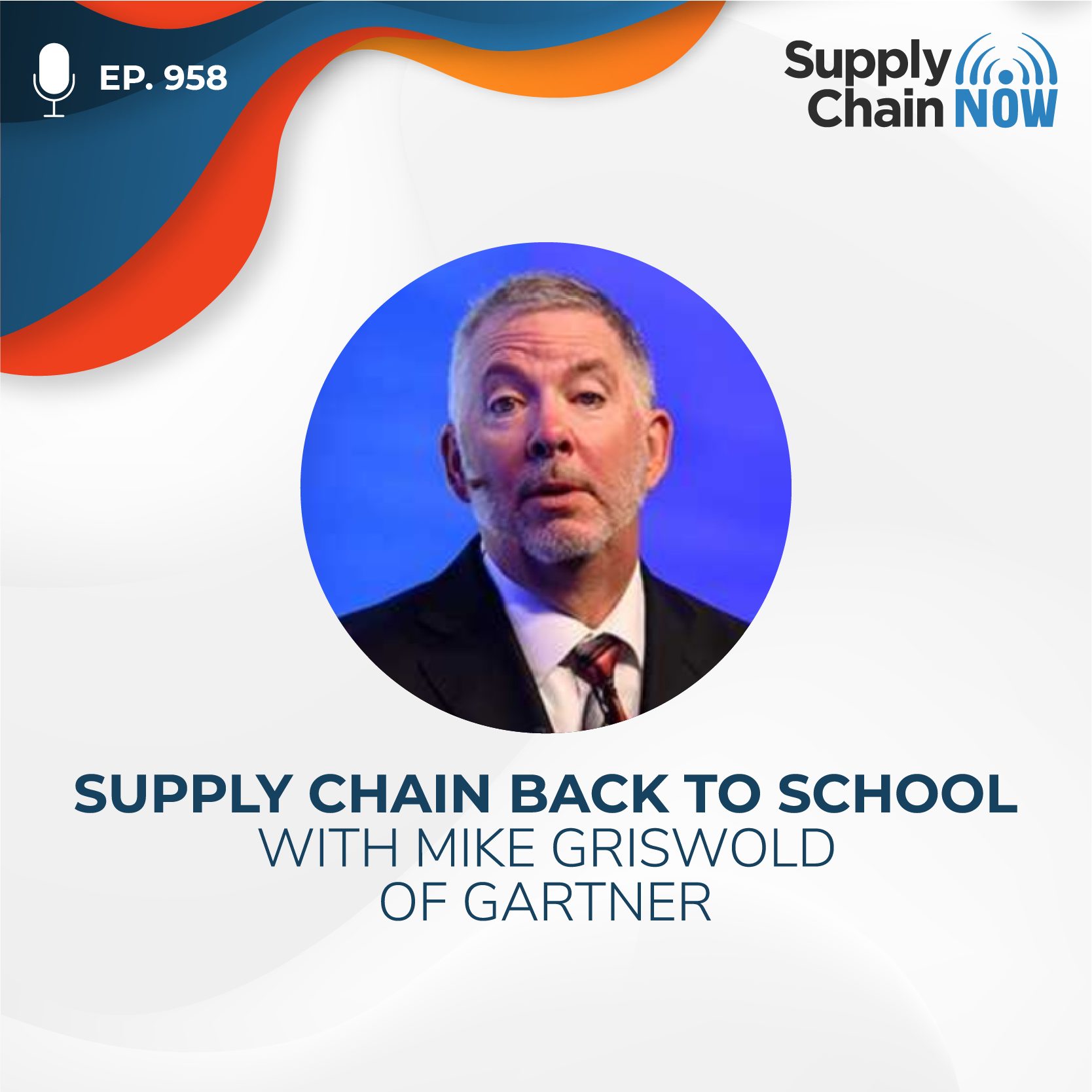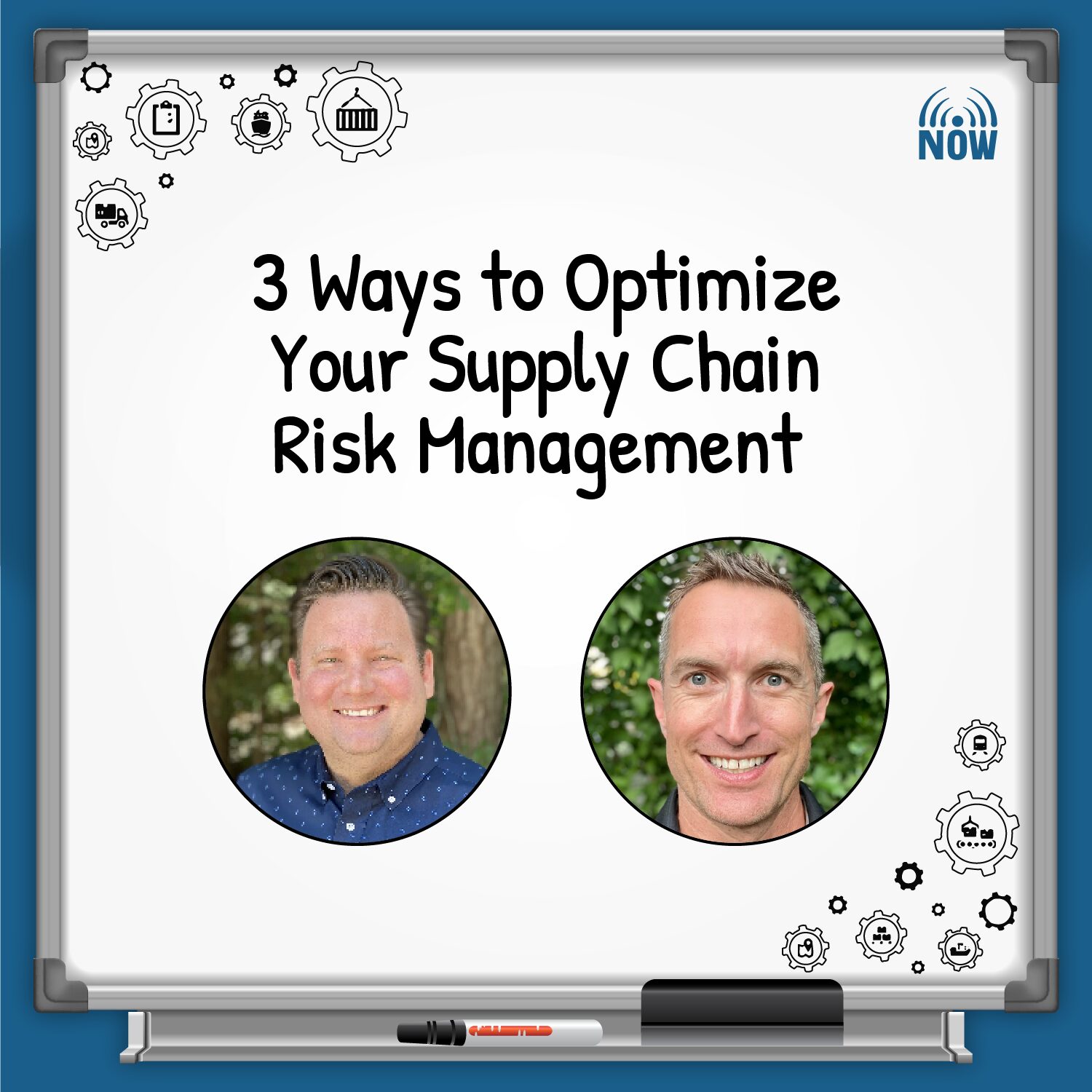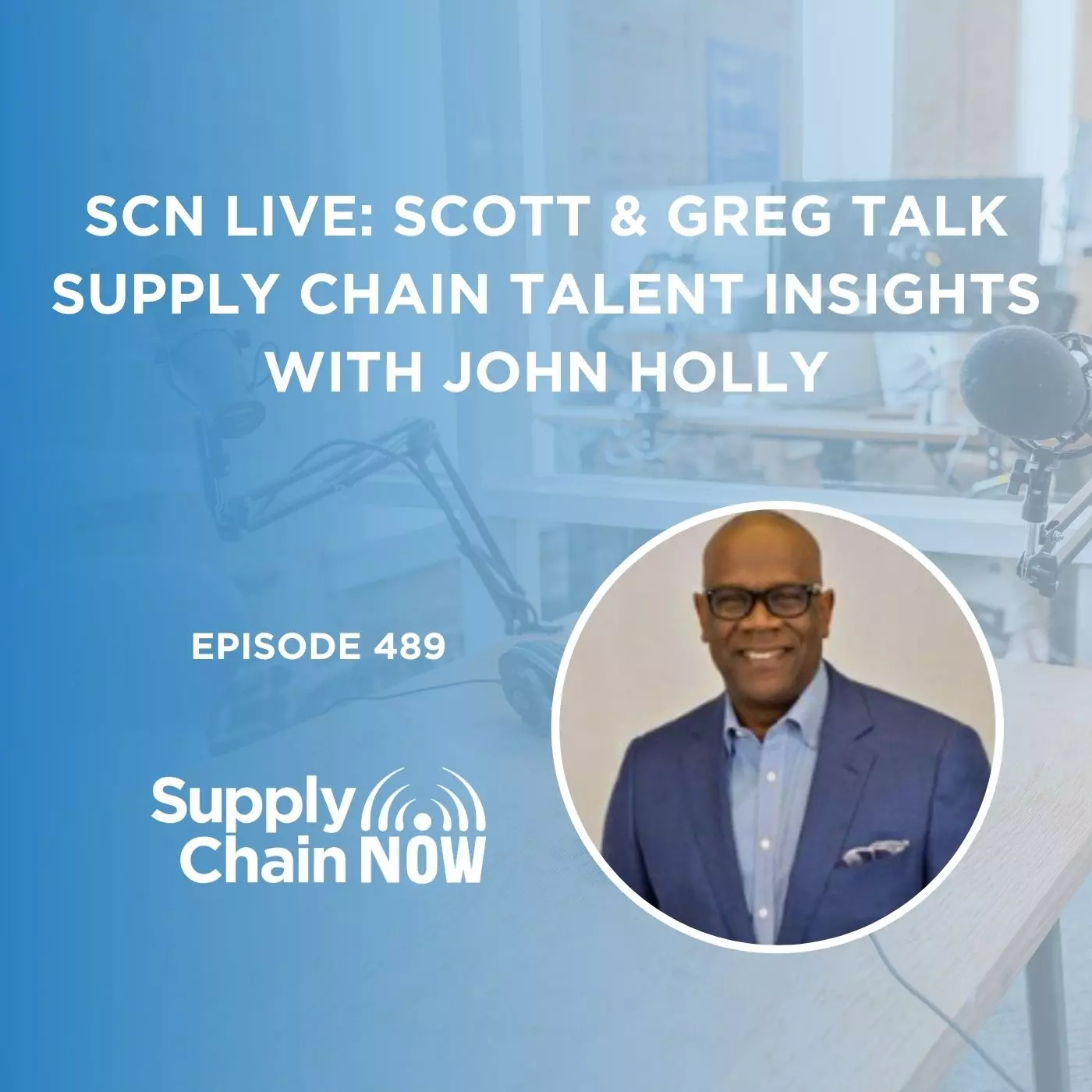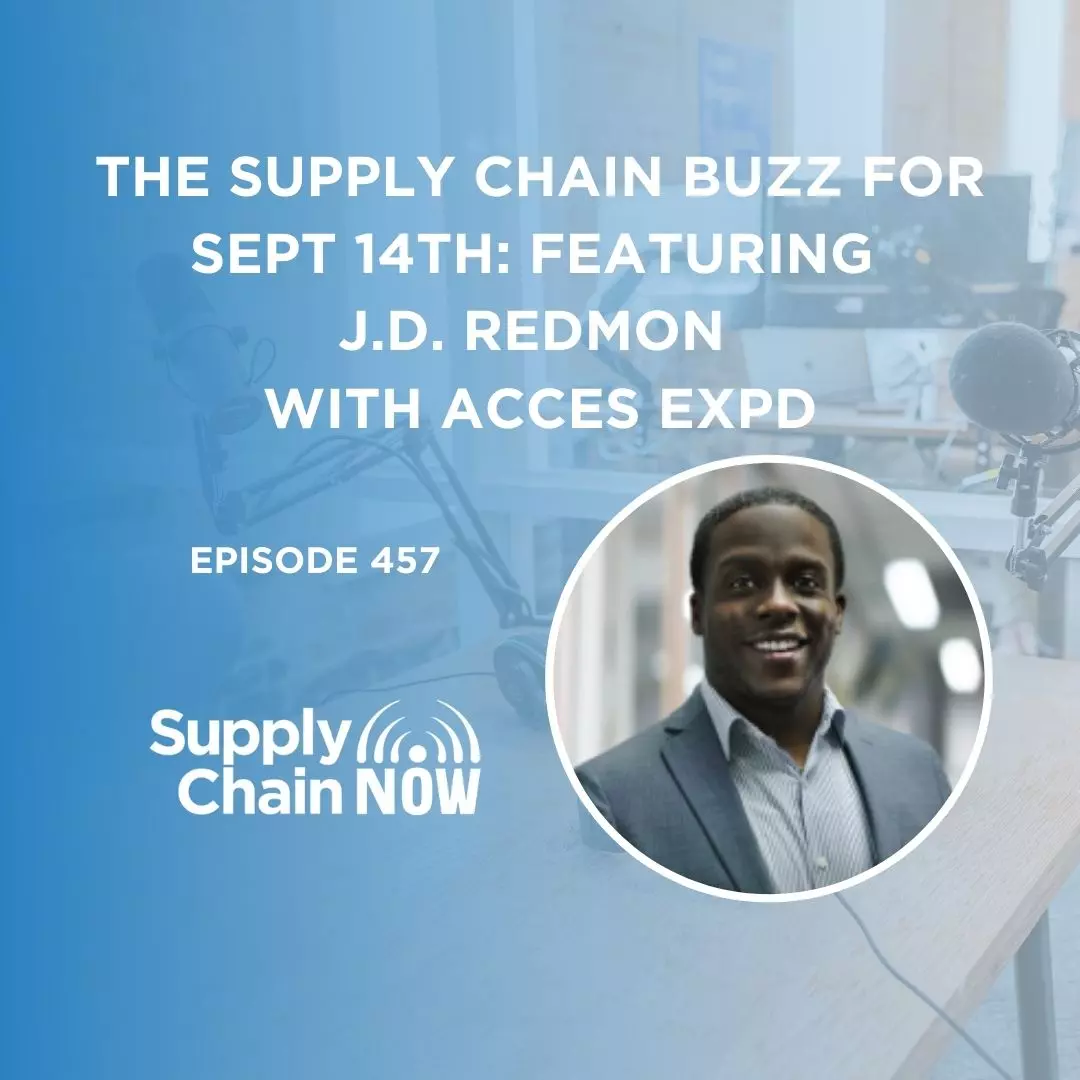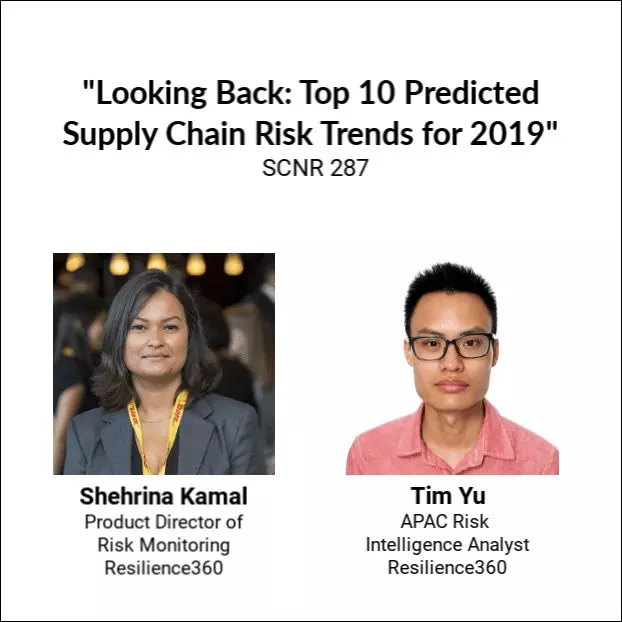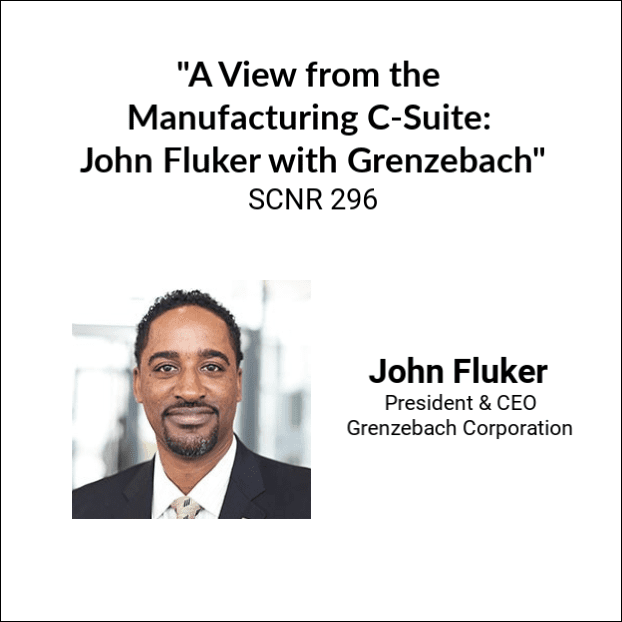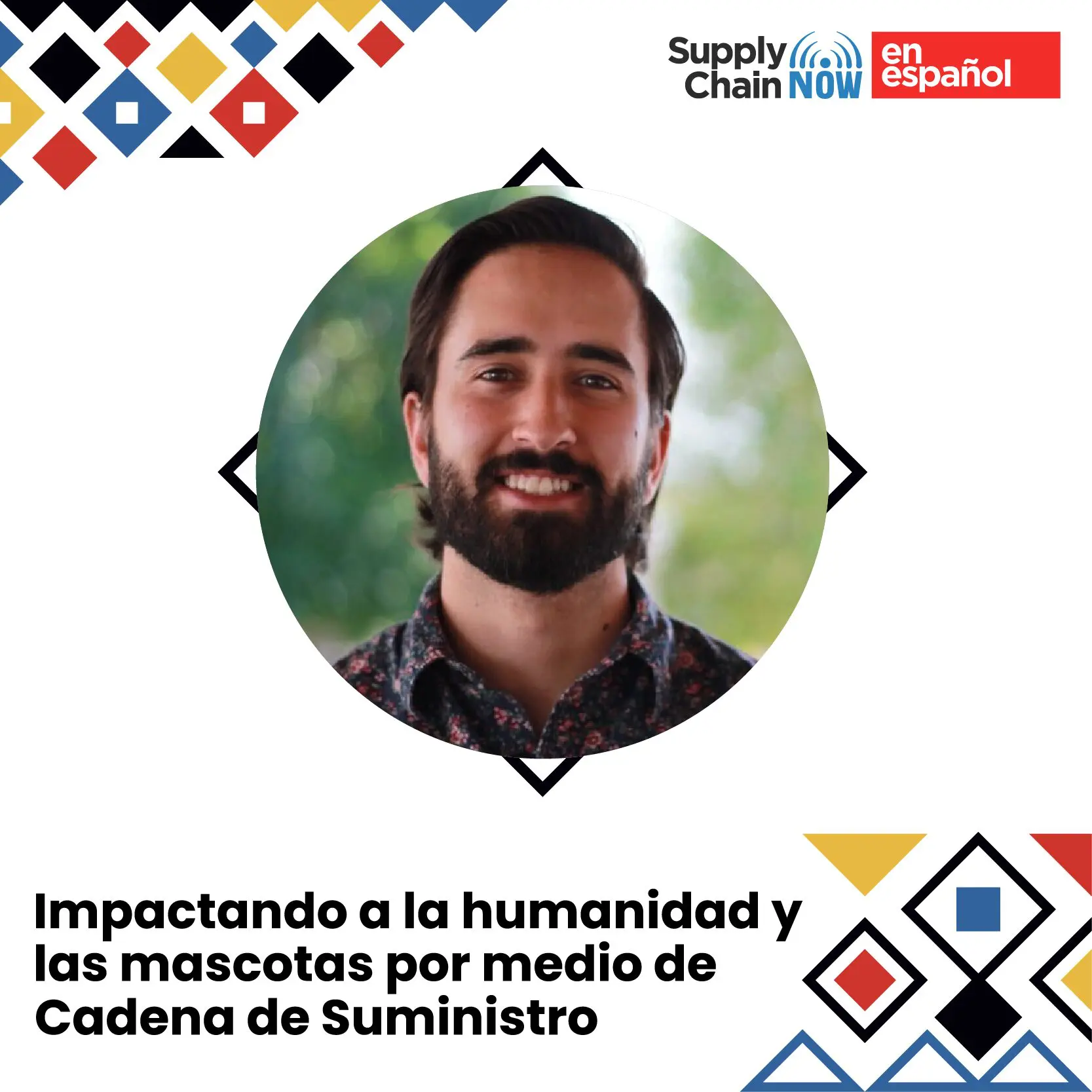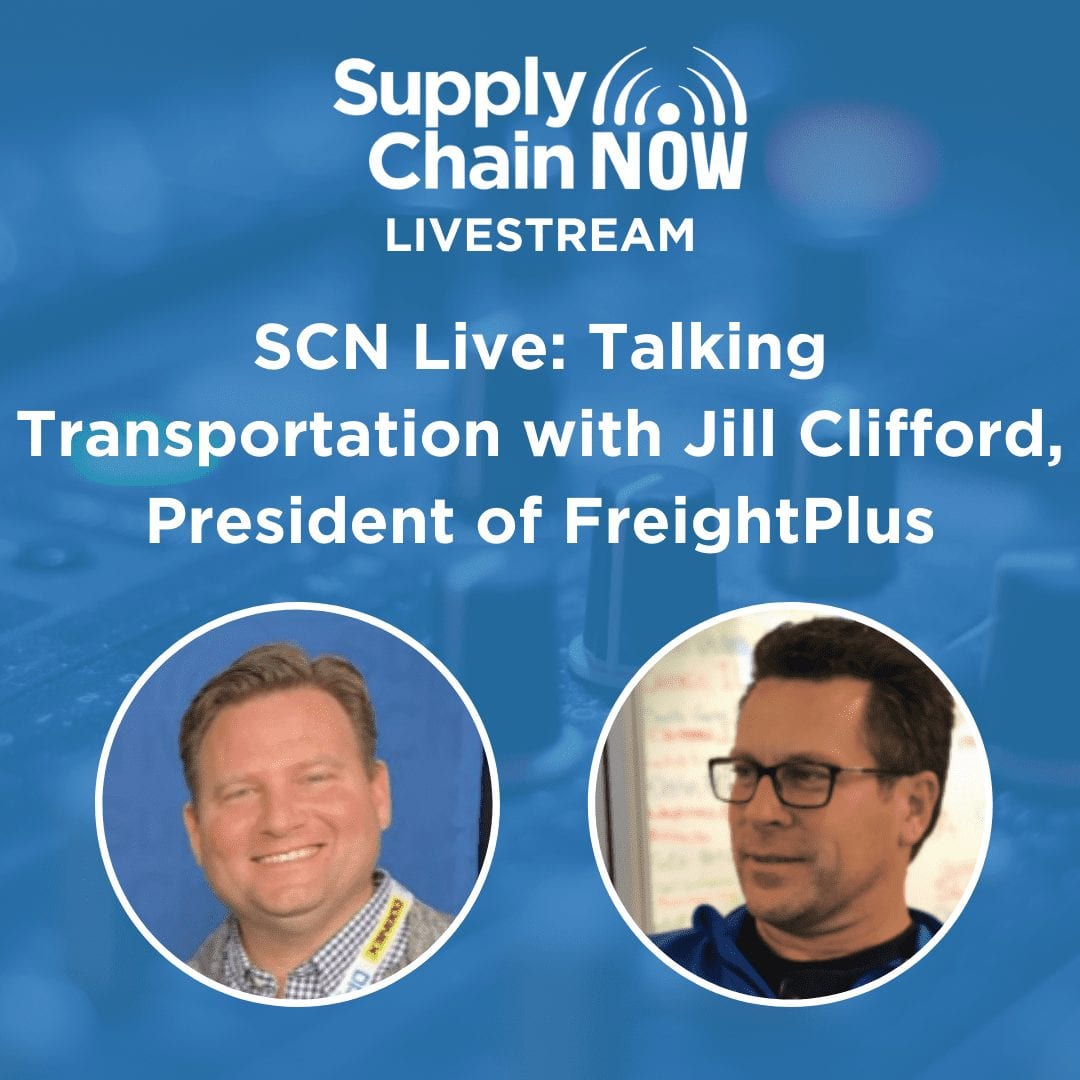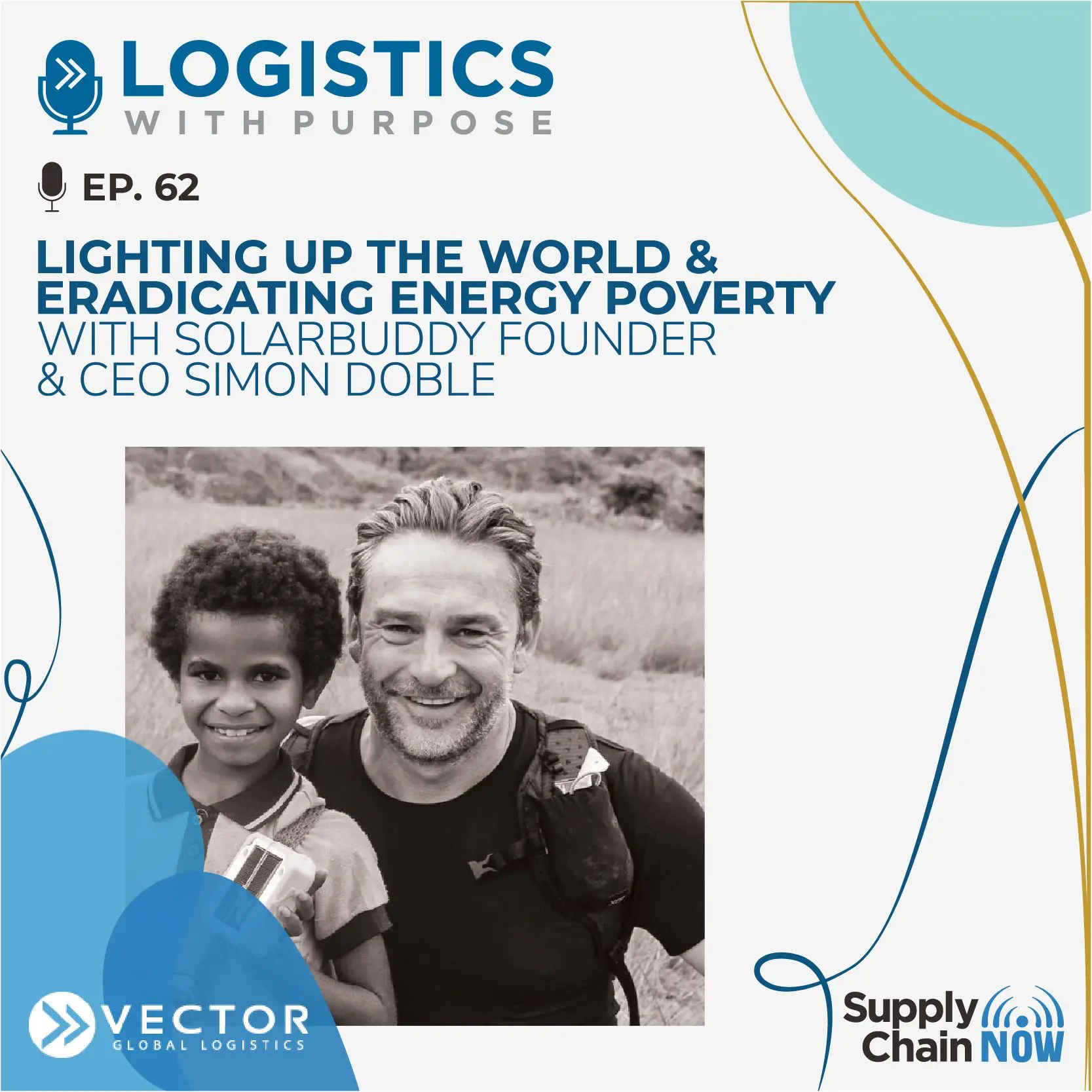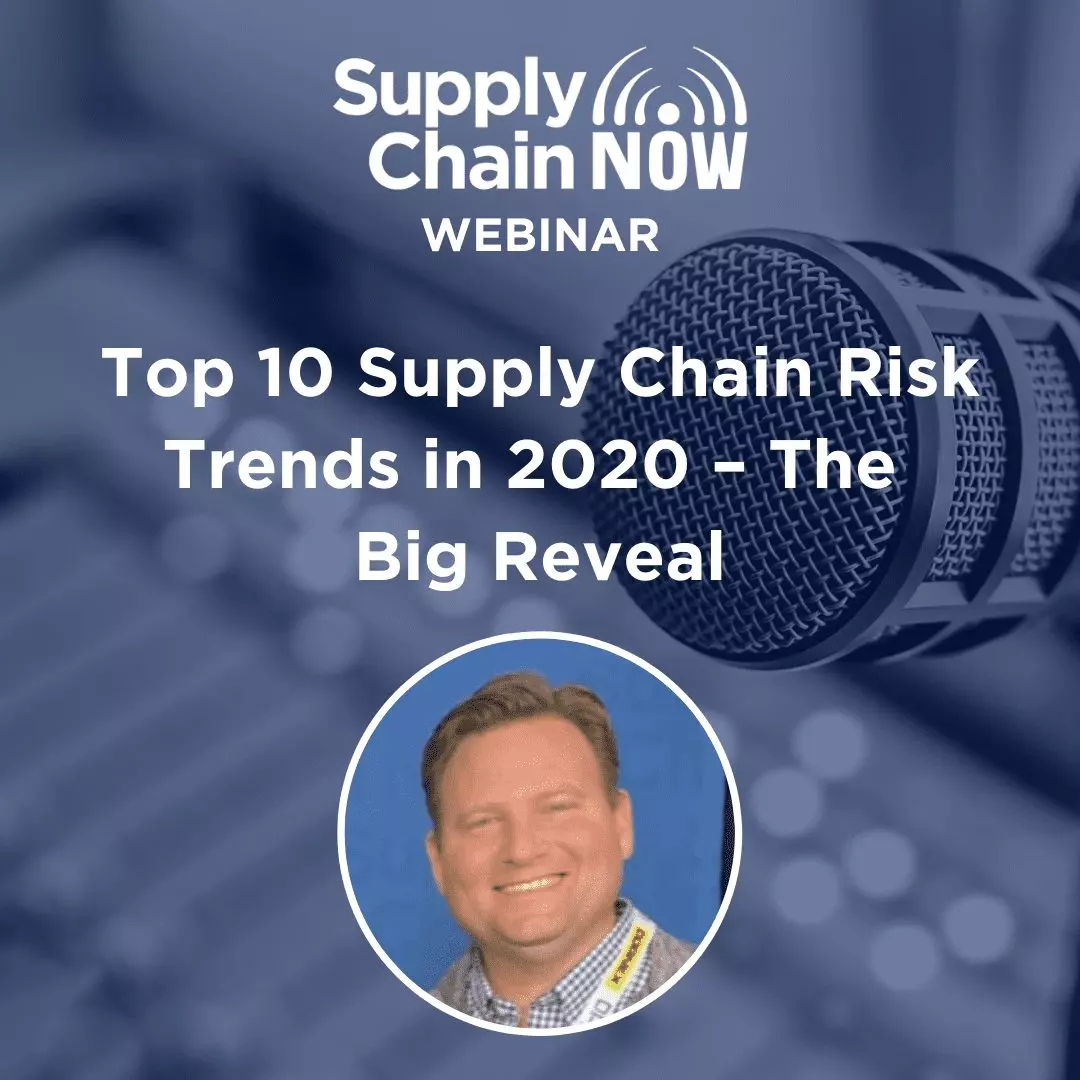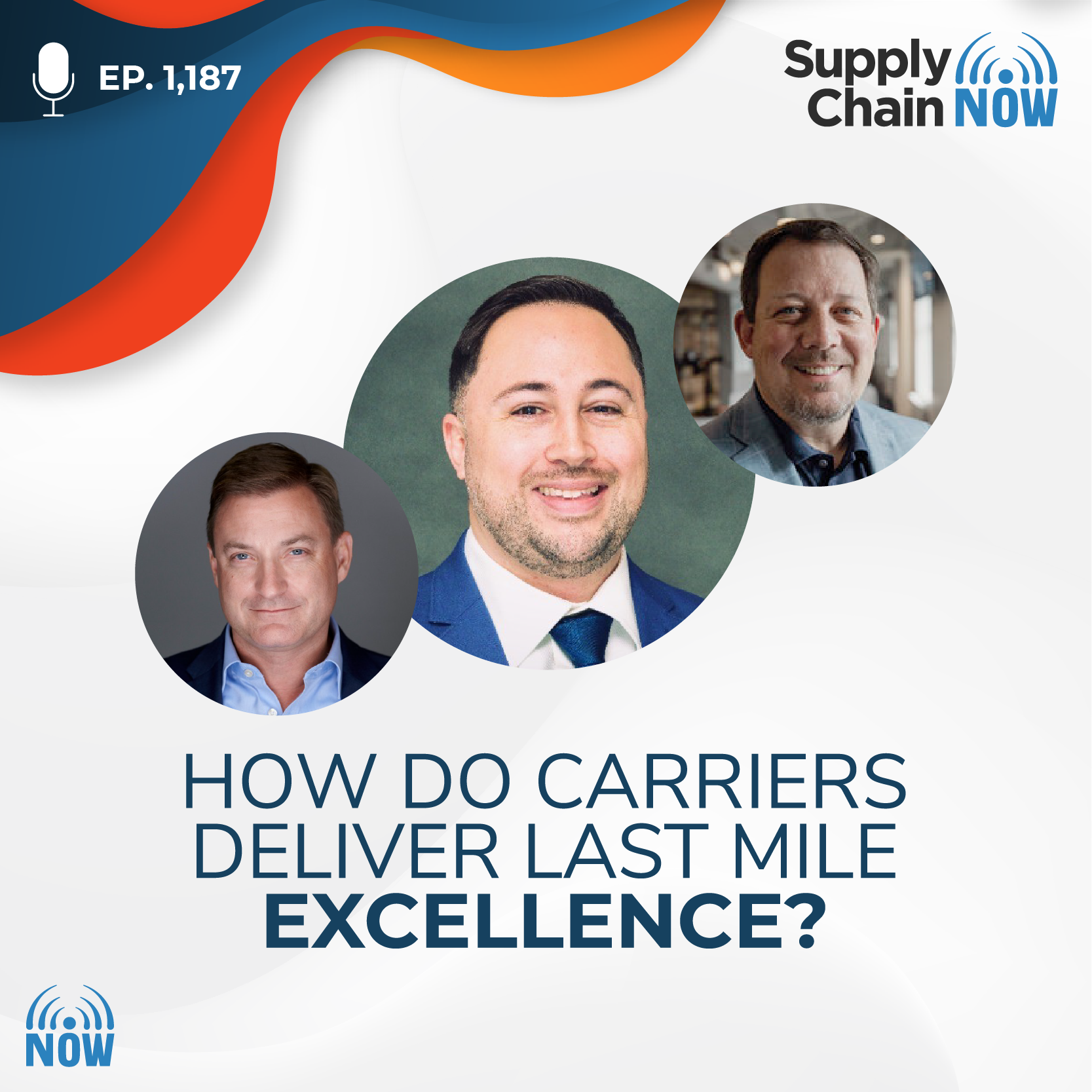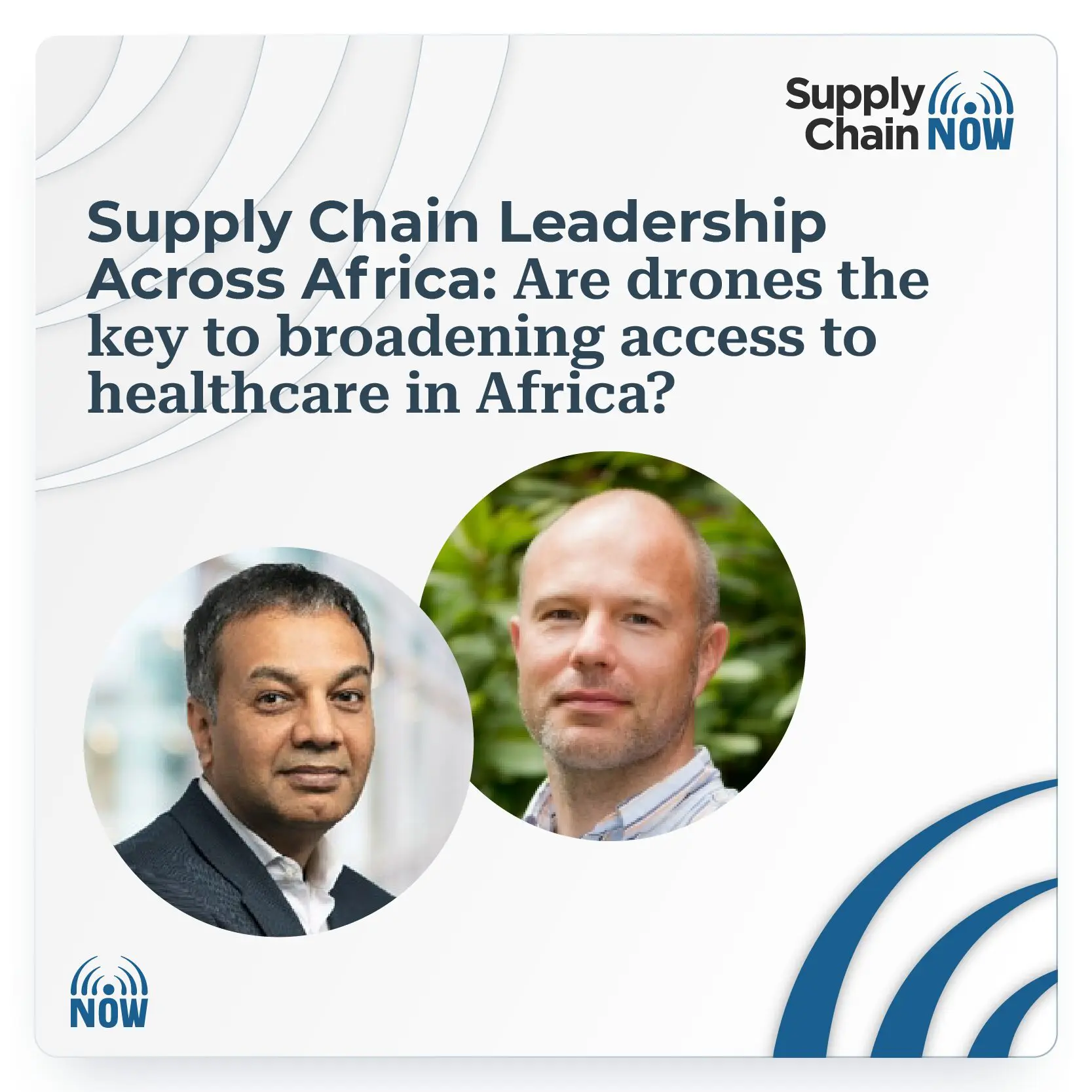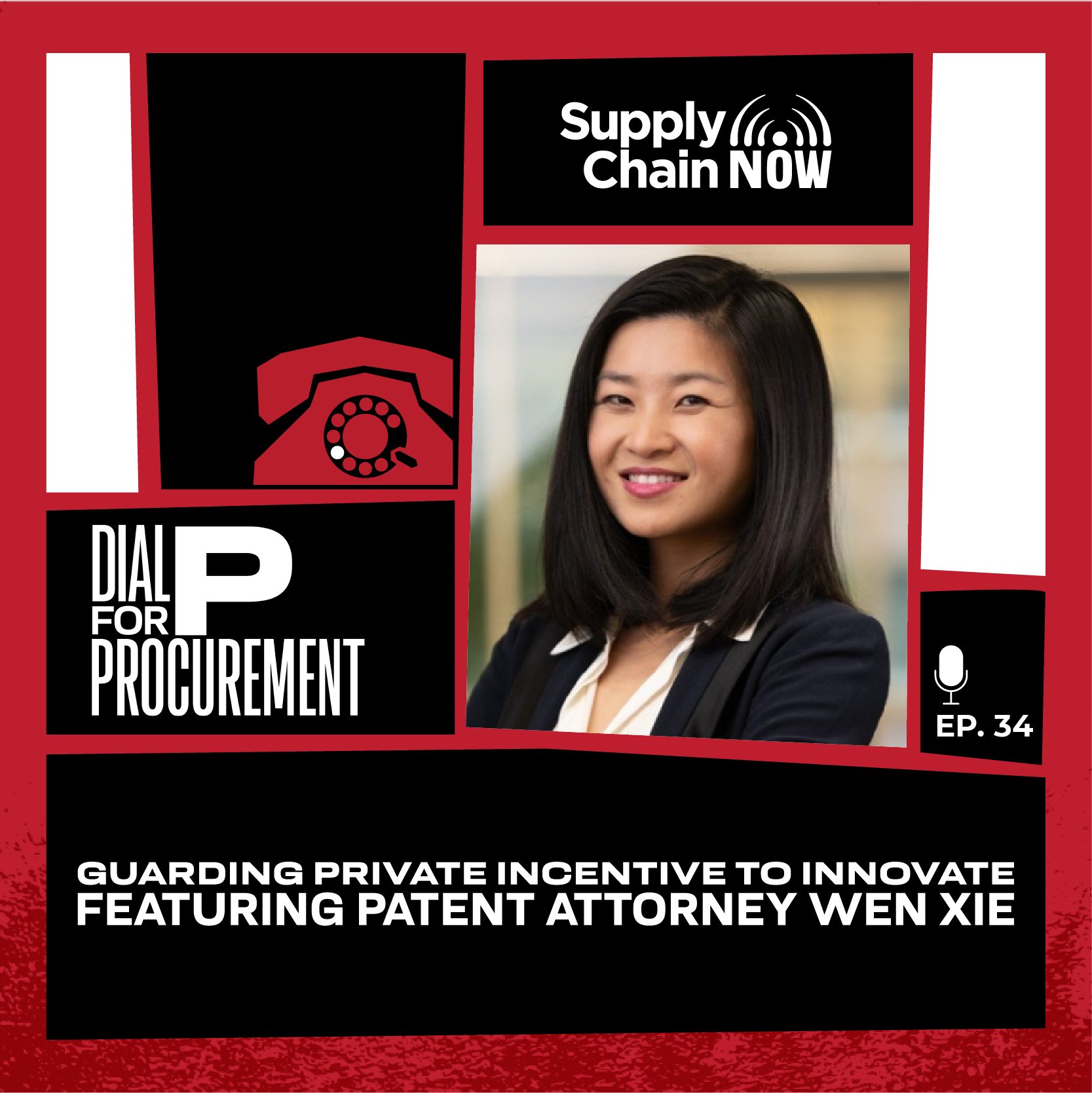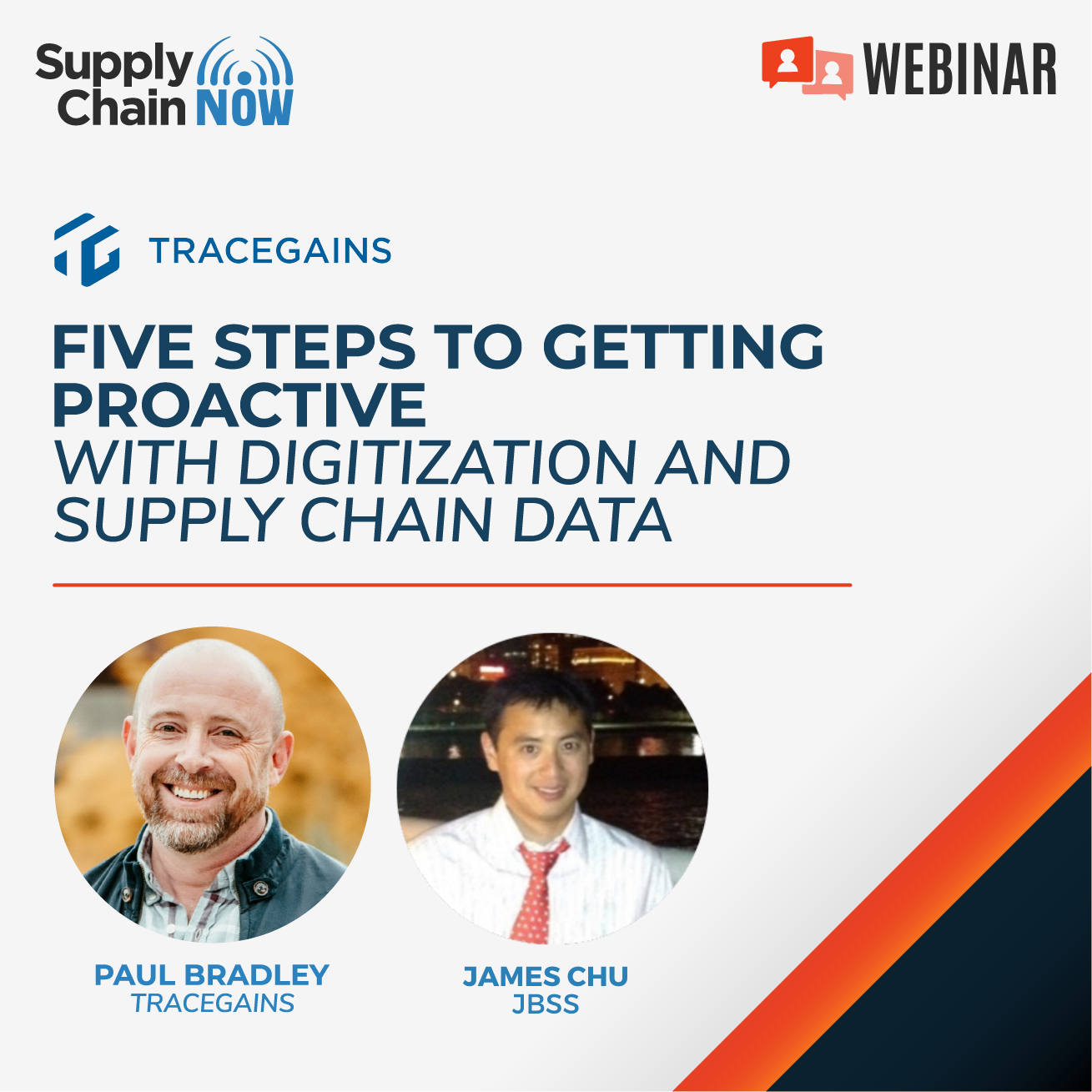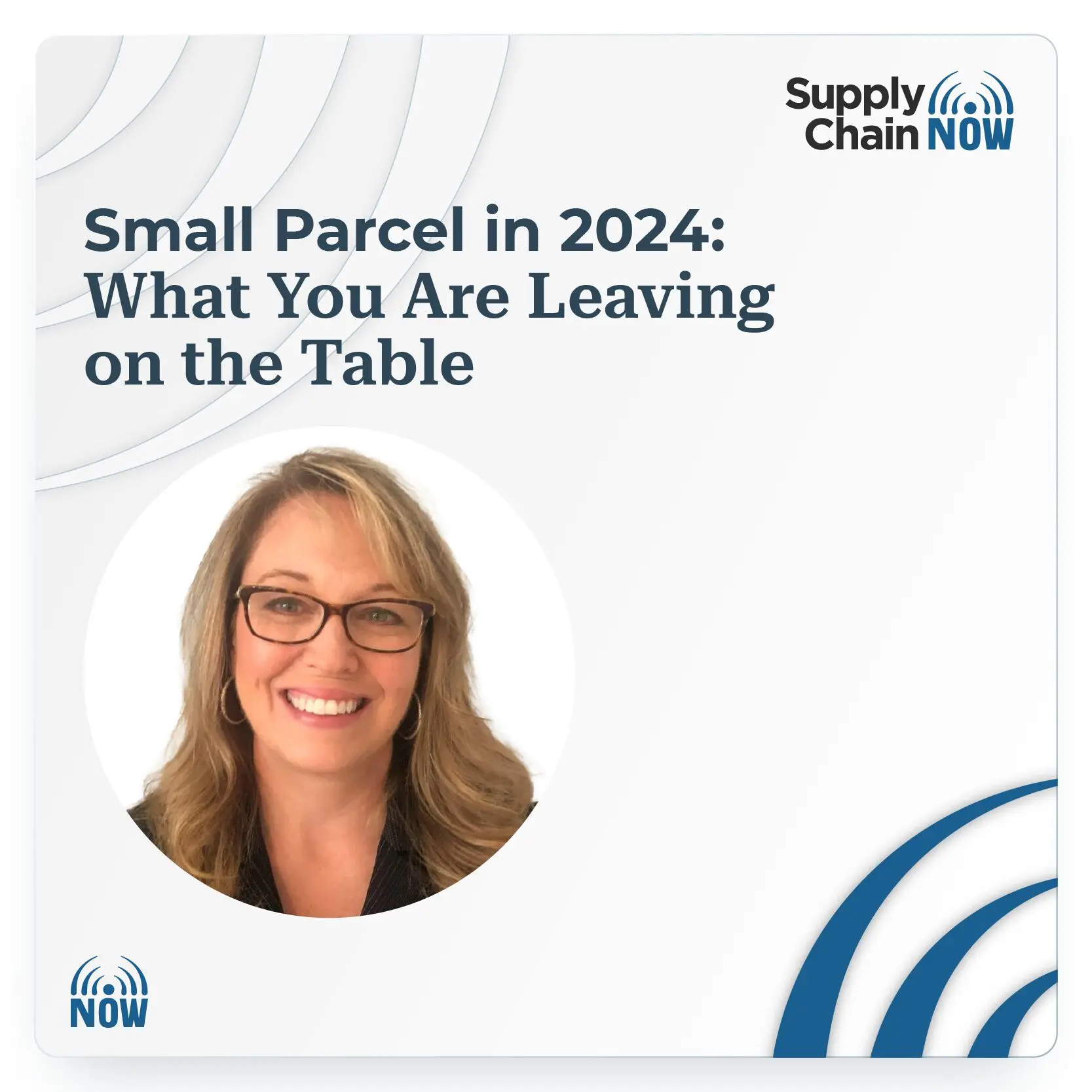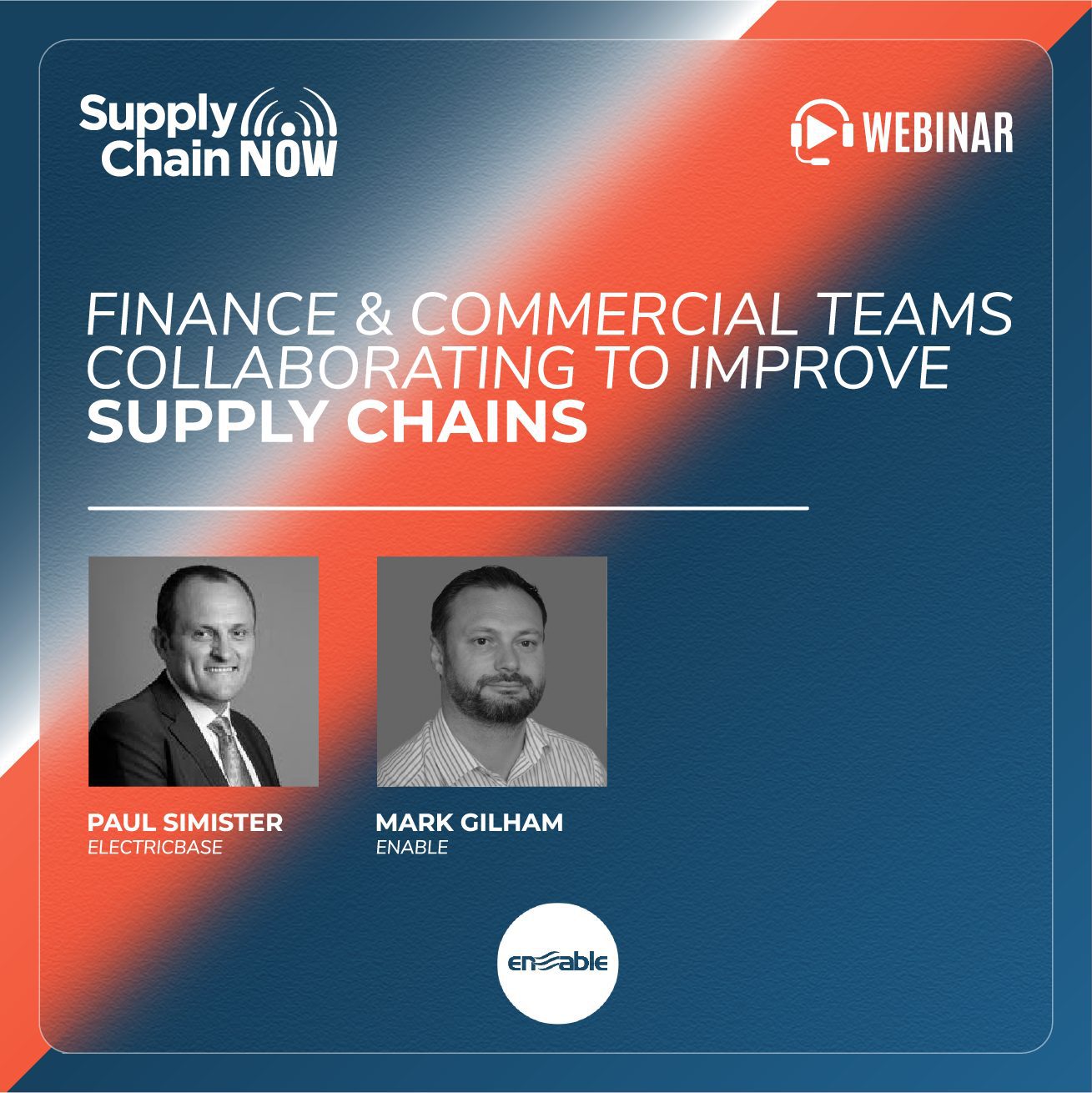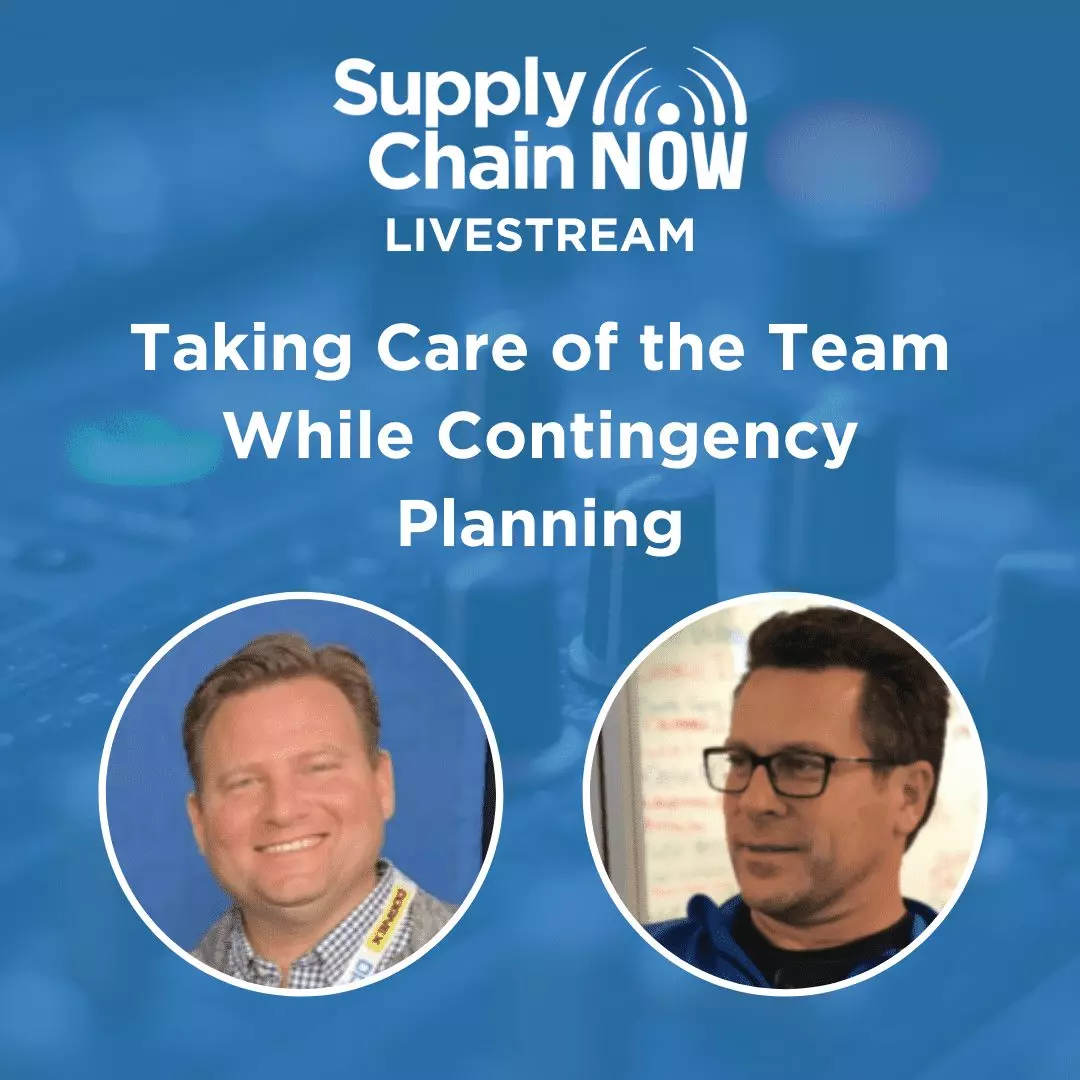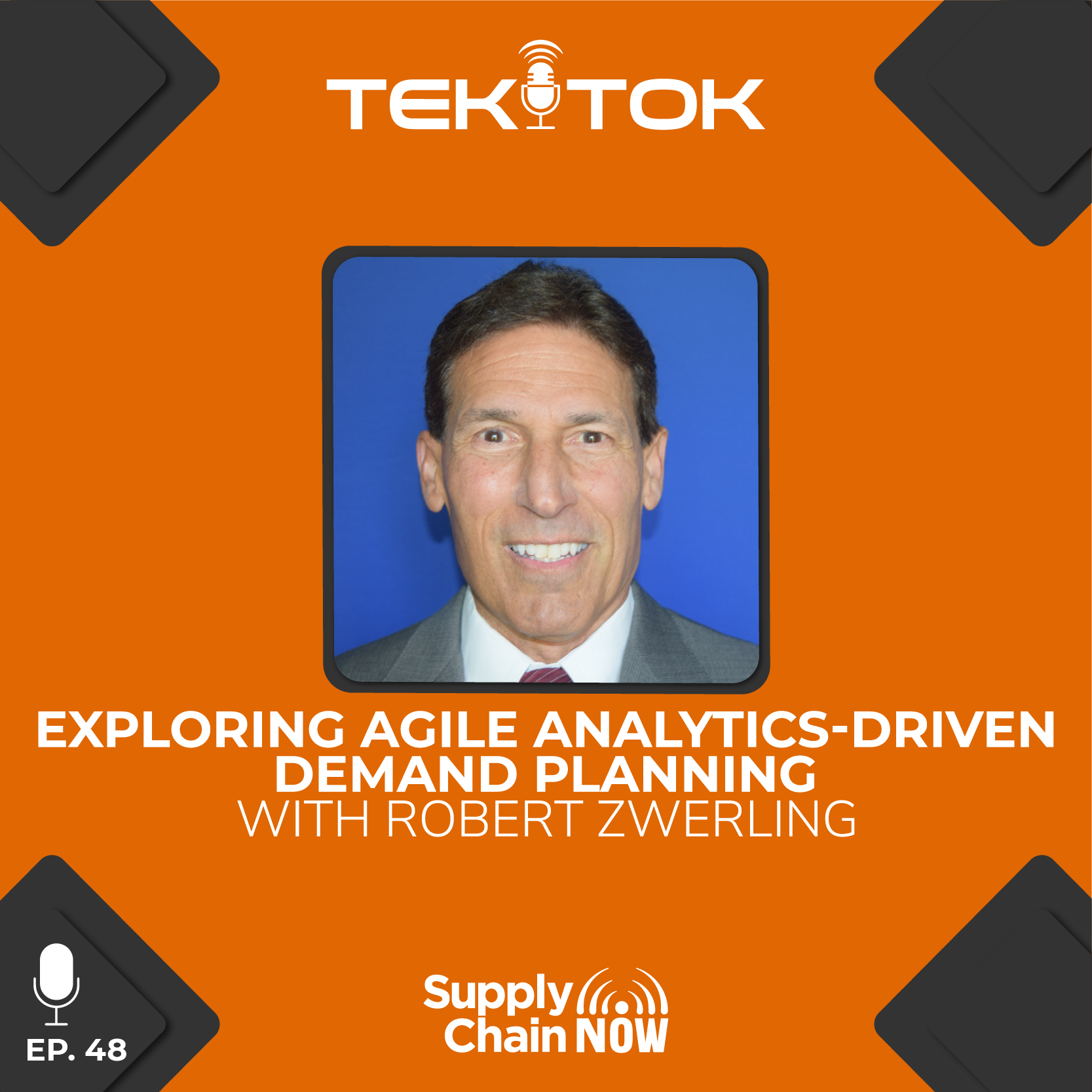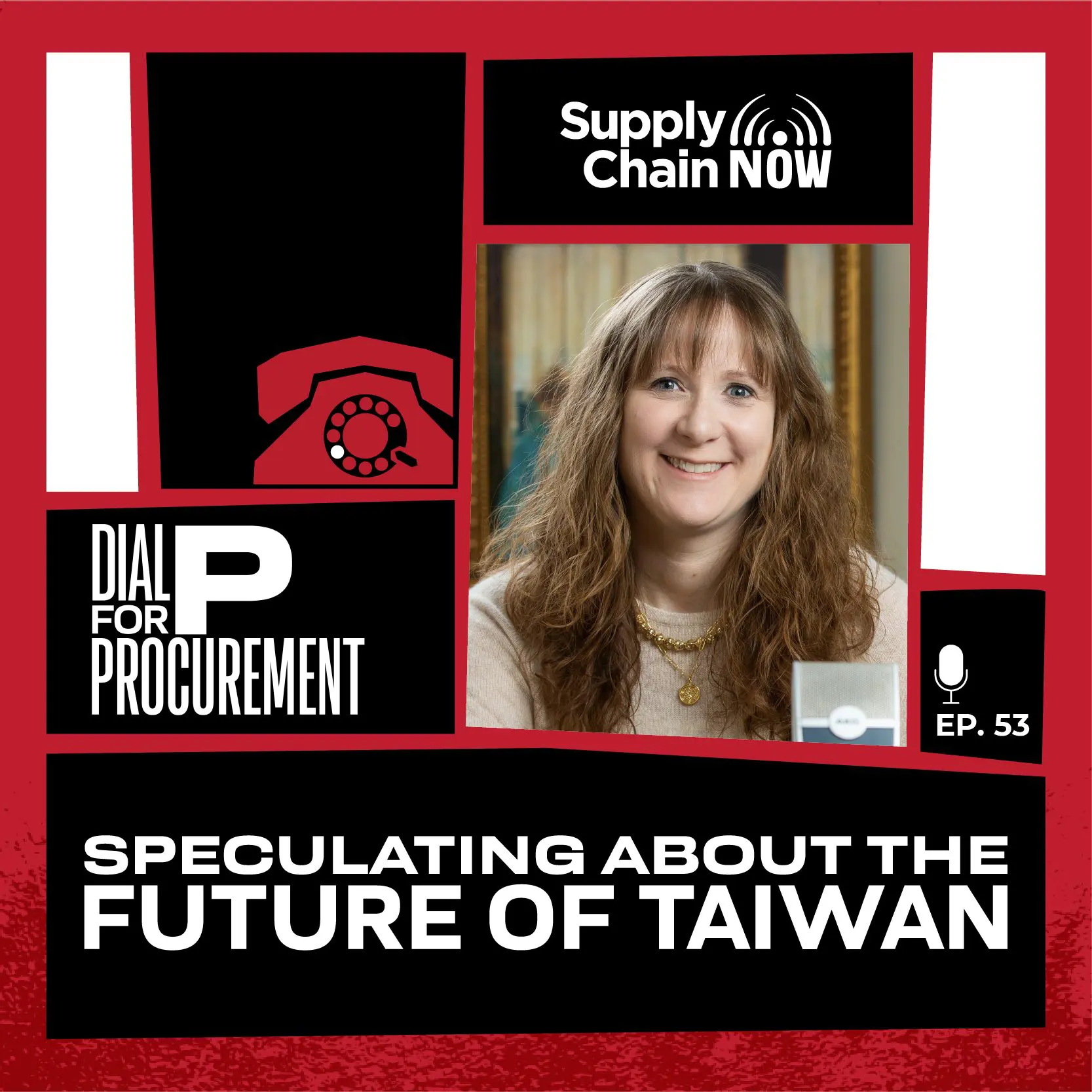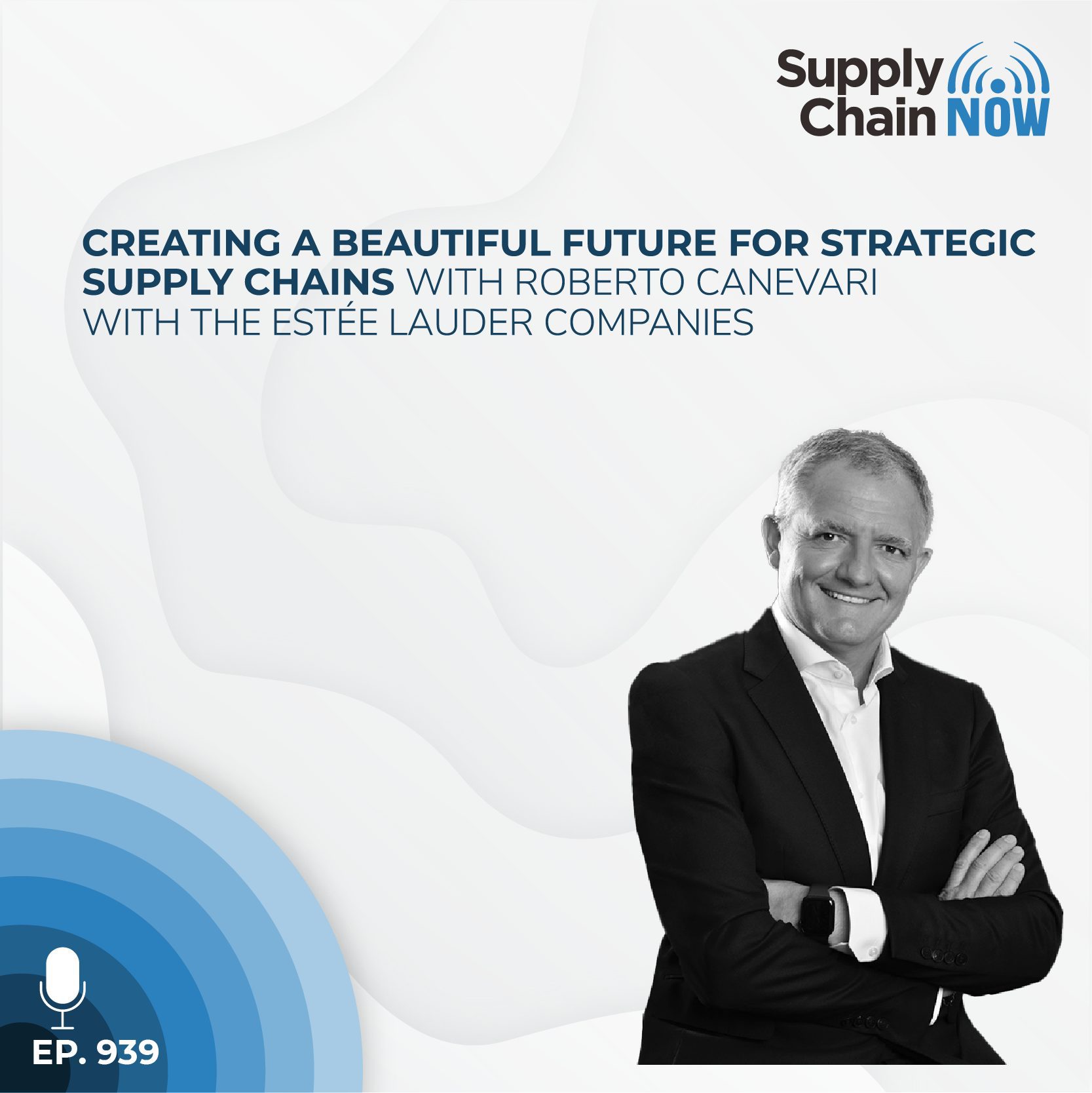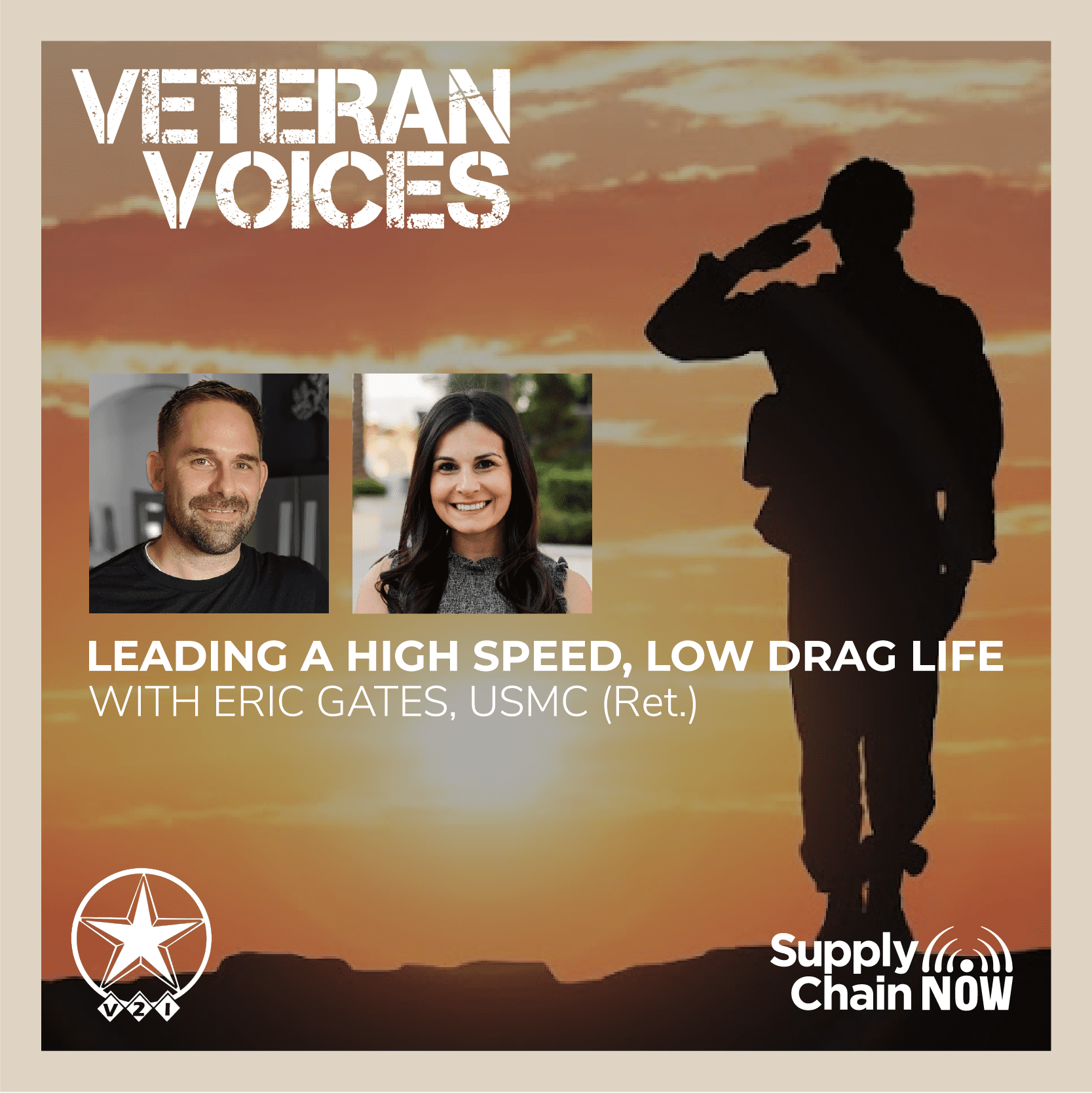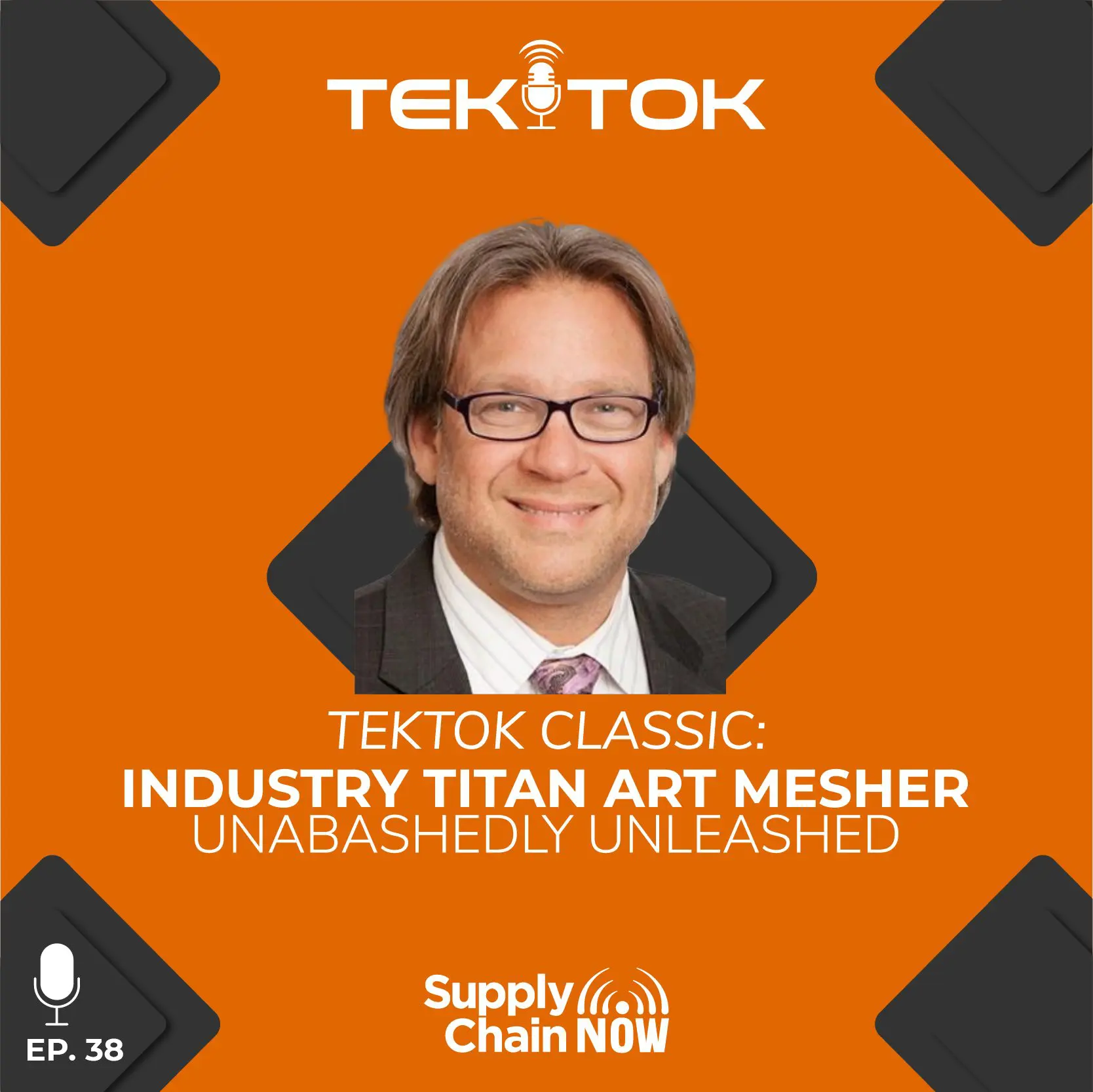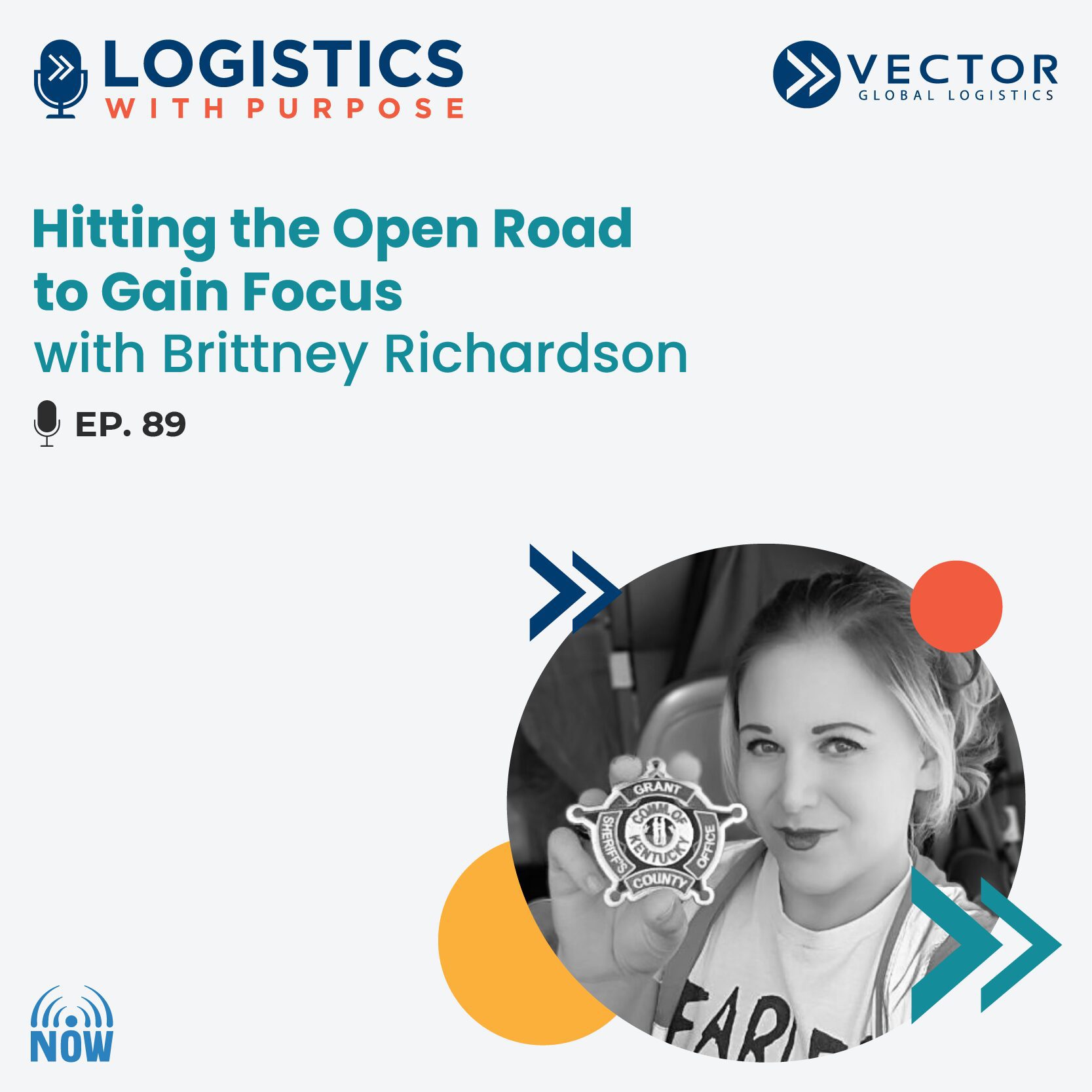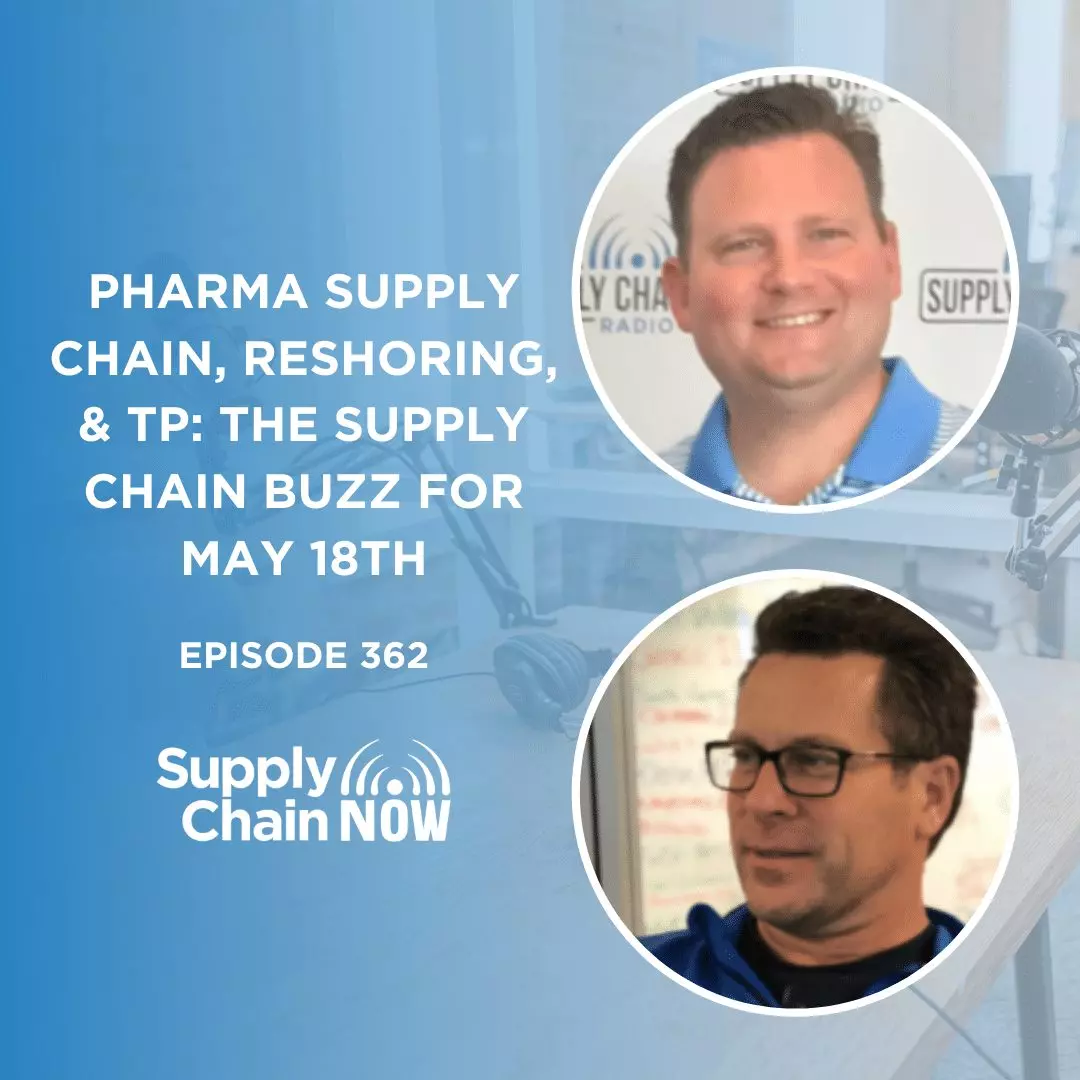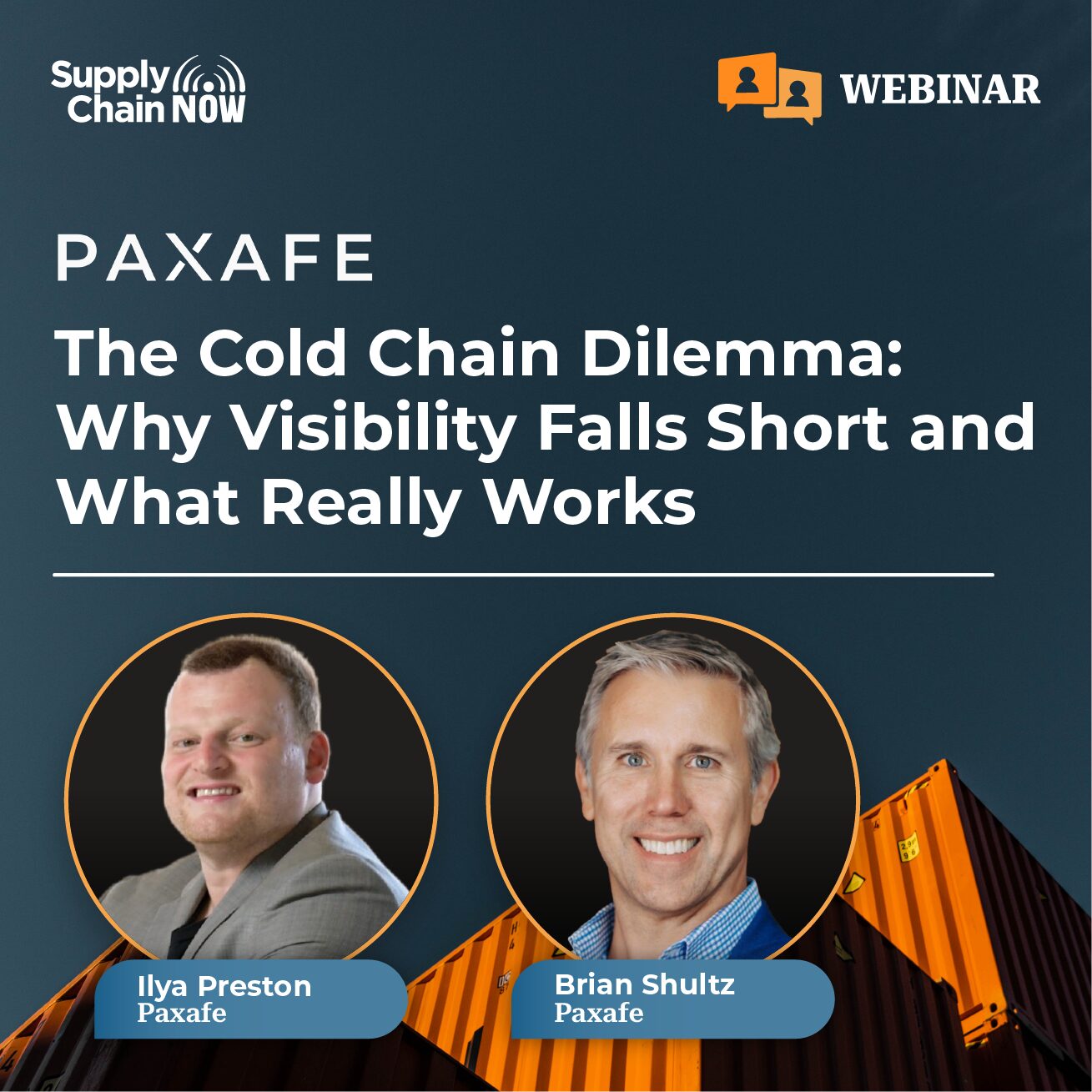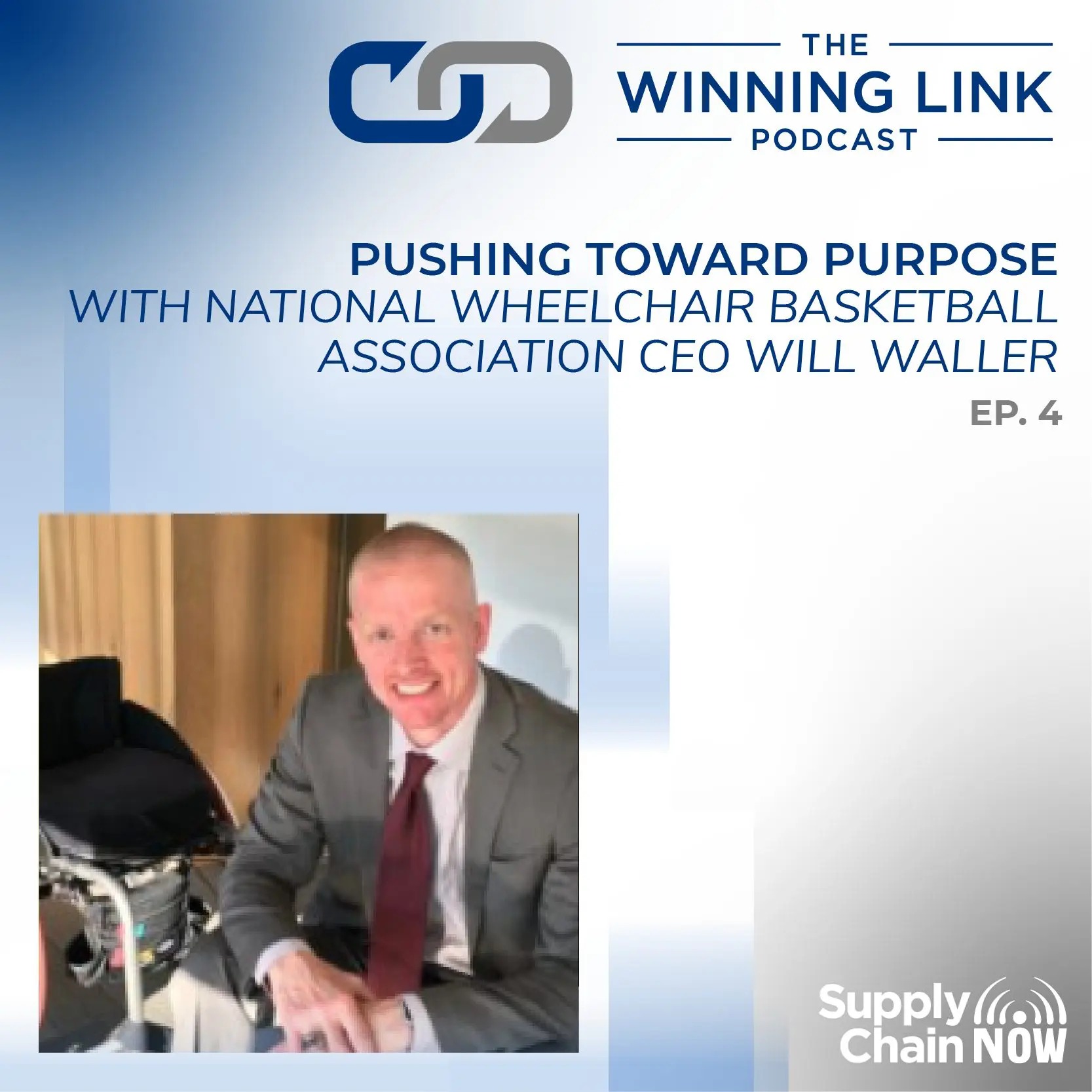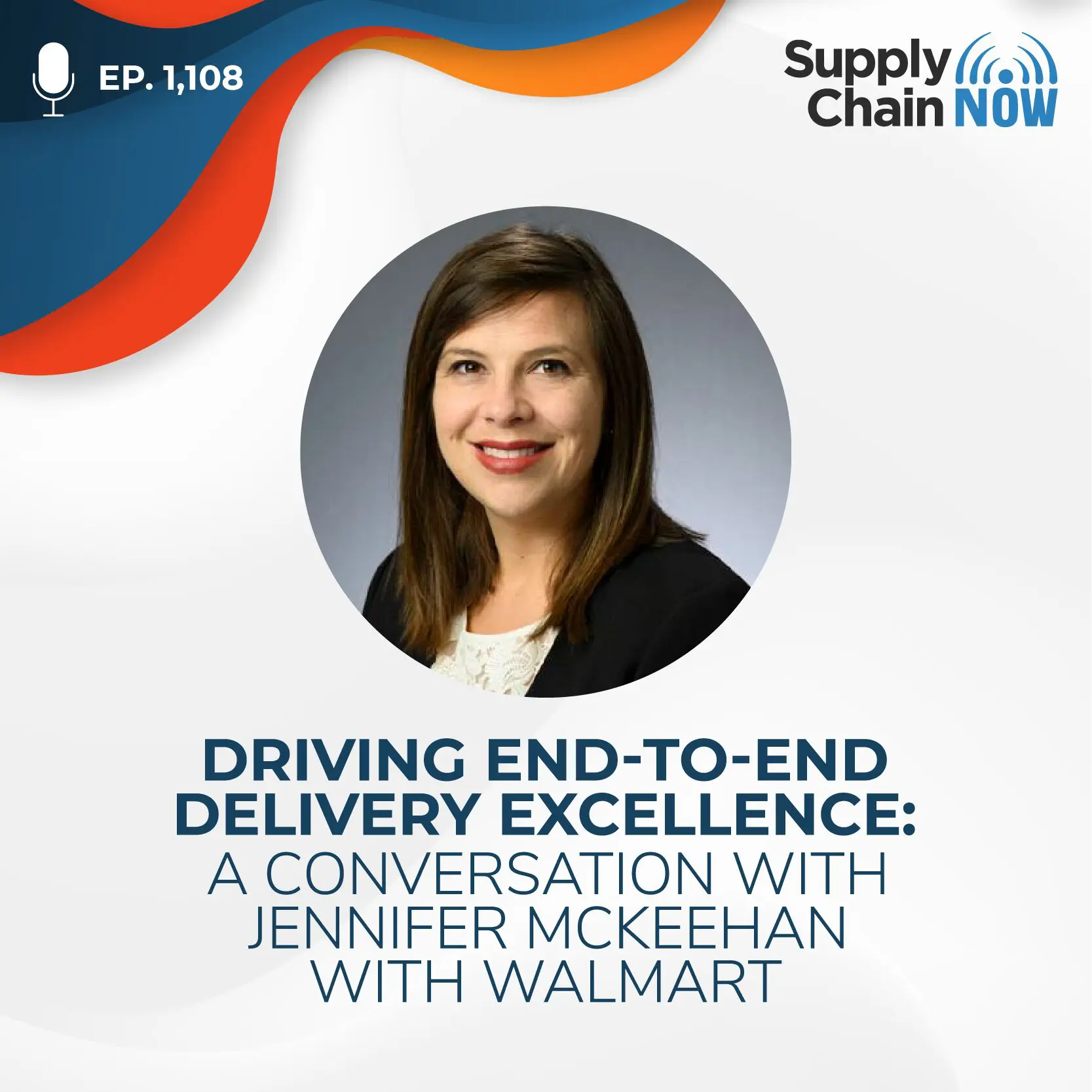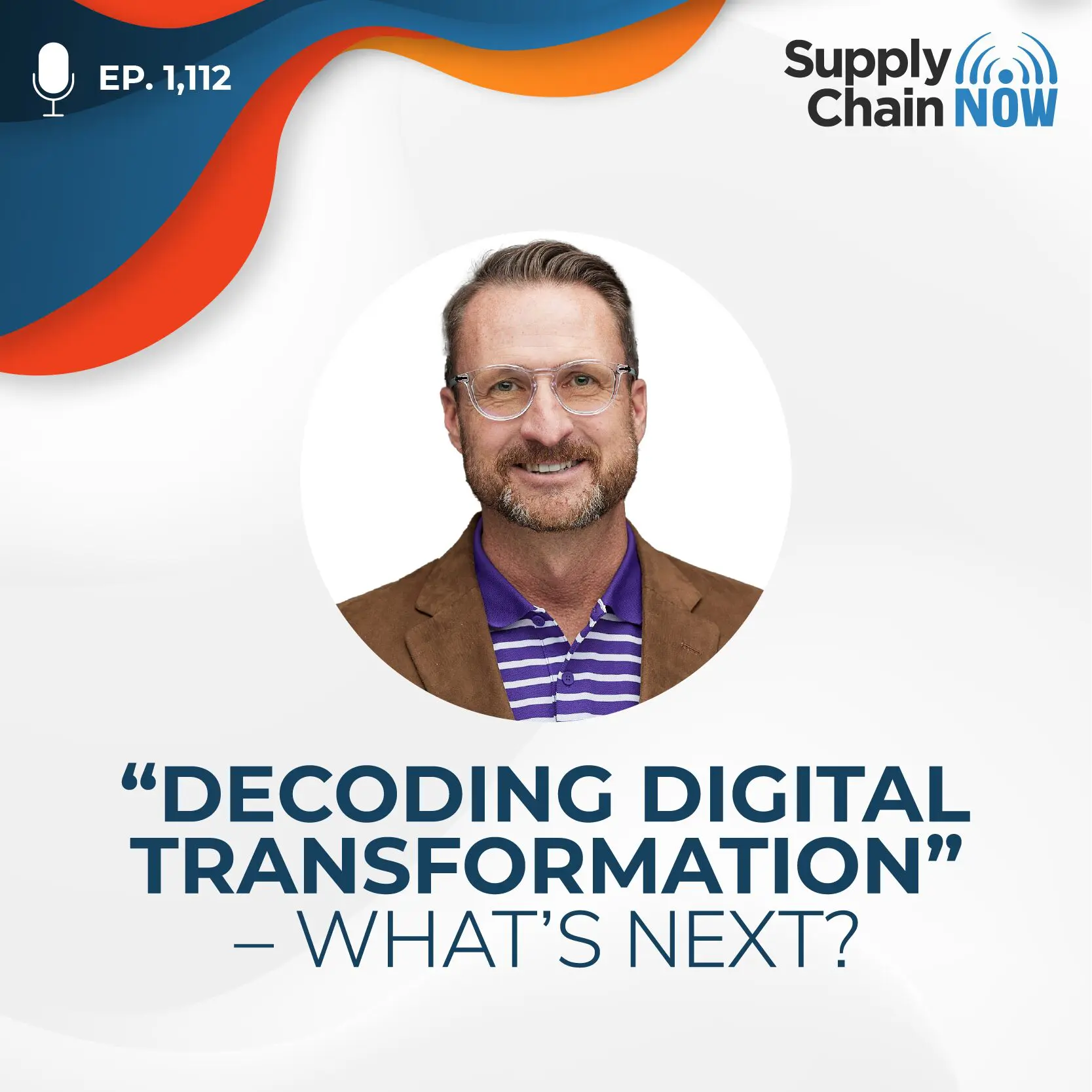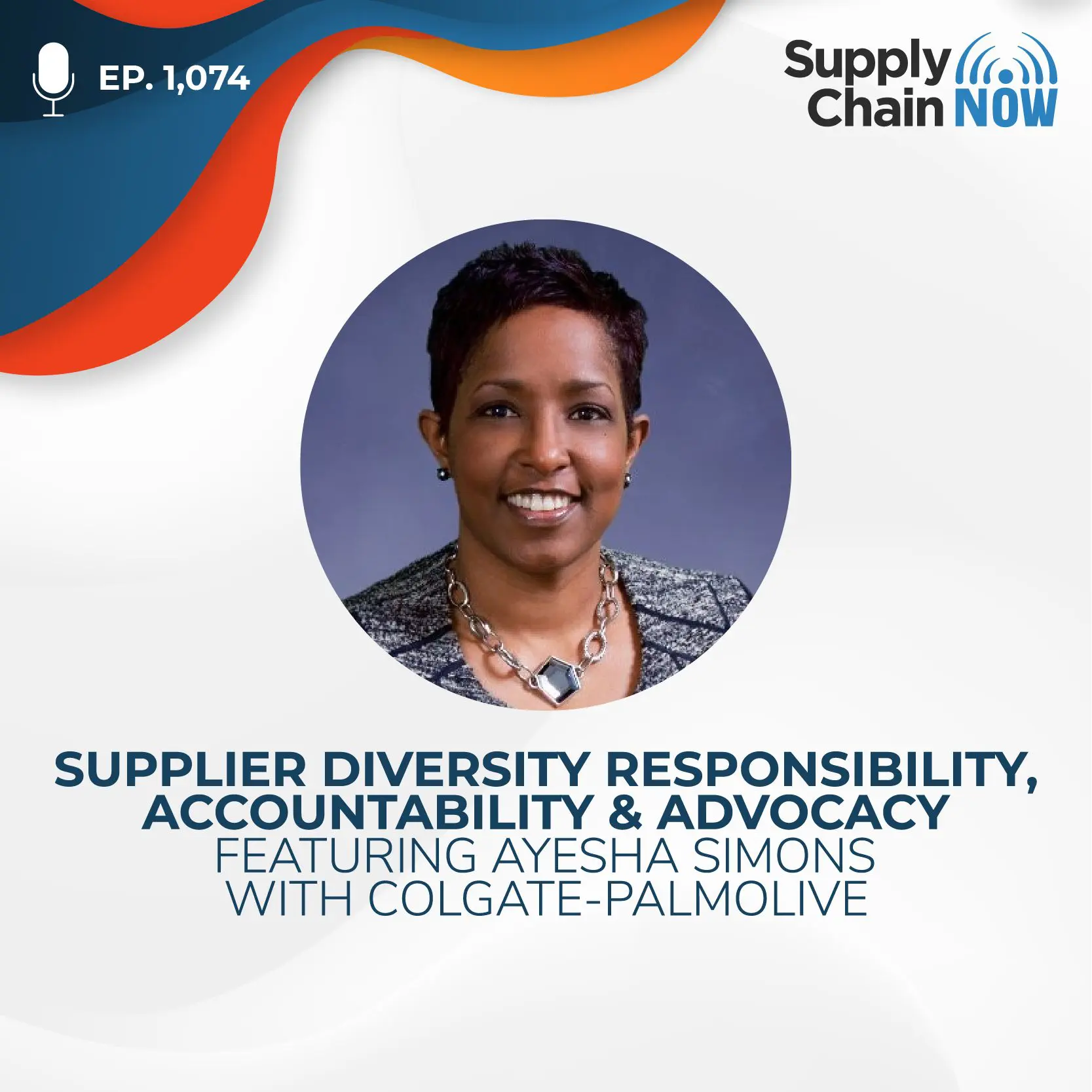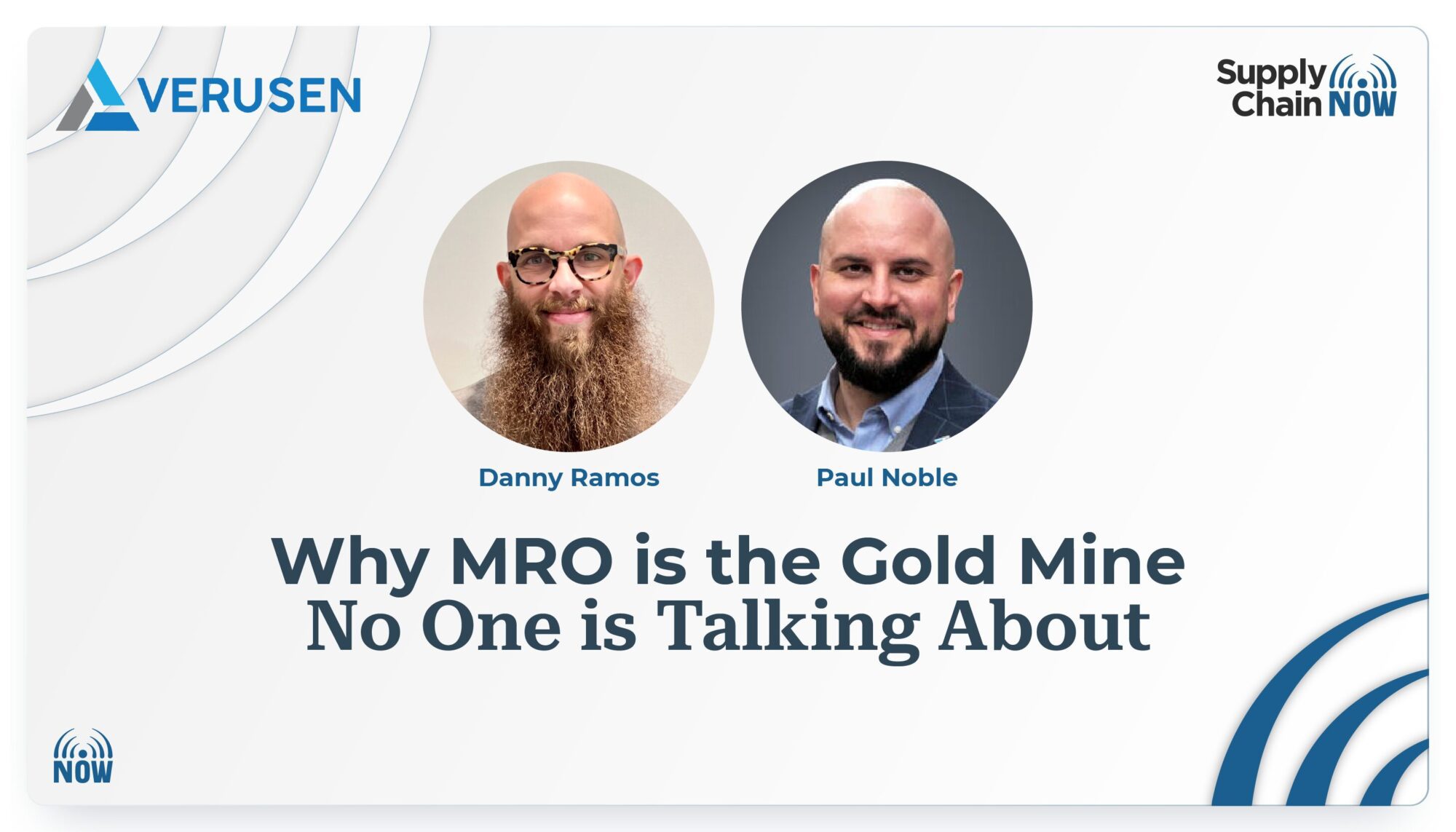
You can use MRO as a meaningful strategic differentiator because not only is preventative maintenance always cheaper in the long run than reactive maintenance, and organizations are using MRO as a sandbox for new techniques and technologies that they want to experiment with before moving those into other parts of the organization.
-Danny Ramos
Episode Summary
Why is it time to treat maintenance, repair and operations (MRO) as a first-class citizen? How can these processes be properly optimized? What makes business leaders hesitate to adopt new technologies?
To discuss this, and a whole lot more, not one, but two experts from Verusen joined hosts Scott Luton and Mary Kate Love for this episode of the Supply Chain Now, with Founder and Chief Strategy Officer Paul Noble alongside Senior Manager of Product Management Danny Ramos in the hotseat.
Paul has just returned from Las Vegas from the SAP Innovation Days for Supply Chain conference, and kicks things off by highlighting some of the key themes that he and other attendees discussed on the ground. Chief among them is the supply chain tech stack and the ways organizations are seeking to unify systems, and how MRO is being folded into these transformational strategies.
This is important, the duo says, because MRO is essential to running businesses effectively. “You can’t produce a product if you’re uncertain of what’s happening,” Paul says succinctly, while also stating that the notion of supply chain being a competitive advantage has been overlooked for too long.
Tune in to the full discussion to hear both experts’ fascinating insights:
· The role of AI in enhancing MRO efficiency.
· Boosting supply chain visibility to reduce risks.
· The direction of travel for supply chain tech stacks.
· And much more!
Episode Transcript
Intro/Outro (00:03):
Welcome to Supply Chain Now, the voice of global supply chain. Supply Chain Now focuses on the best in the business for our worldwide audience, the people, the technologies, the best practices, and today’s critical issues, the challenges and opportunities. Stay tuned to hear from those making global business happen right here on Supply Chain Now.
Scott Luton (00:32):
Hey. Hey. Good morning, good afternoon, good evening wherever you may be. Scott Luton and Mary Kate Love with you here on Supply Chain Now. Welcome to today’s livestream. Mary Kate, how are you doing today?
Mary Kate Love (00:42):
Doing great. Super excited about this one.
Scott Luton (00:45):
We are too. We are too. And, hey, we even tackled on the pre-show the dream NBA finals matchup, the Chicago Bulls and the Atlanta Hawks. And as I think of it, they may be in the same division, but anyway, so maybe they couldn’t make the finals. But regardless, folks, NBA basketball side, as Mary Kate said, looking forward to a great show today. We’re diving in on a topic that many organizations overlook, I would say, to their financial peril. That’s maintenance repair operations, MRO, and the absolute goldmine of bottom line opportunities and beyond that it poses. And we’re going to be talking, as Mary Kate knows, with a few business leaders that have a proven track record of helping organizations to right size their MRO materials in store rooms, across their networks, and especially on their balance sheets. Mary Kate, this should be a great show, huh?
Mary Kate Love (01:35):
Yeah. I love this because it’s a purpose-built solution that can plug into your existing ERP system and drive results pretty immediately, so I’m super excited about this. And they’re a former employer of mine, so doubly excited.
Scott Luton (01:49):
That’s right. They’re innovative great people making big things happen, new things happen across global business and global supply chain, so we can’t wait to have them back.
Scott Luton (02:00):
Hey, two quick things before we introduce our guests here today. Let us know what you think, share your comments throughout the live discussion. Just like Ben and Maria did, let us know what you’re thinking about the topics we uncover here today. And, of course, if you enjoy today’s show, folks, do your neighbor, do your friends, do your colleagues a favor and share it with them. They’ll be glad you did.
Scott Luton (02:17):
Okay. Mary Kate, we’ve got a lot to get to work on here today. I want to welcome in our featured guest, Danny Ramos, Senior Manager, Product Management with Verusen, and one of our OGs here at Supply Chain Now, Paul Noble, Founder and Chief Strategy Officer with Verusen. Hey. Hey. Paul, how are you doing?
Paul Noble (02:37):
I’m doing well. How are you all? Good to see you.
Scott Luton (02:39):
Wonderful. Great to have you back. And, Danny, how are you doing man?
Danny Ramos (02:42):
I’m doing well. How are you all doing?
Scott Luton (02:44):
Wonderful. We’re coast to coast just about.
Paul Noble (02:47):
All-star crew here.
Mary Kate Love (02:49):
Yeah, I think so.
Scott Luton (02:51):
All right. So, Paul, Danny, and Mary Kate, before we get into a lot of cool things related to optimizing supply chain, certainly optimizing MRO and a lot more, I got a fun warm-up question for all three of y’all. So, did you know this week way back in 2008, video streaming service, Hulu, was launched. The service now has close to 50 million subscribers. Now, speaking of streaming services, now there’s almost 50 million of them from Netflix, Disney Plus, Amazon Prime, Apple Plus, Billy Bob, super fast flicks, you name it, lots of streaming services. So, the question is – and, Paul, you’re going to be the lead off hitter here, the old Kenny Lofton from back in the day.
Paul Noble (03:32):
Oh, very good reference.
Scott Luton (03:34):
What is one of your favorite all time movies or shows that you still stream somewhere on a regular basis?
Paul Noble (03:41):
Yeah, no, I mean there’s a lot. The one that’s top of mind right now – new season is out – Curb Your Enthusiasm on HBO, or Max now as they’ve rebranded. Great show. Larry David has put together two of the top, probably five or ten, best comedic series of all time with Seinfeld [inaudible].
Mary Kate Love (04:03):
Yes. Huge Seinfeld fan over here.
Scott Luton (04:07):
All of us, I bet. And we got to make sure we can’t have Larry David and Elmo be in the same room with each other. All right. So, Danny, that’s going to be a tough one to top. Danny, what’s your go-to?
Danny Ramos (04:20):
The show I kind of keep coming back to is The Good Place. Probably watched through it – my wife and I – a handful of times, but it’s nice, lighthearted, good background noise.
Scott Luton (04:28):
Love it. The Good Place. I’m going to have to write that one down and check it out. All right. Mary Kate, we got Curb Your Enthusiasm, we got The Good Place. What about yours?
Mary Kate Love (04:36):
I really like travel shows, as kind of like Danny was talking about, some comfort background noise. And I’ve been watching Somebody Feed Phil. I don’t know if you guys have ever seen it. Awesome show if you like food and travel.
Scott Luton (04:49):
Yes, I agree. And it’s funny, Phil’s a real funny guy.
Mary Kate Love (04:52):
Yeah. He wrote Everybody Loves Raymond, I think, right?
Paul Noble (04:55):
Yeah. Yeah. He did.
Scott Luton (04:56):
Well if I’m not mistaken, I saw the Raymond from that show. I can’t remember his name right off the actor, real funny.
Paul Noble (05:01):
Ray Romano.
Scott Luton (05:02):
Yeah. Ray Romano joined Phil for an episode or two and those discussions were really cool.
Mary Kate Love (05:07):
Yes. Yeah.
Scott Luton (05:07):
All right. So, Mary Kate, Paul, Danny, we got a lot to get into here today. I appreciate y’all weighing in on a fun warm-up question. I want to get into the conversation by level setting a little bit. Now, Paul, man, you’re out in the big City of Las Vegas for the SAP Supply Chain Innovation Day Conference. And, hey, quick piece of advice, bet the farm on red 19, we were talking about that in the warm-up show. But, hey, what’s some of your key takeaways from that awesome event this week so far?
Paul Noble (05:33):
It has been a really great event. It’s not a huge trade show like SAP does with Sapphire, but it’s focused and intimate, a lot of collaboration between customers and their respective SAP, AEs, and supply chain experts. The great thing has been, as we kind of segue into the discussion around MRO, everyone’s been over the past couple of years building their supply chain tech stack. It starts with upgrading ERP, EAM, centralizing to a single global instance and things of that nature. And now they’re plugging in purpose-built solutions and looking for ways to connect the dots between ERP, EAM, and procure to pay systems and get the most out of their investment there and enable their people with intelligent, innovative solutions. So, what we’ve seen is MRO is really top of mind and being folded into transformational strategies that has us very excited that we’ve been building and ready to support customers to deliver both economic and operational value.
Scott Luton (06:37):
Mary Kate, I’ll get your quick comment first. That’s the good place in my mind. That’s the good news. You’ve got organizations that take technology and empower their teams. Mary Kate, your quick comment.
Mary Kate Love (06:47):
Yeah. I love to hear that because we’ve seen people kind of ignore MRO or think this is just part of business and we can’t really innovate or get better here. So, we’ve all seen the benefits of being able to innovate with MRO or being able to visualize your data, so exciting to hear that people are catching up.
Scott Luton (07:05):
I am too. And visualizing so folks can really see what we’re talking about. I think for a lot of visual learners like me out there, that’s so important. So, getting that data out of spreadsheets, getting that data off legal books and being able to put it in ways where we can really see it in a powerful fashion.
Scott Luton (07:20):
Danny, keeping the conversation going, I got a two-parter for you, my friend. You come highly regard so you can do this stuff in your sleep. I know Danny. So, two-parter, first off, what have you been hearing from Verusen customers? There’s a growing ocean of Verusen customers these days. Y’all been growing left and right. And secondly, I’m always curious especially about adoption. Adoption is so critical these days. From what you’ve seen, what makes business leaders and their organizations really hesitant when it comes to adopting new technology?
Danny Ramos (07:48):
Great question. I mean, I think to answer that first thing, what we’re hearing pretty frequently is folks are kind of going back to trying to cut costs. The pendulum has kind of swung back from where folks were in the pandemic and we’re really trying to shed a lot of the fat that they’ve added to their inventory and accumulated there, which interestingly leads to some hesitation around some new technology
Danny Ramos (08:05):
The other thing, folks are really trying to do a lot more with less. So, trying to consolidate and centralize some of their inventory management to do some smarter buying, to be more efficient with their deployment of their existing assets, and also to get more out of their existing technological investment. And that feeds right into where that hesitation comes from. Typically, when we hear folks pushing back on making technology investments, it falls into a couple of different buckets. So, either folks have already spent millions of dollars digitizing their operations and they’re disappointed by the results. They’ve been promised these digital transformations, they’ve been promised all of these great things, and some of them materialize and some of them don’t. And I think some of that scar tissue makes folks a little hesitant to introduce new technologies.
Danny Ramos (08:45):
The other big thing that we hear really frequently is people don’t think their data is good enough. They operate under an assumption that their data is too poor to do anything useful with it, so they can’t do anything with it, and that prevents them from moving on to new things. And, really, the last bucket that we see pretty commonly is there’s just a hesitation to introduce new processes and new tools for folks that are already overburdened. There’s already a lot of technology that’s been introduced in the last 10 or 15 years and adding one more thing into the flow sometimes feels like a little bit too much for some folks.
Scott Luton (09:14):
Danny, man, I’d love to dive a couple hours into each of those things. Mary Kate, I want to get you to weigh in here. That scar tissue that Danny referenced during the first part of his response is so critical because folks have heard it all before and sometimes, to Danny’s point, it does truly come to fruition. Other times it crashes and burns because a lot of executives buy, they throw their defense for the teams to kind of figure it out. Your thoughts, Mary Kate.
Mary Kate Love (09:36):
I mean, totally. Like I was on a huge ERP transformation project and what I love about Verusen is that it can really go a mile deep. So, they’re solving a very specific problem and they’re not pretending like an ERP system that could say and do everything and anything right. This solves a very specific problem. And I just want to call out the fact that Danny said, your data doesn’t have to be perfect because that holds so many people back from starting things like this. And I just love the fact that no one’s data is perfect, so you can still work with imperfect data.
Scott Luton (10:11):
Yes. Excellent point. That’s right. And it’s a really important point for folks that are listening to this conversation and watching this conversation to take with them into their post-event conversations. You don’t have to have perfect data to do big things. All right. Mary Kate, Paul, Danny, good stuff here.
Scott Luton (10:29):
And, Navin, you asked a great question, and thanks for being here, by the way, via LinkedIn. We’re going to touch on this, I believe, in this next question I’m going to pose to Danny. And Navin is asking about what is MRO? So, to tee this up as we move forward, lots of organizations, no matter what the economic conditions are, they’re still planning to pursue significant cost reduction opportunities over the coming year. They got to, right? And a lot of that uncertainty for where we’re going adds more fuel to that fire, in my view at least. So, Danny, a little bit of speaking to Navin’s question there and then this one, why is MRO optimization such a big time untapped gold mine for many organizations? And give us some examples of the types of opportunities that exist around cost savings here.
Danny Ramos (11:11):
Absolutely. I mean, I think one of the things that we see is that the organizations that are really setting themselves apart are those that recognize that treating MRO as a first class citizen is critically important and also leads to really meaningful competitive advantages. You can use MRO as a meaningful strategic differentiator because, not only is preventative maintenance always cheaper in the long run than reactive maintenance, but these organizations are using MRO as a sandbox for new techniques, new technologies that they want to experiment with before moving those into other parts of the organization. So, that differentiation of MRO is a strategic point, to MK’s point earlier, some folks just say this is the way we’ve been doing things. It doesn’t have to be that way any longer. There’s meaningful strategic ground to make up in MRO.
Danny Ramos (11:52):
I guess some of what that looks like is a big push to centralize control of inventory, and especially things like critical spares. That’s something that we help organizations with all the time. And for a lot of organizations that are handling MRO at the local level, so each facility is kind of their own wild west doing whatever they want to do, it seems like a pipe dream to be able to centralize. But there’s a ton of incentives for doing so. It helps with those pushes to cut costs and bring that working capital down. It really helps those organizations be more proactive with part sharing instead of reactive when a line goes down and they got to grab something, they’re scrambling. And it also does things like allow for more strategic sourcing because you can push for friendlier contractual terms if you have a better idea of what the overall organizational spend is for your MRO parts.
Scott Luton (12:36):
Well said. Mary Kate, Danny just offered a litany of things we could spend hours talking about and lots of good conversation, but what do you think in Danny’s response there, what’s one thing that folks really need to wrap their head around, especially when it comes to MRO and optimizing that within?
Mary Kate Love (12:50):
I literally wrote down preventative maintenance is always cheaper than reactive maintenance. I love that call out. I can relate to that. I think everyone can relate to that. But, also, I love this idea of being able to share or have visibilities between facilities within the same company. Because I’ve worked at a lot of places that have grown by acquisition using different items in their tech stack, and you’re not always able to see what pieces are on hand across different facilities in the same organization, so that’s huge too.
Scott Luton (13:19):
Agreed. Agreed. One of the things that Danny said, “Hey, don’t give into that. We just can’t centralize.” There are opportunities there, and much like imperfect data, there are actionable opportunities there. So, man, we’re giving Danny a high five and he disappears. That happens sometimes. Paul, I want to keep driving here. We’ll get Danny back.
Paul Noble (13:40):
He dropped the mic.
Scott Luton (13:41):
That’s right.
Mary Kate Love (13:42):
Yeah. He literally dropped the mic.
Scott Luton (13:44):
That’s right. And by the way, Ben just chimed in too, “So true. Having visibility across facilities is a game changer.” I completely agree, Ben. And it’s a game changer more within your reach out there than what you may be thinking here today at this moment. All right. So, Paul, what do y’all mean when you talk about MRO optimization? Let’s get really clear because it’s not just cutting inventory costs, right?
Paul Noble (14:08):
So, if you look, MRO is really a big insurance policy. So, you’re keeping things on hand that you need so that you don’t have the risk of downtime. You want to produce your products, so I’m going to store these things, critical items, noncritical items, things that keep my people safe so we can produce product. And so, if you’re looking at it as a risk exercise, you look at data. Data feeds the ability to understand what’s going on. You look at inventory. That’s what I’m going to carry and I would carry no inventory if I could, but I can’t, so what do I need to carry to make sure that I don’t have risk of downtime? Then, where do I need to supply that inventory?
Paul Noble (14:50):
It’s really confirming what we’re doing, is, let’s look at all the data, let’s create and establish demand, buy material, buy plant across a network of plants, what does the company need so we can produce our products reliably and reduce that risk. And let’s do it in a capital efficient way. Let’s cut down the insurance policy without opening ourselves up to risk. And that’s really been the trouble. It’s been attacked. OPS looks at inventory, “Hey, let’s carry more. That’ll keep us less risk averse. Hey, where do we need to source it from?” And it became, to Danny’s point, very reactive and the insurance policy has just ballooned over the years and just keep adding more and more and more.
Paul Noble (15:33):
So, what we’re doing is, essentially, let’s look at everything, cross-people, cross-processes, cross-systems, cross the entire organization, let’s establish that demand. And then, let’s strategically look at what do I need to inventory? Where do I need an inventory? Where do I need to buy? Where do I need to source it from? And put a risk profile to that. So, what we’re really doing is managing risk, building trust that you’ll have what you need where you need it, and just simplifying that dramatically because it is pretty complex.
Scott Luton (16:01):
Well said, Paul. The 1985 approach would be just to keep adding inventory, keep adding inventory. But that is not the smartest approach and it’s certainly not the 2024 or even 2030 approach. So, good stuff there, Paul.
Scott Luton (16:15)
Before we keep driving here, I’ll throw in this great comment. Memory, it’s so great to have you back with us. Always enjoy your contributions here. She says, “This is one category that is overlooked and it has a treasure trove of value capabilities to contribute to the bottom line. Most risk here -” and this is what Paul was talking about “- lies because it’s a section people react to rather than take a proactive approach.” And I think we were talking about that on the frontend. Memory, great call out. We appreciate what you’re doing out in industry as a practitioner. By the way, that was Shakespearean as Memory just kind of constructed that feedback, wasn’t it?
Scott Luton (16:49):
Danny, I want you to talk AI. We can’t have a supply chain conversation in 2024, it’s government mandated that we’ve got to drop in AI. Tell us how AI is truly changing how people utilize that data we’ve been talking about and those valuable actionable insights that we can pull from it.
Danny Ramos (17:04):
Yeah, no, absolutely. I mean, I think the big thing is that AI really unlocks the value of data that organizations have been amassing over the years. Whether that’s because you’ve been digitizing some of your supply chain, because you’ve been growing through acquisition, you’re pulling in disparate systems, AI really helps you make sense of that in two really kind of profound ways. It helps you make sense of large amounts of data in ways that humans can’t. It doesn’t matter how good you are at Excel, it doesn’t matter how impressive your power BI dashboards are, AI can just handle more data than the human mind is capable of. And that’s going to become even more important as the data organizations continues to grow through IoT and other things like that.
Danny Ramos (17:43):
I think the other thing going back to an earlier point is it can make sense out of your dirty data. So, the old adage of Garbage In Garbage Out doesn’t really apply in the same way in a world where AI is available, because you can take that data that might be of – let’s call it – poor quality or not the best quality and still draw meaningful insights out of it. It’s easier to figure out where you have like parts. It’s easier to figure out where you might have some contract leakage. It’s easier to figure out some of these kinds of things that would’ve been kind of scattered to the wind before. And it can also take bits and pieces of that institutional knowledge that might live in ERP and actually bring some of that to the surface and bring some of that information out so others can use it. All of this really just means you have better visibility into what’s actually happening at the ground level. And with that, you can do more interesting things. You can do some of the part sharing, some of the collaboration, and some of the stuff that we’ve been talking about earlier this afternoon.
Scott Luton (18:30):
Yes. Sheer capacity and powerful clarity. If I had to take a lot of what you just shared there, those two incredible things. And I like that scattered to the wind, like dust, like some song in the ’80s I can’t remember who sang that. Mary Kate, let’s get back to AI and the powerful ways that it is working with data. Your thoughts, Mary Kate?
Mary Kate Love (18:50):
Yeah, listen, I think we’re collecting more and more data. Everybody’s collecting more. They don’t know what to do with it. So, AI is a perfect solution to that. Like Danny said, there’s no way we could process all the data that we take in on a daily basis. And putting AI on top of it to make sense of that data and to make the data easier for you to search, easier for you to visualize has a huge impact down the line.
Scott Luton (19:14):
That’s right. Absolutely agree. Great point there. All right. Hey, man, Navin is bringing it here today. And maybe this is something maybe Paul and Daniel have to grab a cup of coffee with Navin afterwards. But maybe we can work this in because Navin is talking about that low MRO maturity versus the high MRO maturity. And we’re probably going to be speaking to the benefits of that forward thinking organizations in just a moment versus the laggards. Because, folks, the other big takeaway, one of many here is, if you’re a laggard and you’re not leaning into powerful outcome driving ways with AI and many other innovative technologies, the distance between the performing organizations and the folks that are slow to embrace and adopt is getting bigger and bigger. Randy, thank you very much. Kansas saying dust in the wind. That is right. Thanks so much for being here.
Paul Noble (19:58):
Shoutout to Greg White in Kansas.
Scott Luton (20:03):
That’s right. That is right. All right. So, Paul, Mary Kate, and Danny, we’re covering lots of ground here today. One of the things that Danny touched on in his response there and Mary Kate did as well is visibility. And, Paul, one of the things you mentioned in your last response was risk, risk mitigation, risk management that is inseparable from supply chain leadership and business leadership these days. So, Paul, how does visibility help companies remove risk?
Paul Noble (20:27):
It’s important because, for so long, systems, processes, people, challenges have limited the availability for satisfying what I need as an individual at a facility from an MRO perspective versus what is that demand that I need, how does that impact the company, what does the company need holistically. So, you have all these decentralized individual demands, but let’s look at that demand and give visibility to that cross-function, cross-business unit, cross-system. We can look at the holistic demand, satisfy that through supply, and get you what you need by material, by plant, but also satisfy the overall risk profile of the business.
Paul Noble (21:09):
That’s why the title of this webinar where there’s a lot of gold locked up, you wouldn’t have a $10 million insurance policy on your home if it was only a $500,000 home. Why are you doing the same thing with MRO? Why are you carrying $400 million in stock when you could more easily satisfy the needs of the individual and work with your suppliers more effectively and extend that network outside of your four walls? That visibility, it is possible. You are ready whether you think you are or not and we can meet you where you’re at in your maturation.
Paul Noble (21:45):
So, we have a discussion here at SAP, a co-presentation with Georgia Pacific, one of our earliest customers, super mature company as it pertains to MRO. We could take them to the next level. If you’re lower on that maturity profile, we’ll meet you there. We’ll help you get to centralized strategies and that visibility so you can work again with your counterparts in procurement and operations and reliability and engineering. It takes a village to run MRO effectively. We can help there.
Scott Luton (22:18):
Yes you can. You’ve demonstrated it time and time again. And as Paul alludes to, they’re working with the organizations at Verusen that are further down the path of the maturity curve and finding really big opportunities. And those are just kind of starting and they’re kind of taking initial steps and finding big opportunities there as well. Good stuff there, Paul. Mary Kate, so I loved Paul’s analogy there.
Mary Kate Love (22:37):
Yeah. I was just going to say I love a good analogy in that insurance policy when it’s good.
Scott Luton (22:41):
Yes. So, give us your take on anything Paul just mentioned there, Mary Kate.
Mary Kate Love (22:46):
Yeah. So, the insurance policy, that totally makes sense. It makes it click probably for myself and a lot of people. But I also love this idea of visibility because you can’t really make – or, actually, you definitely can’t make the best business decisions without that visibility. So, that is step number one that everyone needs to have.
Scott Luton (23:06):
Yes. Yes. And you are ready, as Paul wrapped up his response. I think the four tops saying a great song featuring those words there. Hey, music’s on my mind today, folks. But, Paul, good stuff there. And I love this theme that’s emerging amongst other things, is that, folks, you are in better position than you think to take advantage of innovative things in supply chain and not do business as usual as if it’s 1985.
Scott Luton (23:31):
Let’s see where we’re going next. Paul, I want you to put your shades on for a second, I don’t know if they’re handy. But we’re kind of talking about current opportunities, right? Current opportunities. But where do you think the future of supply chain technology is headed, Paul?
Paul Noble (23:44):
I recently wrote an article in Forbes talking about here are these systems of record that everyone has. Most organizations have an ERP or thinking about or in the process of upgrading that, moving from on-prem to cloud, we have a procure to pay system. These are all processes and systems of transaction and systems of record, EAM system as we’re talking MRO, and we’ll be talking here at SAP about asset management. So, all of these systems of record are essential to run your business, but they can only do so much.
Paul Noble (24:17):
So, the future of supply chain from our perspective is purpose-built intelligence solutions that can be the connective tissue between those systems of record. Let them be the transactional systems. Let us fill in with Verusen for MRO and across the stack when you’re looking at direct materials, finished goods, logistics. You’re going to be plugging in intelligence systems across that stack. And that really to us is what the future is going to look like so that you can pass the baton appropriately and run more efficiently and get to your outcome of track and trace. All the holy grail things that everyone says it’d be beautiful if we could do this, but we can’t because of data and all this, that’s changing. And so, that’s how you need to look at how are you architecting that stack to support your business and these purpose-built solutions, like Verusen and like many others that are emerging across that stack, are going to be super important to getting you there.
Scott Luton (25:11):
Yes. Mary Kate, being the Seinfeld buff that you are architecting your stack, that’s George Costanza’s dream, I bet. But when Paul is talking about the art of the possible there though, I mean, again, it’s all at our fingertips to act in ways that a lot of folks assume they’re just not in position to do. Your quick thoughts here, Mary Kate, before I move to Danny.
Mary Kate Love (25:32):
Yeah. I love thinking about that where the systems of records, they go a mile wide but an inch deep and you need to have a mix up of purpose-built solutions that are able to go a mile deep and an inch wide. And so, that’s finding the right partners, that’s finding the right solutions and plugging them into your existing systems. It’s not a whole overhaul of all your systems. It’s being able to plug and play the right partners, essentially, for your company.
Scott Luton (25:59):
Well said, Mary Kate. Mary Kate, on that last point, those partners, that ecosystem we’re building, the ecosystem that involves, of course, all the organizations but also the technologies, such a great callout there.
Scott Luton (26:11):
All right. So, Danny, I want you to put a five point on this here, especially the question as to how. So, how is Verusen working to close that gap between functional areas, like maintenance and reliability and the good people there, and then with their procurement counterparts and the good people there? How is Verusen doing that?
Danny Ramos (26:27):
We’re doing it in a couple of different ways. I think one of the primary ways is providing a shared sense of visibility. We’ve talked a lot about systems of record and augmenting those with systems of routine. And these disparate groups can use a tool like Verusen to get a sense of what reality is across their organization, across their facilities, across their systems. Instead of being tied to procurements and procure to pay, you have your operations folks in EAMs and ERP. You can start to bring everybody together to a shared sense of the truth.
Danny Ramos (26:56):
And the other thing that we’re doing there is we’re pulling in the human element. So, we’re capturing inputs from folks on the frontline, and it becomes a lot easier to accept some changes to your ways of doing business if you feel like you’ve had a say in the matter. And then, those two things kind of coming together, so that shared visibility and capturing some of that institutional knowledge is really letting these two organizations within companies make some really data-driven decisioning. So, if we can get procurement and operations folks to agree to a shared version of the truth coming out of their digital systems and we can give the folks responsible for actual maintenance a voice, then we can help these organizations get to much more effective decisions.
Danny Ramos (27:32):
And it helps eliminate in a lot of ways, too, kind of the emotional nature that has been a big part of MRO, where folks are making decisions because of an outage that happened ten years ago and they’re going to keep a bunch of stock because of that. So, we can build more trust between these two groups. And as those two groups start to collaborate more with each other and see that it’s not the end of the world, they’re not going to have a ton of outages, the risk isn’t really going to grow substantially, they can really start focusing on what’s best for the organization and taking some of those next steps into a greater maturity.
Scott Luton (27:59):
Danny, well said. I knew you were going to drop the T word there. Because then if you didn’t, I was going to, that building trust. Mary Kate, I bet we could all raise our hand, I bet a lot of folks in our audience could raise their hand if you’ve been in a manufacturing operation with three or four different functional areas and everyone brings their spreadsheets and they all disagree. There is no shared sense of truth as Danny put it. And when you can address that and you can bring teams together and gain that alignment, and also, by the way, empower the human element, the trust you gain and the mountains you can move with said trust is world-class. Mary Kate, your quick thoughts there.
Mary Kate Love (28:34):
Yeah. I love this because it’s combining human intelligence with data, and that’s the ultimate goal. Because like Danny said, if you ever worked in a manufacturing facility, you’ve heard the story about the unplanned downtime that happened six years ago and how they solved it in this crazy way. And so, that’s great and we don’t want to forget that, but we also need to use data to make our decisions. And having that kind of single source of truth or the shared truth, like Danny said, can only help within an organization.
Scott Luton (29:05):
That’s right. That is right. All right. Paul, as we start to wrap, we’ve got some great resources that we’re going to make sure we share with folks. We’re going to make sure folks know how to connect with the one and only OG Paul Noble, who’s, again, in Vegas. You can catch him and talk supply chain and maybe talk some casino action. Of course, Danny on the other coast based in Jacksonville, but he’s out and about making things happen across the industry.
Scott Luton (29:29):
But, Paul, as we want to spike the football on the conversation here today, beyond everything we’ve talked about, which I believe is going to open up some eyes, which I also find interesting about the comments, is, there’s a lot of folks that already get what you’re talking about and it sounds like already they’re saying, “My organization, they’ve ignored this massive opportunity. And then, finally, finally they’ve put it in a headlock and it’s delivering big outcomes.” But beyond everything we’ve talked about here today, tell us why, Paul. To that end, tell us why MRO optimizations got to be a top priority for organizations out there.
Paul Noble (30:01):
It’s essential to running the business. You can’t produce your product if you’re uncertain of what’s happening. And I think as we’ve come out of a trying time from a pandemic perspective, and supply chain is a competitive advantage, and all the things that we’ve talked about over the last couple of years, I think being able to turn to a part of your business that can help kind of lead the way of unlocking not only capital but also the way you approach things from an availability and a demand perspective, I think it is really important to bring those hardworking people together and give them the tools that they need to be able to reliably produce what they’re charged to do from a job perspective. I think it’s been too overlooked for too long and there is a simple and effective and fast way to really wrap your arms around it and be able to be kind of a shining star within the organization that’ll lead and influence how you attack things across your business in other ways.
Scott Luton (31:03):
Yes. And, folks, you are ready more than you think, to steal Paul’s challenge from earlier in the conversation. All right. I got to go back to the analogy, too, Mary Kate, because I think a lot of folks may not get everything, all the ins and outs related to MRO. I think everyone can relate to insurance. As someone that has driven, I think, five Honda Accords in my lifetime – yes, I may be the most boring person in the world. Hey, I love Honda Accords – there’s no need to get an insurance policy as if you’re driving a Ferrari if your need is a Honda Accord. And that is a great analogy, I think, when it comes to the approach that Paul and Danny are talking about.
Scott Luton (31:38):
Mary Kate, your quick comment. I’ve got a question, a very practical question in terms of how to get started, which I think we hear all the time during and after a lot of these types of shows. We’re going to get Paul and Danny to weigh in on that. But, Mary Kate, whether it’s our favorite analogy out there or a Seinfeld reference or something, maybe you having insider knowledge of what Verusen has been doing for years, what is something else that folks really got to know from what Paul and Danny are saying here?
Mary Kate Love (32:04):
I think that it’s easy. It doesn’t require this huge months long project with your IT. And it’s not scary when it comes to implementing this. I think it’s easy and I think it empowers people. It doesn’t work against the people in your organization. It just empowers them to make better decisions.
Scott Luton (32:23):
Well said. And I’ll tell you, whether you’re addressing MRO opportunities or really any other aspect of global supply chain, enabling and empowering your team to make better decisions faster, that they’re confident in, that they get more right more often, man, that’s a big part of the game at least.
Scott Luton (32:40):
So, Paul and Danny, here’s the billion dollar question because inflation is such, I want you to tell us, because we get this question a lot, I love this conversation, but how do I get started? Paul, what would be your answer for folks that may want to partner with Verusen and what’s that first step there?
Paul Noble (32:56):
We’ve continued as we’ve gone to market over the last couple years – I think we’re fourth year in market supporting customers – we try to make it as easy as possible for us to define a business case for you. So, reach out, let’s have a conversation. We don’t want to do business with you if you’re not ready, but odds are you are, and let’s have a conversation. And we have a pretty simple business case tool that we can turn around for you in less than a week or about a week that can find a business case of let us tell you what the data is showing us and let’s have a conversation around it. It’s MRO health check and it’s been really successful in being able to bridge the gap of that FOMU, that fear of messing up, or Am I ready? Do I have enough? Is it too complex? Is it overwhelming? No. Let’s simplify it. Let’s have a conversation and we’ll be your partner to get you there whether you are on the lower end of that maturity curve or you want to go to the next level and you are very mature from that perspective. So, I think that’s the easiest way to get started is let’s have a simple conversation, let’s show you how we attack it. And we’ve been very, very successful in doing that.
Scott Luton (34:05):
Well said. And you’ve used that acronym with us before, Paul, FOMU, fear of messing up. Mary Kate, we got to keep it real. Every organization has varying degrees of that FOMU that either hinders people from taking action and doing things and making decisions. Or in other cases, leadership has really empowered them. Hey, we’re going to mess up some of the times, but we’re going to get big gains by making decisions. Your quick thoughts there, Mary Kate. And we’re going to work to get Danny back because he’s got some cool things also as it relates to where do we get started. Your thoughts, Mary Kate.
Mary Kate Love (34:38):
Yeah. I love that acronym. And I do think it starts with leadership of being able to say we need to try these new things. And, again, I want to reiterate, it’s very easy to get implemented and set up. So, this fear of messing up is probably one that you carry from a project ten years ago or something else that you did, so I just want to reiterate how easy it is to kind of work with these purpose-built solutions.
Scott Luton (35:03):
Love it. We all love easy in this world of hard and complex challenges for sure. All right. So, Danny, in the pre-show, we were talking about some of the cool things that Verusen has rolled out for folks to kick the tires and get more comfortable and better understand how y’all operate. What are some of those things that maybe folks need to know here?
Danny Ramos (35:21):
Absolutely. I mean, I think beyond what Paul was talking about, our ability to help you generate that business case before we get too far into the sales process. Another thing that we’ve been doing over the last few months here is actually doing some pretty informal little demo webinars on a biweekly basis so folks can actually take a look at the application, see what we got, see what we’re doing without necessarily committing to a full sales conversation or all that kind of stuff. So, it’s an easy way to kind of get your feet wet and see if we’d be a good fit and assess whether or not we’re going to be able to help you out.
Scott Luton (35:50):
Love that, Danny. Love that. It’s important to give folks lots of opportunities to gather information and get a sense of how what y’all do, or any approach, any team kind of fits within their organization so they’ll know that they’re not wasting , as Mary Kate said, because it’s easy, and Paul said, you’re ready. So, why not step through this window of opportunity and make things happen? Your people will certainly appreciate it.
Scott Luton (36:13):
So speaking, Danny, Paul, and Mary Kate, of resources, I think we’ve got three that we want to share from the Verusen team. And here’s the first one, and I love how this is entitled, Stop Relying on Manual Processes for MRO and Indirect Material Management. Now, as we’re talking pre-show, Mary Kate, Paul, and Danny, you look at most research out there, error rates for manual data entry range from one to four percent, that’s kind of the well-established range. But I will share with y’all, in certain environments I’ve been in ages and ages ago, it is easily double digits. I knew that firsthand because I was part of a data integrity team. So, folks, stop relying on manual processes.
Scott Luton (36:53):
Number two – count them – five reasons manufacturers haven’t achieved MRO optimization. And, folks, we’re going to drop the links right there in the chat. You’re one click away from checking these out. And these are great succinct, I think, two-and-a-half page reads, which is my favorite part, because in this complex environment we’re in, who’s got time for a 27 page or 270 page white paper?
Scott Luton (37:14):
And then, this last one, it’s time to move beyond a traditional ERP strategy. And folks are saying out there across our listening audience, hallelujah. Amen. Preach it louder for the folks in the back. I love these three pieces here, Paul and Danny. Mary Kate, if you had to pick one of those though, what’s one of those messages that resonate the most with you?
Mary Kate Love (37:34):
I’m going to go with the ERP moving beyond a traditional ERP strategy, because an ERP system is not going to do everything and anything for you. We all need the ERP system. It’s great. But we need to find purpose-built solutions to be able to solve specific problems in our companies.
Scott Luton (37:51):
Well said. I agree. Okay. So, Paul Noble, back by popular demand, OG. I’m not sure what appearance this is, but it’s probably got to be in the 20s. I think you still rank on top of the list. But, man, Verusen, y’all have been helping a lot of organizations grow left and right, leaning on your innovational approach to doing business different. I’m partial, but that resonates with me. There’s a reason why we’ve enjoyed our conversations and we get a lot of feedback from these shows.
Scott Luton (38:23):
So, let’s make sure folks know how to connect with Paul and Danny. Paul, let’s start with you. Beyond Vegas, so folks who are out in Vegas, they might catch up with you this week at that great event, but how else would you suggest people connect with you?
Paul Noble (38:35):
Yeah. Obviously any of the Verusen channels, @verusenAI, and most of the social channels. And paul@verusen.com, if you’re thinking about questions, partnering, opportunities, or just want to have a conversation, feel free to reach out. We’d be happy to have that conversation.
Scott Luton (38:52):
Wonderful. And if you need help with your jump shot, Paul, you’re the particular guy too, right? Love that. All right. So, Danny Ramos, great to have you here. Really have enjoyed our conversations, appreciate our conversations, and a lot of what you shared here today because it is a wild, wild west out there, as you were talking about. We need proven solutions that make things easier, give folks more clarity that brings down that fear of messing up and allows people to make decisions that really impact in a positive manner the bottom line, and this is what we’re talking about here today. How can folks connect with you, Danny?
Danny Ramos (39:25):
Absolutely. I mean, certainly through all the same kind of Verusen channels that Paul alluded to. Unfortunately I’m not quite as OG as Paul, so you got to use danny.ramos@verusen.com if you want to email me, instead of just the first name. And, obviously, I’m on LinkedIn as well. You might see more facial hair on LinkedIn, but I promise it’s still me.
Scott Luton (39:43):
It is the same good guy that knows what they’re doing and is moving mountains out there. Danny, it’s been a pleasure to get to know you better and I really enjoyed your perspective here today. All right. So, Mary Kate, while we still have Paul and Danny and before I sign off, and, folks, I really enjoyed a lot of the comments and questions. And we couldn’t get to all of them, but we encourage you, hopefully we can connect and power some conversations beyond today’s livestream with you and the Verusen team. Mary Kate, you got some insight baseball, right? Because you’ve seen being a part of the Verusen team and now, of course, part of the Supply Chain Now team, this conversation we’re talking about it, this is going to be a great one because not only are we familiar with it, but in some cases, we’ve seen the outcomes it can power. So, out of all the brilliance that Danny and Paul backed up the truck and dropped out of the center here today, what’s the one thing that folks got to take home with them?
Mary Kate Love (40:28):
I’m going to go back to the preventative maintenance is always cheaper than reactive maintenance, and that’s trademarked by Danny. I love that because you’ll do anything to avoid unplanned downtime and so you’ve got to be proactive about that. You cannot be reactive.
Scott Luton (40:43):
I like that as well. It’s a kind of different version of a Ben Franklin-ism, if I’m not mistaken. I love that, Danny. And Mary Kate said you trademarked it, so that is Danny’s. We’ll owe you some licensing fees later.
Danny Ramos (40:56):
Keep an eye out for the t-shirts and the mugs.
Scott Luton (41:00):
All right. Well, folks, really have enjoyed the conversation. Very efficient conversation here today. Thanks for being out there and being a part. Thanks for all y’all’s submittals. Big thanks to Paul Noble and Danny Ramos with Verusen. Great work. Keep up the good fight doing big things out there. I look forward to reconnecting with you both soon. Mary Kate, I really enjoyed today’s conversation. Thanks for being here and bringing in your color commentary, as always hitting home runs. Always a pleasure to knock out these conversations with you.
Mary Kate Love (41:27):
Yeah. This was great. Super awesome to be on it again with Danny and Paul.
Scott Luton (41:31):
That is right. But, folks, now the onus is on you. Be sure to connect with Paul and Danny. Have that conversation. Don’t sit on the fence. Check out these resources we dropped. One click away there. Links are in the chat. Do business different folks. Your people will appreciate it. Deed’s not words. No one’s got time for lip service leadership. Do business different. And on that note, on behalf of our entire team here at Supply Chain Now, Scott Luton challenging you to do good, to give forward, and to be the change. We’ll see you next time right back here at Supply Chain Now. Thanks everybody.
Intro/Outro (42:02):
Thanks for being a part of our Supply Chain Now community. Check out all of our programming at supplychainnow.com, and make sure you subscribe to Supply Chain Now anywhere you listen to podcasts. And follow us on Facebook, LinkedIn, Twitter, and Instagram. See you next time on Supply Chain Now.
Featured Guests
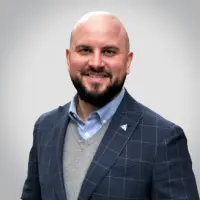
Paul Noble, As Founder and Chief Strategy Officer of Verusen, an innovator in supply chain data, inventory and procurement technology, Paul Noble oversees the company’s vision and strategic direction. He has extensive experience in the industrial supply chain and distribution space, as he was recognized as a Supply Chain Pros to Know by Supply and Demand Chain Executive in 2020, 2021 & 2022. Prior to founding Verusen, Noble spent over a decade with The Sherwin-Williams Company, where he specialized in supply chain/manufacturing and led its Eastern U.S. Industrial Distribution business unit. Noble graduated cum laude with a bachelor’s degree in Management and Marketing from Lincoln Memorial University in Harrogate, Tennessee. Connect with Paul on LinkedIn.
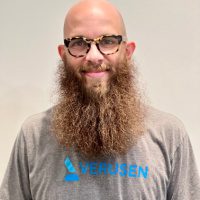
Danny Ramos is a Senior Manager of Product Management at Verusen where he helps current customers and prospects get the most of out of their MRO investments by ensuring they always have the right spare parts or materials they need in the right place at the right time. Connect with Danny on LinkedIn.
